sydney.edu.au



sydney.edu.au


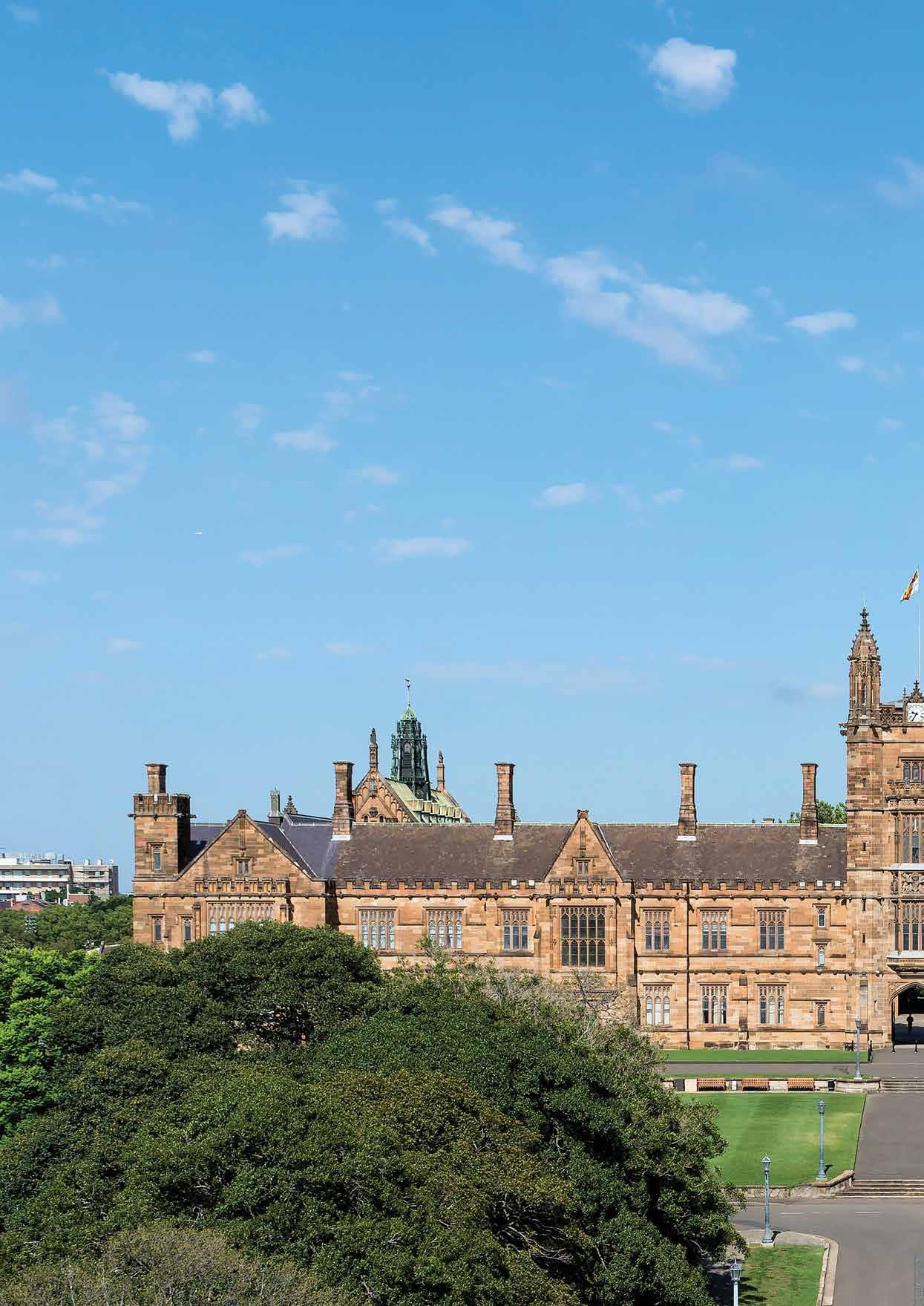
Our wide range of courses and flexible degree structures enable you to pursue your passions, your way.
Study in one of the most diverse cities in the world, while gaining practical experience and industry connections as you learn.
18th 1st 2nd in the world* in the world for social impact** in Australia*
100+ majors and minors to pursue your interests across disciplines
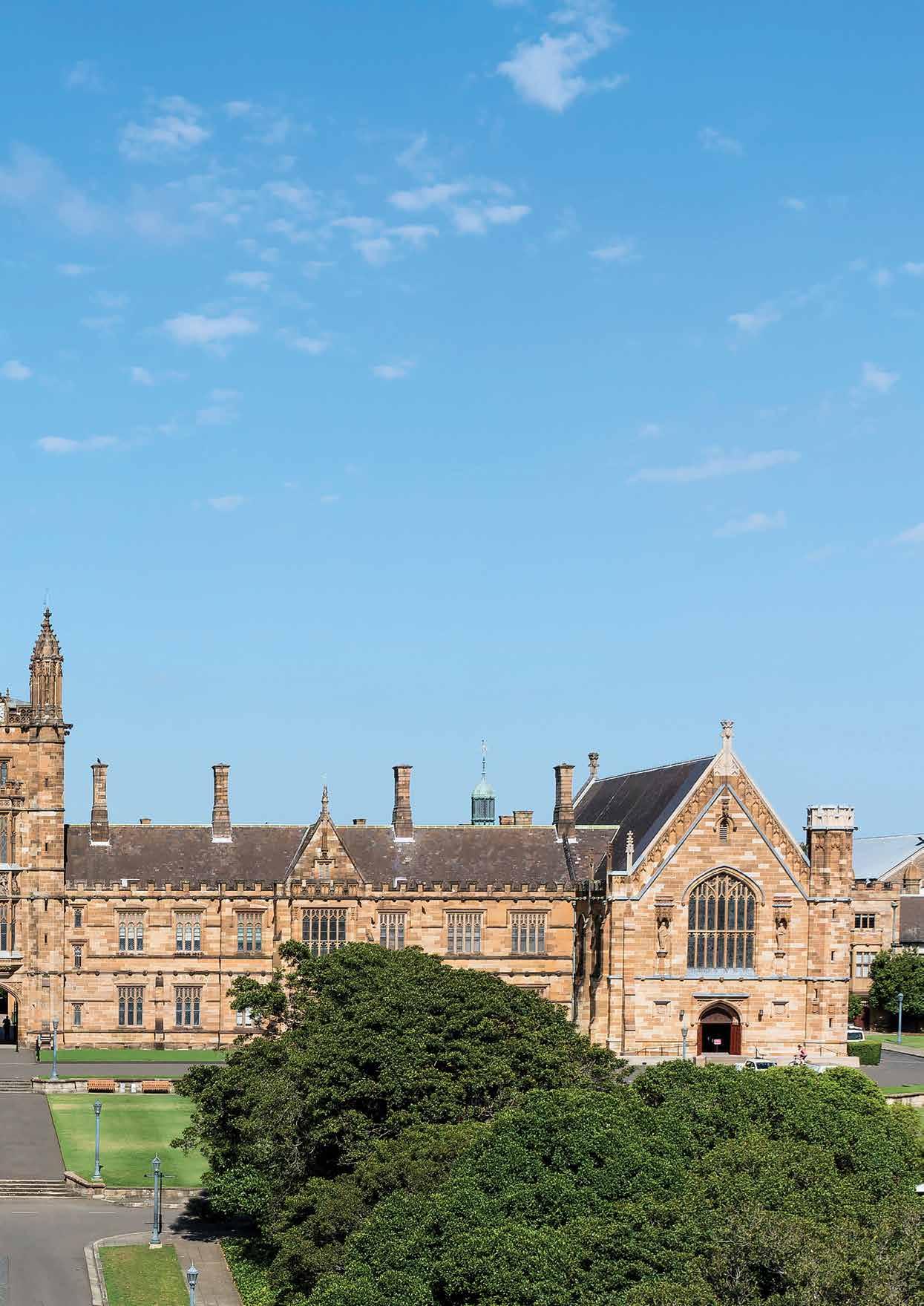
250+ international exchange partners, and the largest student mobility program in Australia***
240+ clubs and societies to enrich your student experience
430K+ alumni forming an influential worldwide network
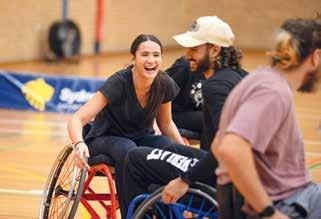

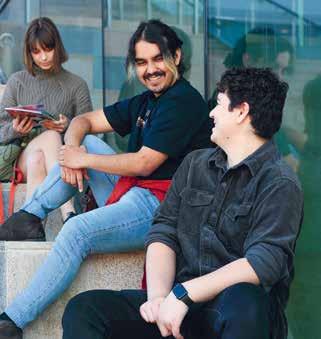
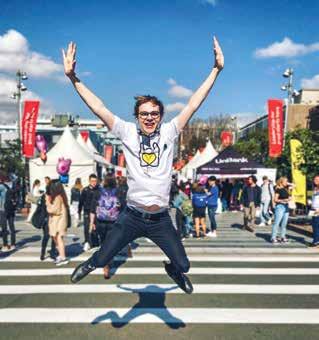
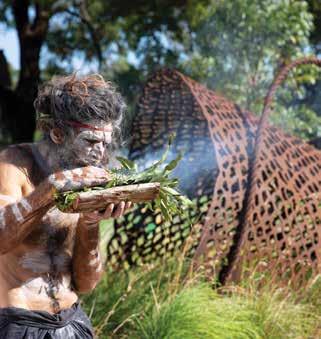

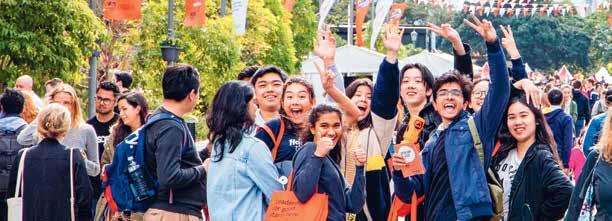
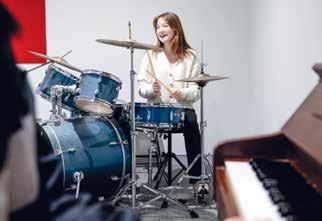
University is about so much more than what goes on in the classroom – so make the most of it!
Expand your university experience with our 240+ student clubs and societies, 30 cafes, bars and food outlets, live performance spaces, museums and art galleries, 24-hour libraries, Olympic-size swimming pool, fully equipped gym and sports facilities, climbing wall and heritage-listed graffiti tunnel – to name just a few of the things that make up life at Sydney!
Our diverse community of students is made up of more than 32 cultural groups and 140 nationalities, so you’ll be able to make friends from all around the world. And our co-curricular activities offer a diverse, supportive and vibrant student experience for you to gain new skills, develop your hobbies –and have fun!
Learn more about student life at: sydney.edu.au/student-life
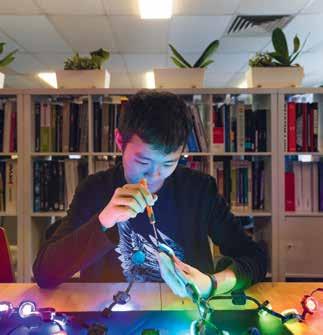
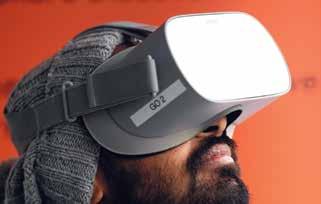
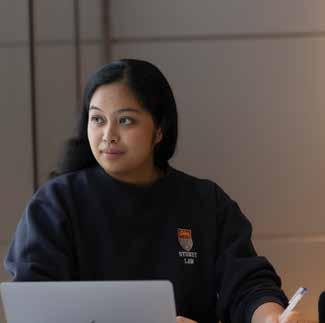
“ Through the Filippino Student Society, I honed my people and leadership skills and expanded my network. For me, it has opened doors outside university and is a part of my career development. I would also recommend joining faculty-related societies and competitions, as these provide so many opportunities to explore, learn and grow!”
Sophia Maranan Bachelor of Commerce and Bachelor of Laws
Home country: The Philippines

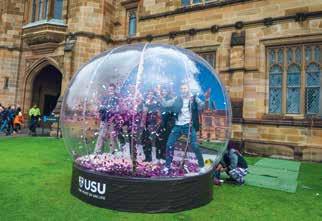
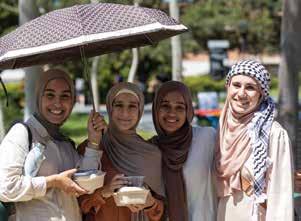
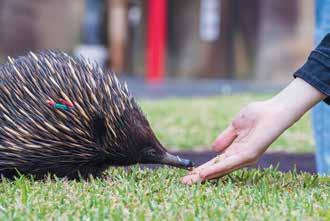
See the world and graduate with a global perspective. We have the largest student mobility program in Australia,* with over 250 partner universities in more than 40 countries, providing you with access to opportunities that will prepare you for a global career. 126 of our partner universities are ranked in the top 200 worldwide,** including Harvard, the University of California, the London School of Economics, the National University of Singapore, and the Sciences Po.
There are so many ways you can add a global experience to your degree, including short-term, semester-long and yearlong options; overseas field schools and in-country intensives; short-term summer programs; overseas professional work placements; and even virtual experiences. sydney.edu.au/student-exchange




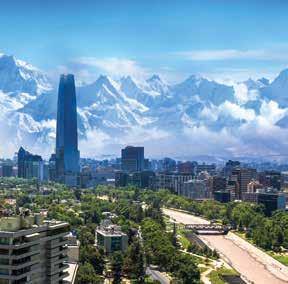


When you join us at the University of Sydney, you’ll have plenty of help in all areas of student life. Here are just a few of the ways we’ll support your health, wellbeing and academic success.*
Welcome and arrival
Orientation to university
Settling into Sydney
Adjusting to student life
Opportunities to meet fellow students and staff
Information about available support services
Disability and accessibility services
Accessible buildings and facilities
Assistive technologies
Alternative formatting
Lecture support
Academic adjustments
Accommodation
Residential colleges
On-campus student housing
Off-campus living
Language and learning
Intensive preparation programs
English language programs
Online learning resources
One-to-one coaching
Academic learning support
Bridging courses
Academic language workshops
Mathematics learning support
Online learning resources
One-to-one consultations
Peer programs
Career support
International student career development program
Support with transition to the Australian workplace
Employability skills workshops
Careers fairs and events where you can meet employers
Sydney CareerHub
online jobs database

Financial wellbeing
Scholarships, bursaries and interest-free loans
Help with essential living costs and study-related expenses
Health and physical wellbeing
Doctors
Dentists
Optometrists
Physiotherapists
Pharmacists
Childcare information
Mental health
Clinical psychologists and counsellors
Mental health support services
Workshops for success
Resilience training
Faith
Multifaith chaplaincy
Chaplains from 12 faith groups available for consultations
Dedicated prayer rooms
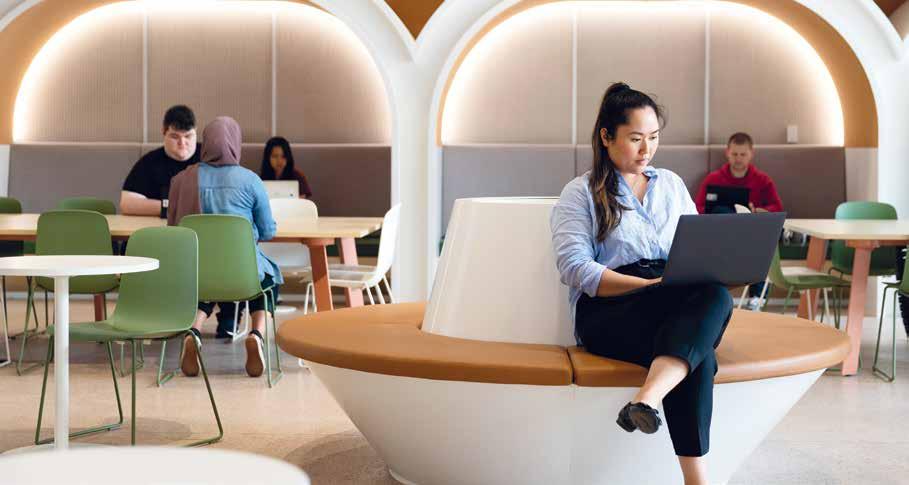
Whether you’re an undergraduate, postgraduate coursework or research student, we offer a range of scholarships to support you.
Vice-Chancellor’s
International Scholarship
This is a prestigious scholarship valued at up to $40,000 and awarded on academic merit to exceptional international students to pursue coursework studies.
Faculty-specific scholarships
Many of our faculties and schools also offer facultyspecific scholarships to international students.
Sydney International Undergraduate Academic Excellence Scholarship
This is a scholarship that supports academically exceptional international students to study across a diverse range of undergraduate courses, with 100% of tuition fees covered in eligible courses.
Research Training Program
International Scholarship
Many high-achieving students apply for a research degree and a scholarship at the same time. The Research Training Program International Scholarship, funded by the Australian Government, covers tuition fees, Overseas Student Health Cover, relocation costs and a living allowance.
Browse the full list of scholarships at: sydney.edu.au/scholarships/international
Other funding options
As an international student, you may be eligible for student loans or benefits from your home government, some of which the University of Sydney is accredited to administer. sydney.edu.au/study/int-loans
Department of Foreign Affairs and Trade (DFAT) Australia Awards
This Australian Government scholarship attracts scholars of the highest calibre from countries that have a development partnership with Australia. It covers full tuition fees and provides a living allowance. sydney.edu.au/students/australia-awards
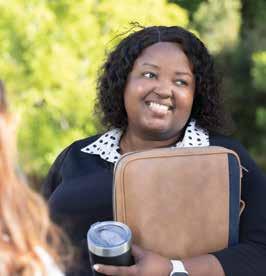
“ The RTP (Research Training Program) Scholarship allows me to focus more on my research without having to worry about tuition fees and living expenses. This plays a huge role as I get to focus and enhance my research skills while pursuing my PhD.”
Pauline Maniki Doctor of
Philosophy in Pharmacy Research Training Program International Scholarship recipient Home country: Zimbabwe
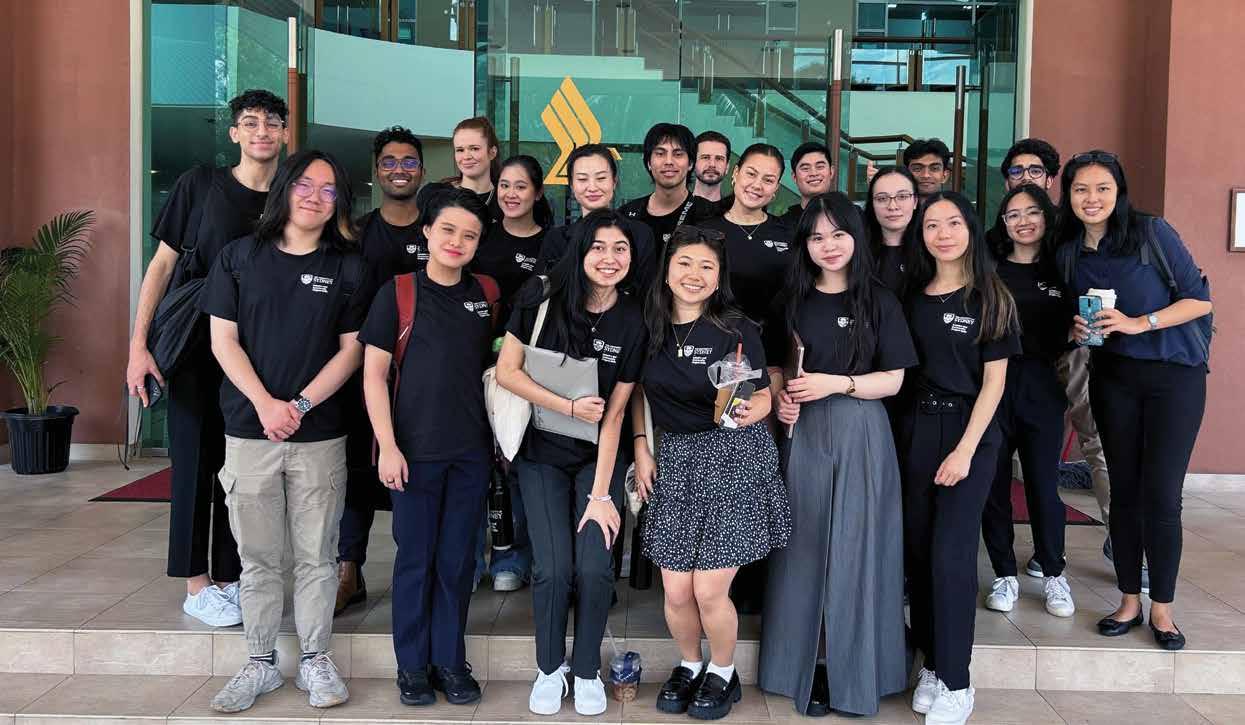
In the global Industry and Community Project Unit, students had an opportunity to travel to Singapore to collaborate with Singapore Airlines' flagship retailer KrisShop on a complex problem.

Throughout your studies with us you’ll have opportunities to work on real-life projects with leading industry partners, so you’ll graduate with the skills and experience you need to secure a competitive job and build a career with impact.
You’ll have access to a range of industry and community projects on which you’ll collaborate and network with leading organisations while gaining authentic experience addressing real-world challenges.
Our Careers Centre offers career counselling and other services and resources that enable you to be in the best career-ready position by the end of your studies.
Our start-up accelerator program, INCUBATE, delivers events and programs that equip you with the skills you need to accelerate your business idea, career or research.
Sydney Knowledge Hub is our on-campus research commercialisation and industry engagement hub, enabling our students and researchers to build strong partnerships with industry to improve commercialisation outcomes.
The majority of our courses offer either embedded or elective placements and internships that range in duration from two weeks to a full year. Each handson program is developed specifically to enhance your employability in your chosen area of study. sydney.edu.au/study/internship-placement in Australia for graduate adaptive skills*
1st
1st
in New South Wales for employer satisfaction*
When you study at the University of Sydney, you join a network of more than 430,000 alumni spread across more than 200 locations around the world.
From multinational organisations to local businesses, our alumni are employed in meaningful and impactful work.
Siberia
Dr Helen Cartledge
Executive Director, Defence Australia
Doctor of Philosophy (Engineering)
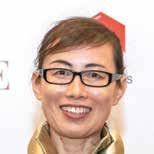
Read Helen’s story

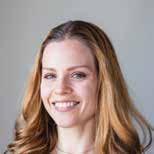
Canada
Dr Michelle Demers
Head of Science, BioScout
Doctor of Philosophy (Science)
Read Michelle’s story

Indonesia
Riza Ridho
Procurement Pharmacist,
Dr Radjiman Wediodiningrat
State Mental Hospital
Master of Pharmacy
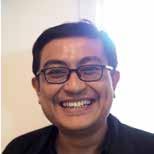
Read Riza’s story

China
Xinyi Yu
Founder, AWDPI and Avoice
Bachelor of Commerce
Read Xinyi’s story


Germany
André Bauer
Spacecraft Operations Engineer, DLR (German Aerospace Centre)
Bachelor of Engineering Honours (Aeronautical Engineering) (Space Engineering)
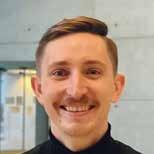
Read André’s story

Our iconic Quadrangle might be what springs to mind when you think of the University of Sydney, but we also have working farms, a field station on the Great Barrier Reef and many other facilities – our teachers, researchers and students are based all over Australia.
Our Camperdown/Darlington Campus sits just outside the Sydney city centre, and is surrounded by shops, cafes, restaurants and the cultural hubs of Sydney’s inner west.
sydney.edu.au/campuses
Did you know?
The University of Sydney’s Camperdown/Darlington Campus is less than 5km from the:
Sydney CBD
Sydney Harbour Bridge
Sydney Opera House
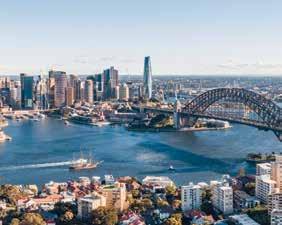
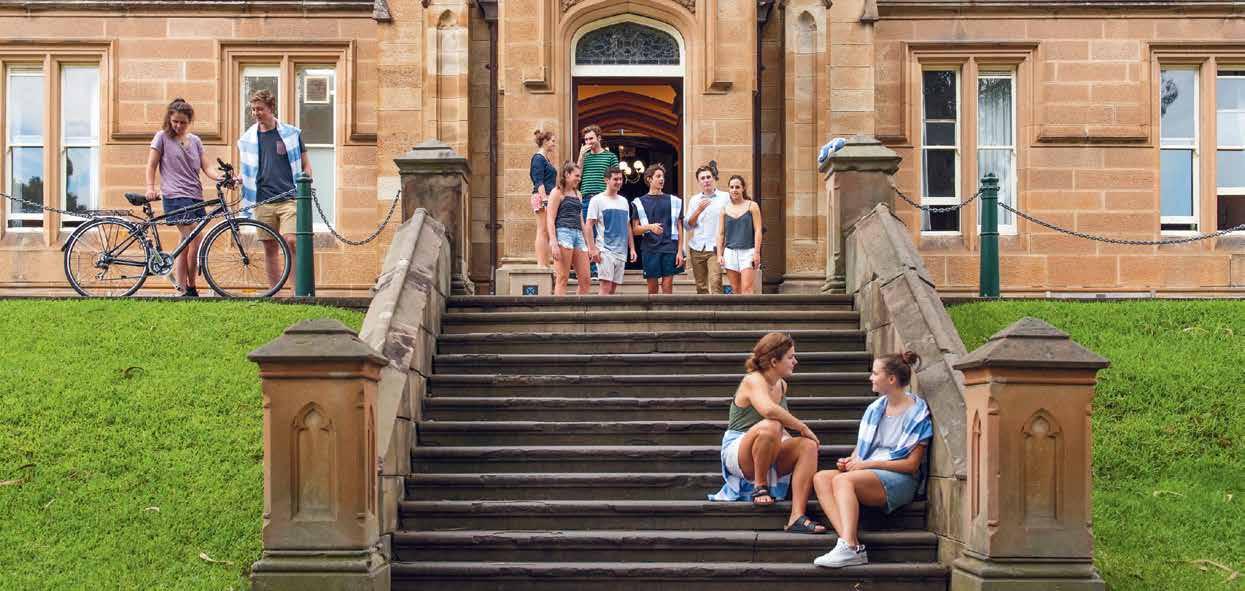
Whether you choose to live on or off campus, you’ll have a wide range of accommodation options to choose from.
Living on campus
Residential colleges offer furnished rooms, meals, laundry services and a strong support network.
University residences offer independent living options, with furnished rooms and shared living and study spaces.
Living off campus
The University’s campuses are surrounded by vibrant, multicultural suburbs. You can choose to live in independently run student housing or in private rental accommodation.
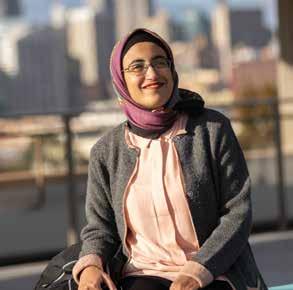
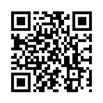
New to Sydney?
We recommend you book a temporary place to stay before committing to longer-term accommodation.
Most accommodation options are in high demand and require an application. Apply early to avoid disappointment.
Wherever you choose to live, our Accommodation Operations website is a great place to get started. It’s full of helpful advice on all your accommodation options and expected costs. It also allows you to apply for a place at University-owned housing. sydney.edu.au/accommodation
For further information on the approximate costs involved in living in Sydney, including transport, groceries and other everyday expenses as well as accommodation costs, visit: sydney.edu.au/study/living-costs
“ The Women’s College on-campus accommodation is such an amazing place. It is very convenient, safe, and unique in being the only on-campus accommodation for girls only. They organise different activities throughout the year to support students, both curricular and extracurricular. To me, it is much more than accommodation. It is really a home I can go back to after a long day and have a nice talk with my friends at dinner.”
Noha Kamel Doctor of Philosophy in Pharmacy
Home country: Egypt

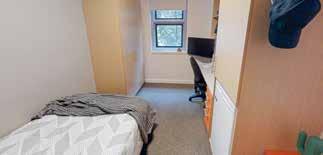
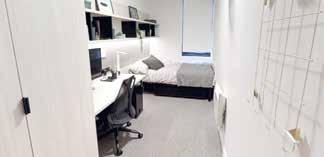
Abercrombie Student Accommodation Queen Mary Building Regiment Building
University-owned residences (from $303 per week)
University residences are located on or very near to our Camperdown/Darlington Campus, and are managed by University Accommodation Operations. They are available to all students.
Places Phone Website
Abercrombie
Queen Mary Building 801
200 +61 2 9351 3322 sydney.edu.au/accommodation
Regiment Building 620
Darlington House 54
Residential colleges (from $685 per week)
Residential colleges are located on our Camperdown/Darlington Campus, and are externally managed to provide options to suit your needs.
Places Gender Phone Website
Mandelbaum House 43 All genders +61 2 9692 5200 mandelbaum.usyd.edu.au
Sancta Sophia College 179 128 Women (UG) All genders (PG) +61 2 9577 2100 sanctasophiacollege.edu.au
St Andrew’s College 350 All genders +61 2 9565 7300 standrewscollege.edu.au
St John’s College 266 All genders +61 2 9394 5000 stjohnscollege.edu.au
St Paul’s College 500 All genders +61 2 9550 7444 stpauls.edu.au
Wesley College 260 All genders +61 2 9565 3333 wesleycollege-usyd.edu.au
The Women’s College 286 Women +61 2 9517 5000 thewomenscollege.com.au
UG = Undergraduate students PG = Postgraduate students
Independently run student housing (from $436 per week)
The following accommodation is located close to our Camperdown/Darlington Campus, and is available to all students of the University of Sydney.
Places Phone Website
Sydney University Village 650 +61 2 8024 6080 campuslivingvillages.com/australia/sydney/sydney-university-village
Scape Abercrombie 54 +61 3 9977 8088 scape.com.au/sydney/scape-abercrombie
Scape Broadway 660 scape.com.au/sydney/broadway-x-scape
Scape at University of Sydney 436 scape.com.au/sydney/scape-at-university-of-sydney
Unilodge Ultimo 85 +61 2 8080 8018 unilodge.com.au/student-accommodation-sydney/ultimo
Iglu Central Park 770 +61 2 8024 8650 iglu.com.au/properties/sydney/central-park
Iglu Redfern
635 +61 2 8024 8630 iglu.com.au/properties/sydney/redfern
Y Suites on Gibbons 472 +61 3 9121 0405 ysuites.co/page-ysuites-on-gibbons
Y Suites on Regent 408 ysuites.co/page-ysuites-on-regent Castle Accommodation 211 +61 416 188 186 castlestudentaccommodation.com.au
University residences, Camden Campus (from $163 per week)
The University residences on our Camden Campus are managed by our University Accommodation Operations teams, and are available to all students of the University. They are perfect for students who are studying veterinary science or agriculture at our Camden Campus.
Places Phone Website
Nepean Hall (Camden) 43 +61 2 9351 1622
Nepean Lodge (Camden) 98
sydney.edu.au/accommodation
Note: All accommodation fees listed here are in Australian dollars. They are intended as a guide only, and are based on 2024 fees for new students. These fees are correct at the time of printing to the best of the University’s knowledge, but are subject to change. You should contact the individual accommodation providers for detailed and up-to-date information, including additional costs and fees. Note that some colleges charge non-refundable application fees. Also note that some residences have 52-week contracts, while others only provide accommodation during semester. For current information, see sydney.edu.au/accommodation
The Centre for English Teaching (CET) offers English language courses and academic skills programs to prepare you for university.
Achieve your goals in English language learning, academic skills development, or teacher training in a supportive face-to-face or online environment.
CET offers highly qualified and experienced teaching staff co-curricular activities academic and wellbeing support four hours of interactive in-class learning per day online learning materials and activities engagement opportunities to develop your language skills outside the classroom. sydney.edu.au/cet
Direct Entry Course (DEC)
This course (CRICOS 083314F) is a tailored on-campus program that helps you develop your English and academic skills before commencing a degree at any Australian university.
sydney.edu.au/cet/direct-entry-course
Graduate Academic Skills (GAS)
This five-week program (CRICOS 086047G/042448J) helps prepare you for Australian university culture by developing your academic, critical thinking, collaboration and digital skills to ensure you succeed at university. You will also participate in a universitylike project to get a taste of student life.
sydney.edu.au/cet/graduate-academic-skills
Choosing the right Direct Entry Course (DEC)
If you need to improve your IELTS* score, use this table to choose the right program for you.
Conditions
X DEC 36 X
No more than 1.5 bands below degree entry requirement overall.
For students requiring 6.5 overall, no more than 1.5 bands below degree entry requirement in any skill.
For students requiring 7 or more overall, no more than 1 band below degree entry requirement in any skills but a minimum of 5.5 in reading and listening.
X DEC 15 X
No more than 0.5 bands below degree entry requirement overall. No more than 1 band below degree entry requirement in any skill.
X DEC 25 X
No more than 1 band below degree entry requirement overall. No more than 1.5 bands below degree entry requirement in any skill.
For students requiring 7 or more in every skill, no more than 1 band below degree entry requirement in any skills.
X DEC 10 X
No more than 0.5 bands below degree entry requirement overall. Degree entry requirements already achieved for each skill.
X DEC 5 X
Overall degree entry requirement already achieved.
0.5 bands below degree entry requirement in one skill only.
The preparation programs offered through Taylors College Sydney provide alternative pathways to the University of Sydney and prepare you for university by providing tailored academic and language support.
On successfully completing your preparation program and meeting all admission requirements for your desired undergraduate course, you will be offered a place at the University of Sydney*.
These programs not only provide you with the necessary academic foundations but also equip you with essential study skills for a seamless transition into university life.
Taylors College takes great pride in fostering a supportive environment and vibrant community for all students, facilitating a smooth transition into life in Sydney.
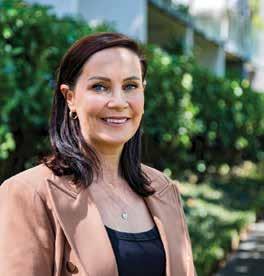
A superior teaching and learning experience
Experience high-quality teaching and learning from expert educators at Taylors College. The University oversees the delivery of these programs, ensuring a commitment to excellence in learning experience, academic outcomes, and progression. You will graduate from Taylors College confident and prepared for your upcoming university studies.
Wellbeing and support
At Taylors College, dedicated staff will support you in every aspect of your journey, whether it’s helping you settle into life in Sydney, ensuring your personal welfare or providing assistance with your studies. The committed teams prioritise your success and wellbeing, and are with you every step of the way.
“As Director of Student Success, my role is to help students achieve their full potential by supporting their progression through our programs and enabling their successful transition to the University of Sydney.”
Rebecca James Director of Student Success Taylors
College
89%
100%
The University of Sydney Foundation Program (USFP)
With our USFP, you’ll gain strong academic foundations, spark your critical thinking skills and be fully prepared for university life and your studies.
52-week Standard Program starting in January and July (CRICOS 022310D)
40-week Intensive Program starting in April and October (CRICOS 036126M)
High Achievers Preparation Program (HAPP)
Our HAPP is for high-achieving students with outstanding academic results and English skills who narrowly missed achieving direct entry to the University of Sydney. It will fast-track your journey to university in just 14 weeks.
14-week program starting in September (CRICOS 089556F)
For more information on these programs and how to apply, visit: www.taylorssydney.edu.au
of our University of Sydney Foundation Program (USFP) and of our High Achievers Preparation Program (HAPP) graduates were offered a place at the University of Sydney in 2023
* Entry to the University of Sydney will depend on two separate results: your Grade Point Average (GPA) of all modules studied except English, and your English grade (for most degrees). Some courses have a limited number of places and the GPA listed on the course website is the minimum to be considered for an offer. It is possible that not all students will be offered a place or be able to accept an offer once course capacity is reached and may be offered an alternative course choice.
Our rankings across many areas of study reflect our achievements as one of the world’s leading research and education providers.

Architecture, design and planning
27th in the world for architecture/built environment
Arts and social sciences
2nd in Australia and equal 34th in the world for arts and humanities
Business
Top 1% of business schools worldwide with triple crown accreditation (AACSB, AMBA and EQUIS)
Engineering and computer science
1st in Australia and 43rd in the world for computer science and information systems. 23rd in the world for civil and structural engineering
Law
16th in the world for law

Education
22nd in the world for education
Medicine and health
26th in the world for medicine, 14th for nursing and 4th for sports-related subjects
Science
2nd in Australia and 27th in the world for life sciences and medicine
Studying at university isn’t just about gaining credentials – it’s about investing your time to discover what you really love doing.
Start by thinking about which subjects interest you, as well as how you like to learn and what you want from your university experience.
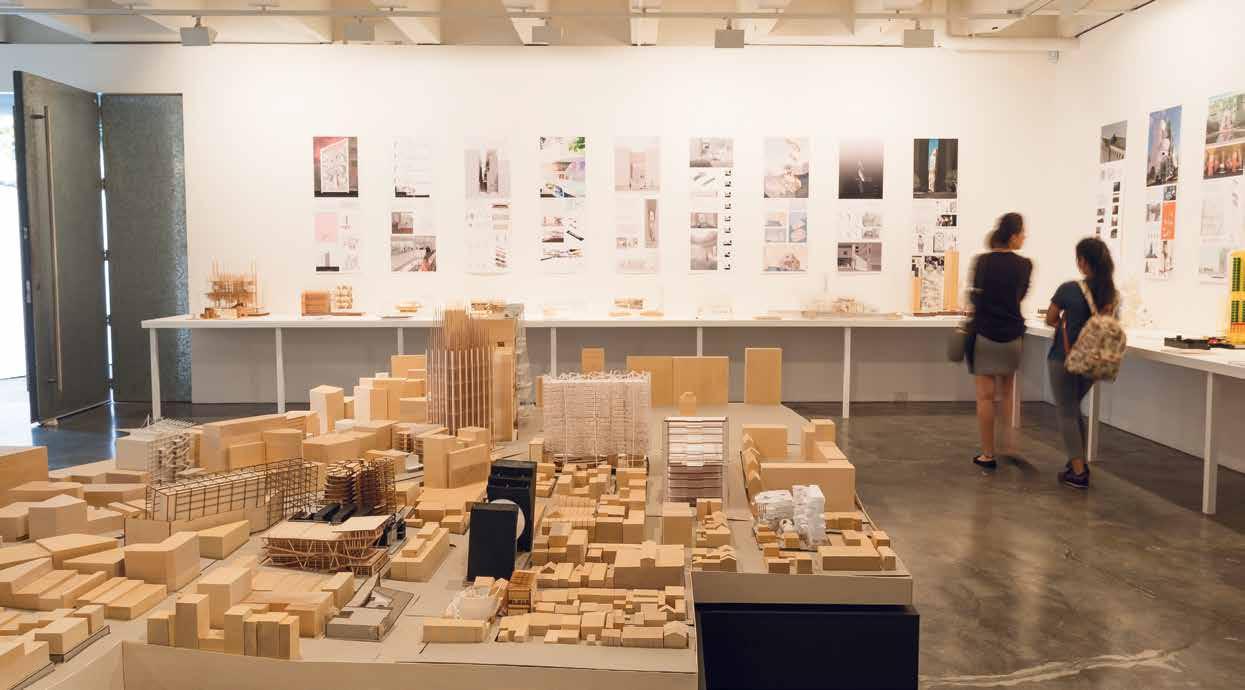
Want to design the future? When you study at Sydney, you’ll combine your creative flair with finely tuned technical skills to shape the spaces, services and experiences – both physical and digital –in which we live, work and play.
Graduate ready for a career that’s creatively driven and technically challenging
With world-class teachers and researchers, you’ll benefit from industry-leading knowledge and cutting-edge practices, and develop the big-picture thinking needed to succeed as a built environment professional. You’ll learn in a vibrant studio culture, complemented by opportunities to engage in exhibitions, industry internships and international studios to broaden your thinking as a design professional.
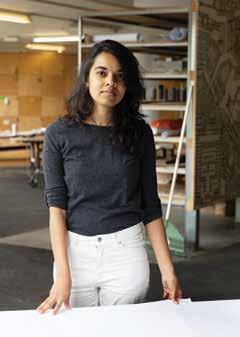
We’re ranked 27th in the world for architecture and built environment*
Our Wilkinson Building has one of the best-equipped design, modelling and fabrication labs in Australia, and includes dedicated studio space for students
You’ll gain hands-on experience through our extensive network of industry partners
* QS World University Rankings by Subject 2024
“ The University of Sydney is well associated with industry professionals, and as a student I have been able to benefit from being tutored and reviewed by some very well-established architects in the field The school also organises very interesting and insightful lectures by … successful professionals throughout the semester, that we are welcome to engage with for free. This has given me great opportunities for building my network as I prepare to graduate and step out into the industry soon.”
Srilalitha Yeleswarapu Master of Architecture
Home
country: India
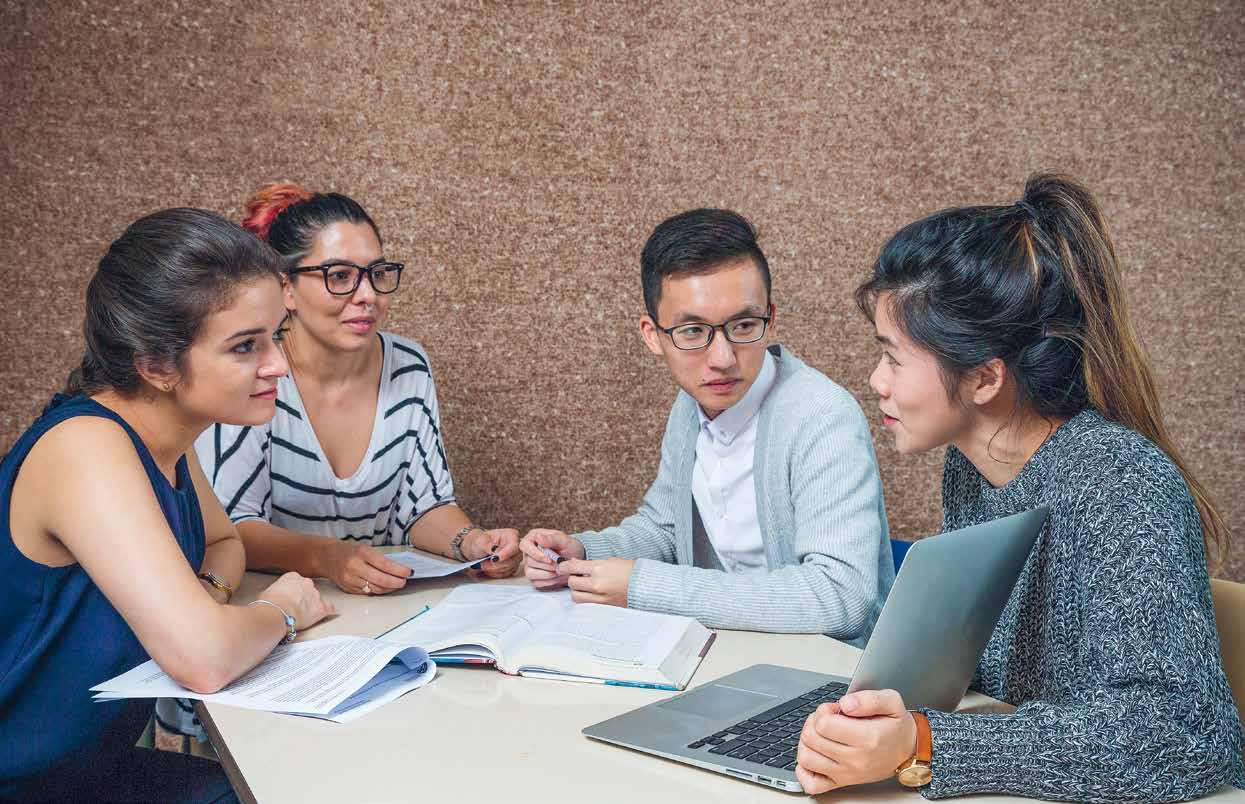
A degree in the arts and social sciences will help you sharpen your critical thinking abilities and empower you to make informed decisions backed by strong reasoning and evidence. By gaining these skills, you’ll be well prepared for the careers you can imagine now – and those that don’t exist yet.
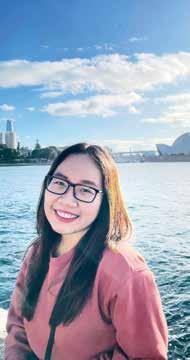
“ The course has offered me a combination of theory and practical assignments, and opportunities to meet the best professors and individuals with different backgrounds. These [have] equipped me with a strong base of knowledge and skills to be ready for my future career.”
Ho
Minh Thu Nguyen
Bachelor of Arts and Bachelor of Advanced Studies
Home country: Vietnam
*
Transformative careers in every industry
In a world as disrupted as ours, arts graduates’ capacity for leadership, creativity and analysis has never been more relevant or sought after by employers. Invest in a future where you will be sustained by your passion for your work, and where your skills will be valued contributions to the world.
We're ranked first in Australia and 12th in the world for arts and humanities*
You’ll learn from leading experts across more than 40 subject areas
+ Areas of study
You’ll gain on-the-job experience through our partnerships with corporate, government and not-for-profit organisations
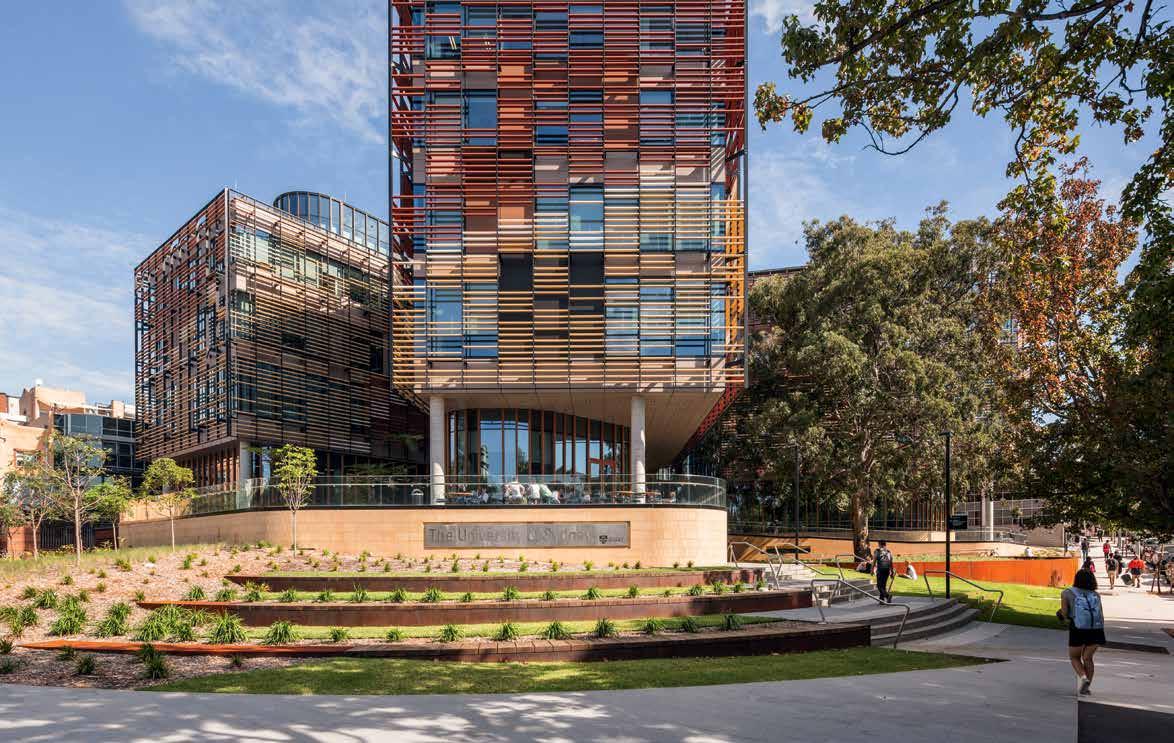
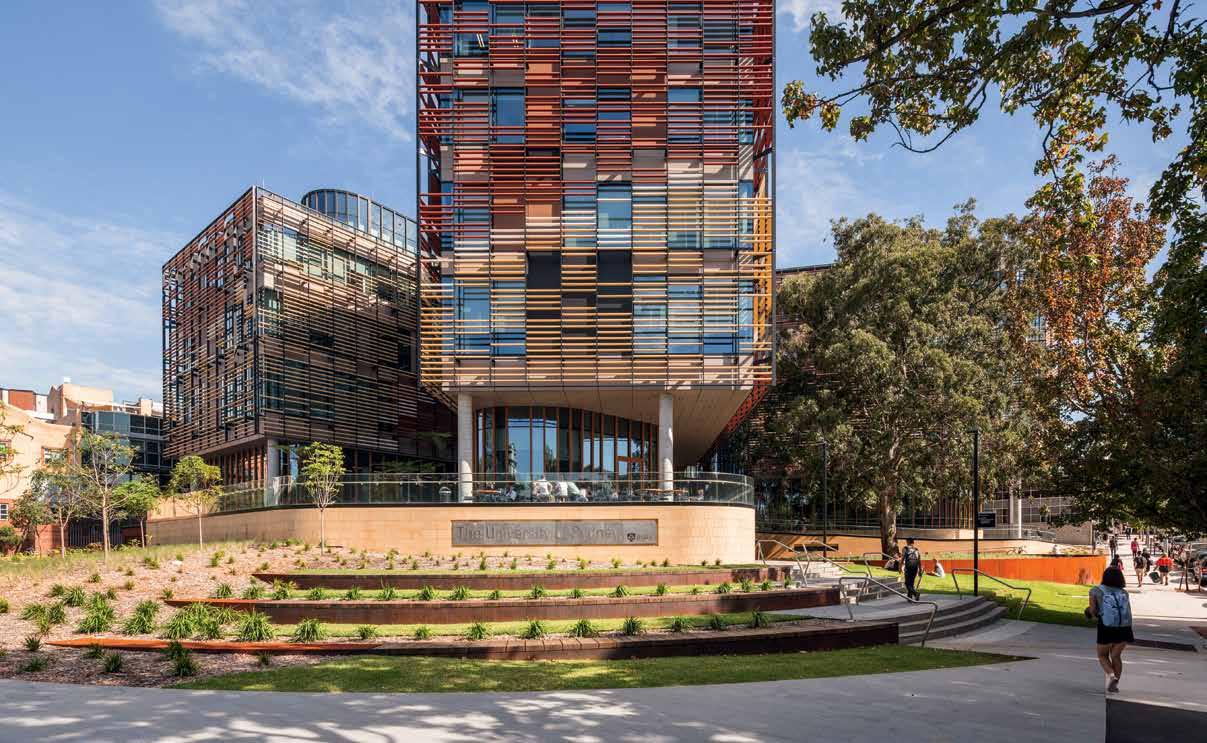
At the University of Sydney Business School, you’ll acquire the skills to future-proof your career in a dynamic global economy. You’ll graduate with the technical skills, experience and mindset to drive positive, responsible impact and become a respected leader in your field.

Global leaders in business education
Our business degrees prepare you for career success in a dynamic and disruptive global economy. You’ll be equipped with advanced disciplinary knowledge as well as critical thinking, communication and leadership skills. From internships to consulting projects and global mobility opportunities, you’ll have access to a whole range of workready learning experiences integrated into your studies. And with our award-winning employability program for international students, Job Smart,^ and a dedicated careers office, you’ll be empowered to carve your own path to success.
“ The University of Sydney is a world-renowned institution which offers an amazing Bachelor of Commerce with a large variety of major/minor combinations, allowing me to sit for the CFA [Chartered Financial Analyst] examinations after my degree.”
Stacey Fon Sing Bachelor of Commerce
Home country: Mauritius
1st
Our MBA and Master of Management are ranked 1st in Australia**

Economics is a fascinating and diverse discipline. This important field addresses a range of issues that we face in modern life, playing a central role in shaping our society at every level.
Economics is crucial to understanding and solving the major problems and unique challenges the world faces today. Our economics courses equip you with the skills, knowledge, flexibility and industry expertise to address these issues, make real-world differences and succeed in your career – wherever it takes you. You’ll graduate with a globally relevant and highly sought-after qualification.
“One of the aspects that I enjoy the most is the exceptional quality and rigour of the classes I have taken . I greatly enjoy the dynamic learning environment where interactive critical thinking, research skills, and the ability to apply theoretical concepts to real-world scenarios are nurtured.”
Eugenia Camnahas Bachelor of Economics
Home country: Timor-Leste
You’ll join an outstanding and diverse alumni community, contributing in valuable ways around the globe
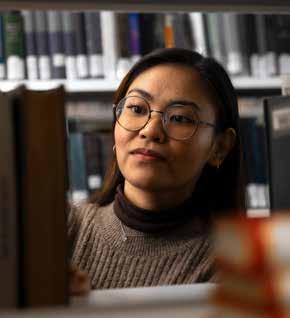
Our alumni are highly sought after and have included a former prime minister, several state premiers, and leaders in the World and Reserve Banks

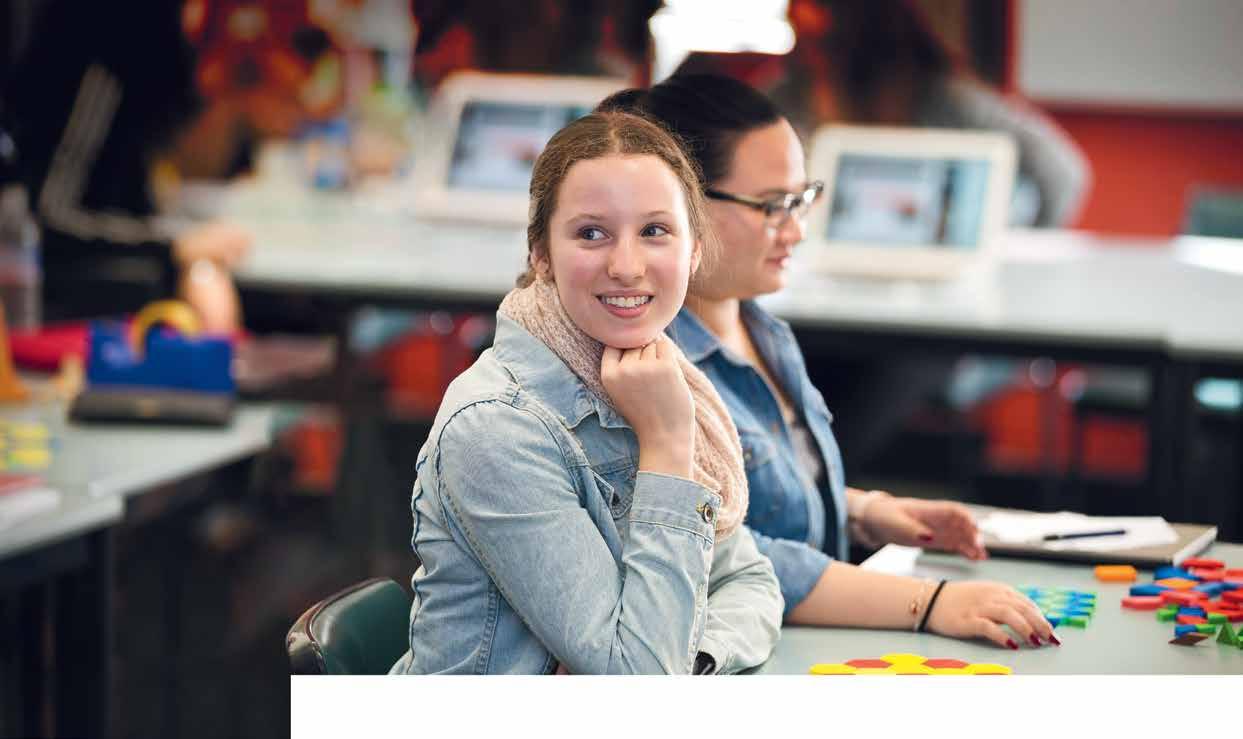
Do what you love and make a world of difference through teaching or social work. At Sydney, you’ll be challenged to explore complex ideas and issues in your chosen field, and you’ll graduate as an informed and effective practitioner.
With strong connections in both the education and social work sectors, our placement program encourages meaningful practical experiences. Throughout your course, you’ll apply your theoretical knowledge in real-world settings and develop the professional skills to graduate with confidence.
21st
We’re ranked 21st in the world for education*
Our teacher education degrees are accredited by the NSW Education Standards Authority (NESA)
Our social work degrees are accredited by the Australian Association of Social Workers (AASW)
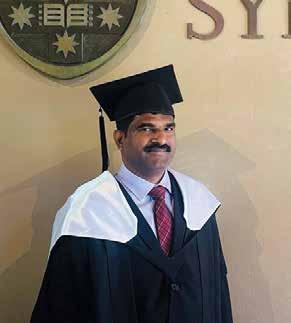
“ The [rankings] of the University of Sydney at the international level and the calibre of academics are the most inspiring features that influenced my selection.”
Sharveswara Ratnasingam Master of Education
Home country: Sri Lanka
* Times Higher Education (THE) World University Rankings by Subject 2024
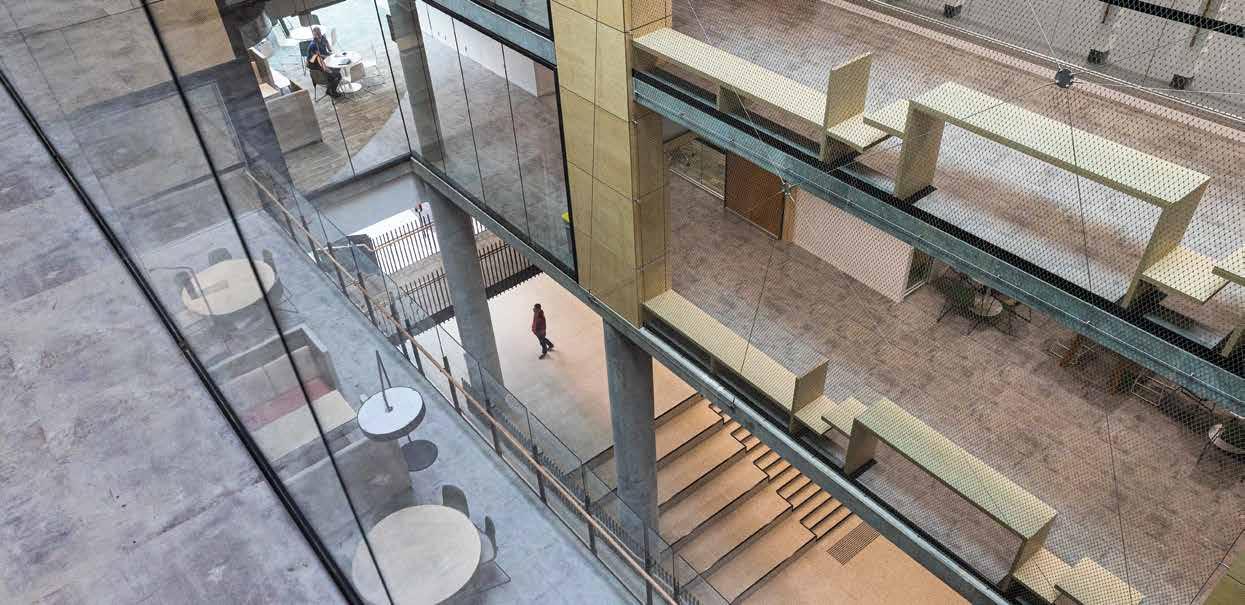
We’re creating a digital, sustainable, healthier future by educating tomorrow’s leaders and pioneering technological research. If you’re passionate about developing innovative and sustainable solutions to some of the world’s greatest challenges, then a degree in engineering, project management or computer science at Sydney is the right choice for you.
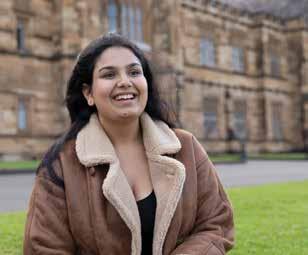
We’re ranked first in Australia and 43rd globally for computer science information systems*
Our fantastic multimillion-dollar engineering and technology precinct includes unique student learning spaces.
Solve tomorrow’s problems today
Our digitally focused curriculum prepares you for the jobs of the future. From space engineering and the built environment to cybersecurity and nanotechnology, our broad range of streams, specialisations, majors and cross-disciplinary units, as well as our award-winning Professional Engagement Program^ ensures that you’re able to pursue your passions while standing out in the job market.
“No other institution allowed me the freedom to pursue a second major from a wide variety of non-tech subjects in a computer science degree. This unique feature enabled me to combine both my passions for technology and finance, creating a tailor-made educational journey that perfectly aligned with my interests and career aspirations.”
Shreya Prakash Bachelor of Advanced Computing Home country: India
We're ranked 23rd globally for civil and structural engineering*
You’ll gain professional experience through our awardwinning programs and network of 1200+ industry partners
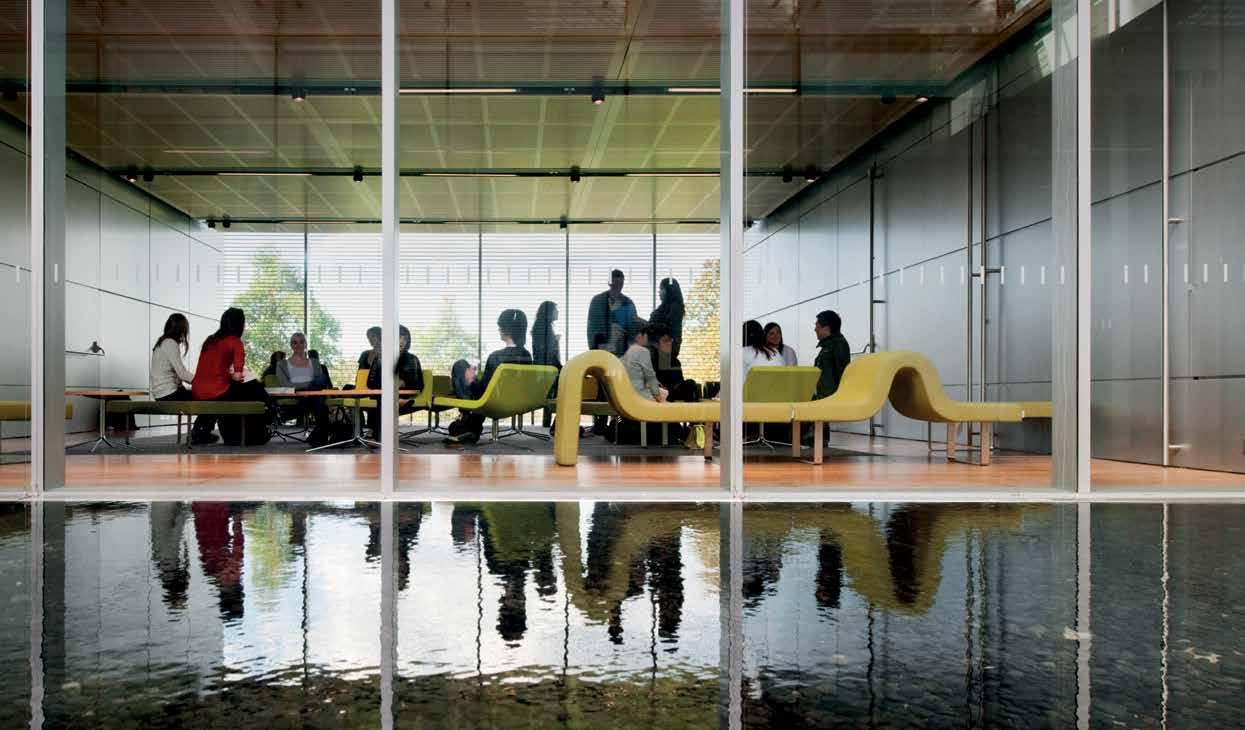
With more than 165 years of research-led education, we are proud to be recognised as one of the world’s leading law schools. Your Sydney law degree will equip you with highly sought-after skills to become a leader in your chosen career and create change in a global environment.
At Sydney Law School, you’ll learn from globally recognised legal educators and highly respected professional practitioners, gain an internationally relevant legal education with overseas opportunities, and develop skills that will prepare you for the global marketplace.
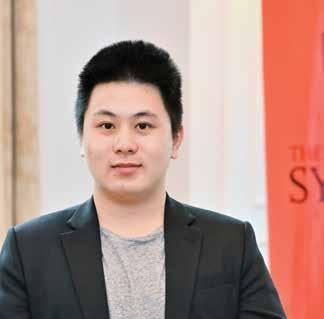
We’re ranked 16th in the world for law*
* QS World University Rankings by Subject 2024 16th
You’ll apply classroomlearned knowledge to real-world cases with social justice and law reform activities
Our strategic international partnerships provide you with opportunities to study with world-leading universities abroad
“ The University’s vibrant academic environment fosters both learning and interaction, and the engaging lectures and tutorials combined with various perspectives brought in by students from various backgrounds makes the learning experience really enriching.”
Edward Hoang
Bachelor of Commerce and Bachelor of Laws
Home country: Vietnam
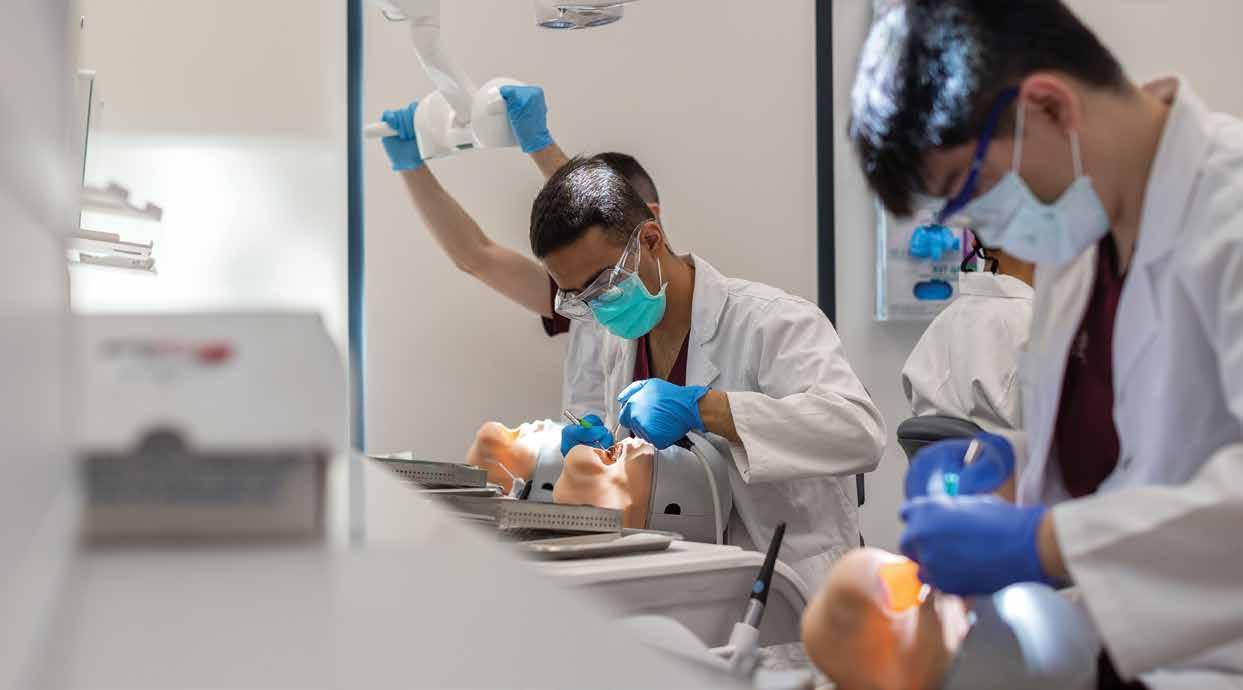
There has never been a better time to study medicine and health. With healthcare professionals in high demand across the world, we are empowering future leaders in the field. Choose from a diverse range of health-related degrees and graduate ready to enter the health workforce.
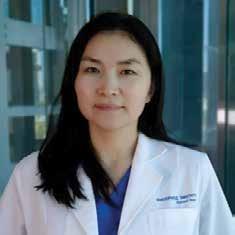
Make a difference to the lives of individuals and communities
Health care is one of the fastest-growing industries around the world. At Sydney, you’ll learn with academic experts and students in many health disciplines to develop a range of invaluable skills, from patient interaction to teamwork, leadership and research.
“My Health Policy degree opened doors to remarkable new opportunities. I’ve been able to propose and champion a range of health initiatives, securing funding for projects that are close to my heart.”
Munkhjargal Byambajav
Paediatric Gastroenterologist and Healthcare Program Manager Health Policy graduate Home country: Mongolia
We’re ranked in the top 26 worldwide for medicine, nursing, anatomy and physiology, pharmacy and pharmacology, and sports-related subjects*
Our Susan Wakil Health Building features state-of-the-art clinical simulation and learning spaces, research facilities and gyms, and more
You’ll gain hands-on experience through clinical placements, and network with 1500+ industry partners

The Sydney Conservatorium of Music has been at the forefront of Sydney’s musical and cultural life for more than 100 years. Our diverse range of degrees is designed to allow you to develop your unique musical voice, and includes classical performance, jazz, music composition for creative industries or the concert hall, digital music and media, contemporary music, Indigenous music, Asian music, music theatre, musicology and music education.
The Conservatorium offers some of the best facilities for studying music in the Asia-Pacific region. You’ll have plenty of opportunities to perform or to have your work performed or recorded. As part of your studies you’ll also have extensive opportunities to rehearse and perform with some of our ensembles led by industry experts, including our Symphony Orchestra, Wind Symphony, Choir, Jazz Big Band, Modern Music Ensemble and Early Music Ensemble.
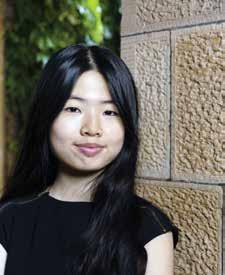
“Studying at the Sydney Conservatorium of Music has exposed me to innumerable opportunities that have satisfied my craving for limitless selfexpression that catalyses my introspective journey of selfdiscovery. It has been a wonderful experience for me.”
Noriko Wijaya
Bachelor of Music (Performance)
Home country: Indonesia
Complement your music degree and develop additional specialised knowledge through the University's shared pool*
$2 million
Apply for a wide range of merit and equity scholarships worth $2 million annually
Learn directly from acclaimed musicians, award-winning scholars and music industry leaders
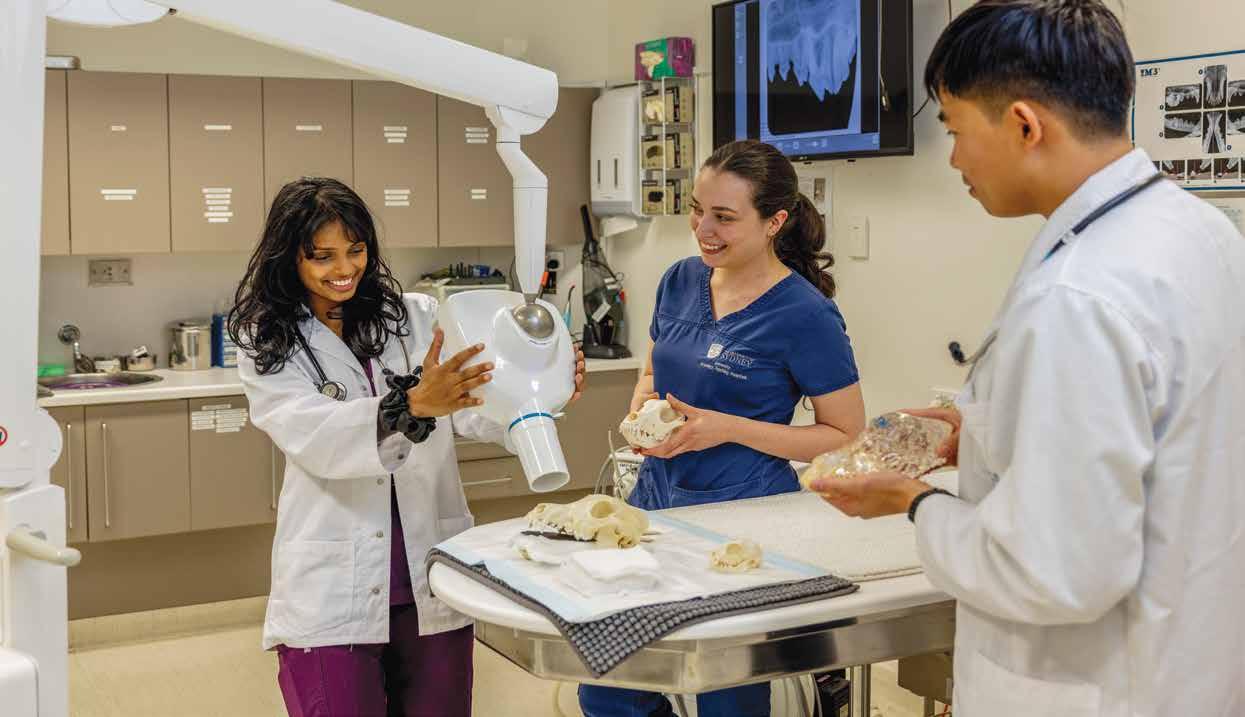

Studying science opens up a whole world of opportunities.
Whether you dream of joining the forefront of scientific research, learning to analyse and think critically, or making the planet a better place, studying science will give you highly sought-after skills for a huge range of careers.
from
You’ll be taught by dedicated scientific experts, including members of the Australian Academy of Science, Australian Research Council Fellows and other prestigious prize winners. You’ll study in world-class facilities, including our Life, Earth and Environmental Sciences building, the Sydney Nanoscience Hub, the International Centre of Crop and Digital Agriculture at Narrabri farms, and the World Heritage-listed One Tree Island.
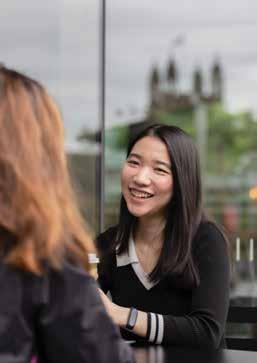
nd
We’re ranked second in Australia and 27th in the world for life sciences and medicine*
You’ll learn from experts at the University of Sydney Nano Institute, the Charles Perkins Centre, and Taronga Conservation Society Australia
Choose from our range of flexible science degrees or professionally accredited courses, including in psychology and veterinary medicine
“Studying in the Master of Agriculture and Environment program provides me with a unique chance to explore diverse sectors, fostering innovation for food security and sustainable development. I am excited to pursue a career in research, supported by the invaluable skills I’ve gained [through] this program.”
Jessica Gabriella
Master of Agriculture and Environment
Home country: Indonesia
*
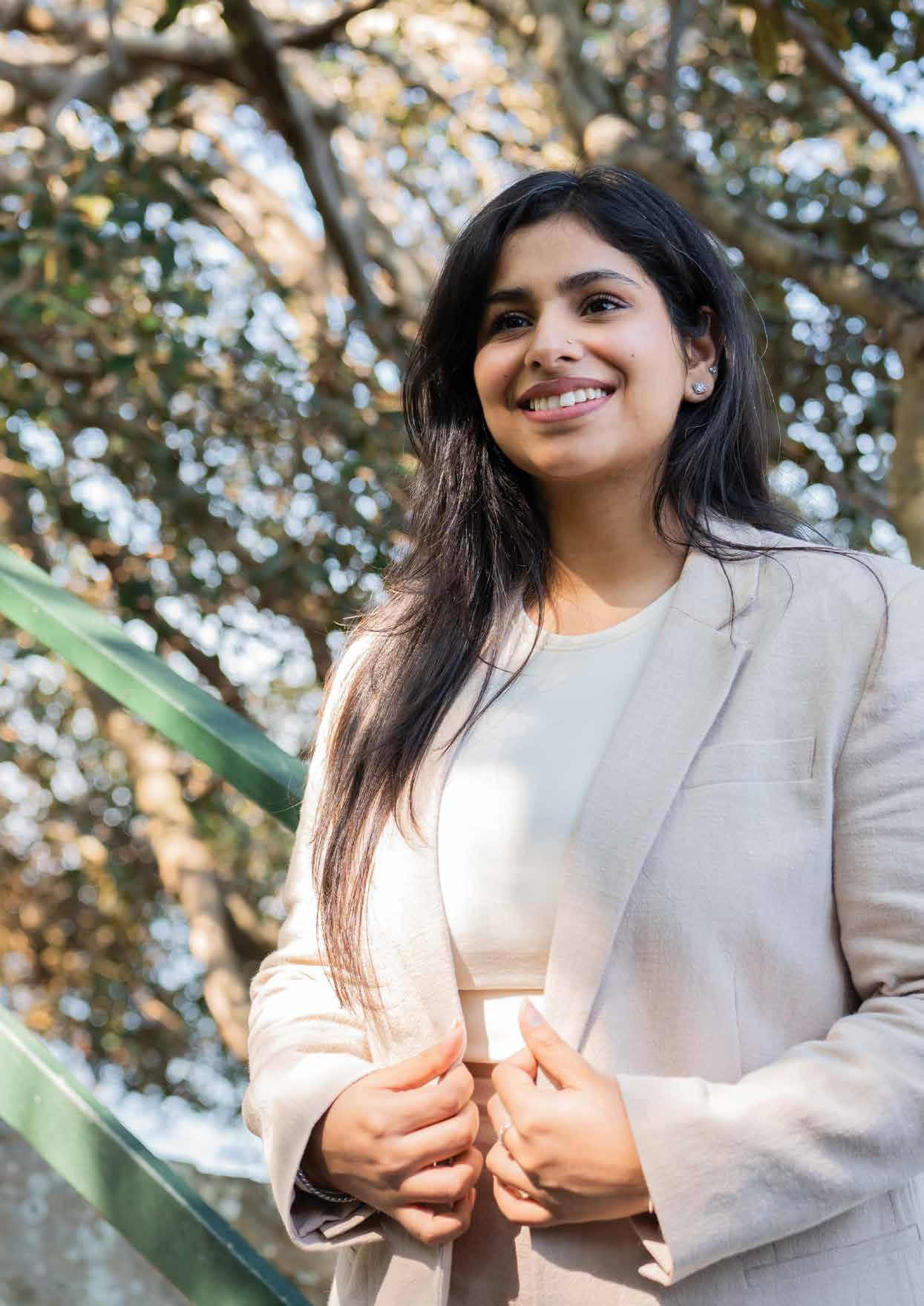
“My aspiration is to leverage my University of Sydney education to contribute significantly to the international education landscape. The robust foundation laid by the degree, combined with the experiences gained during my studies, positions me to play a pivotal role in shaping policies and spearheading initiatives.”

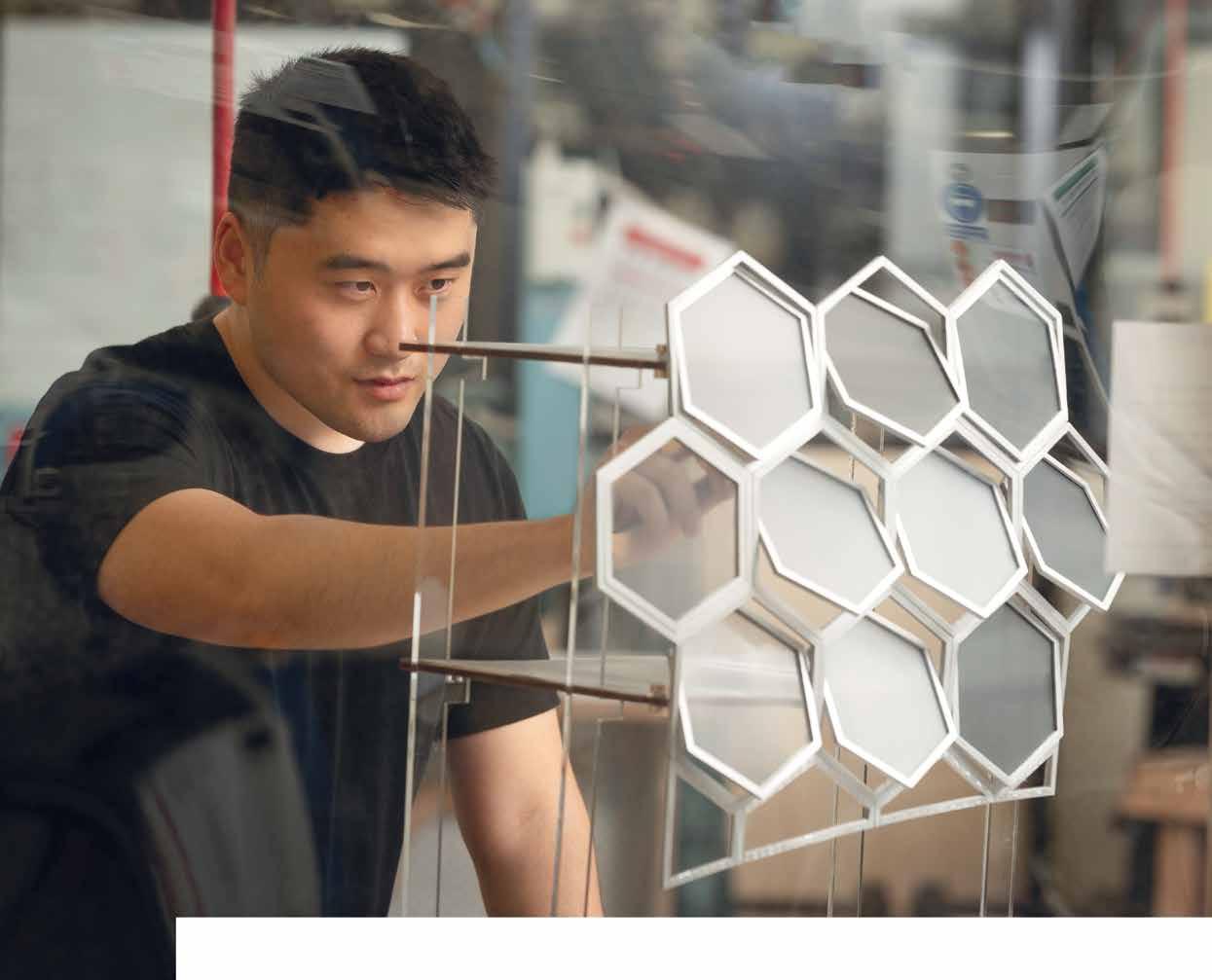
The University of Sydney undergraduate experience is like no other. Our flexible degree structures will prepare you for a career that is yours to define.
With more than 400 study areas and a range of professional and specialist degrees, you’ll find a path that’s right for you.
Apply your passions inside and outside the classroom as you: build your portfolio at university through industry and community internships and placements to get you careerready, no matter what you study
follow all your interests through our shared pool of majors and minors and gain expertise in a second field that sits outside your primary degree (available in a range of liberal studies and specialist degrees –see page 35)
make the world your classroom by taking advantage of the largest study abroad and exchange program in Australia,* with more than 250 international partner universities*
sydney.edu.au/ug-experience
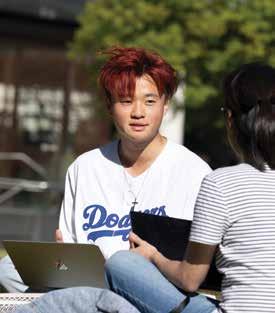
“ The degree's emphasis on practical experience, through internships and applied research, provides a valuable opportunity to apply theoretical knowledge in practical settings, enhancing my employability and readiness for a successful career in the dynamic and evolving business landscape.”
Zixin Zhang Bachelor of Commerce Home country: China
join the next generation of global leaders with our Dalyell Scholars stream, which gives you access to a range of enrichment opportunities that will extend your academic and leadership capabilities support your transition to the workplace by building new skills and enhancing your personal and professional development through our Open Learning Environment pursue research opportunities through a range of undergraduate honours pathways that can provide you with the skills to apply to study a research degree in the future, such as the Doctor of Philosophy (PhD) join an active and thriving community where you can share your passion and interests and develop lifelong networks.
Whatever path you choose, your experience with us will be unique. You’ll gain the technical knowledge and expertise, along with the practical skills and real-world experiences, that employers are looking for – and the world needs. *

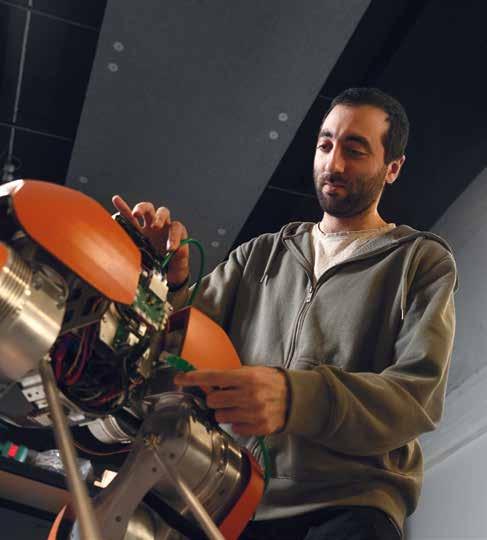
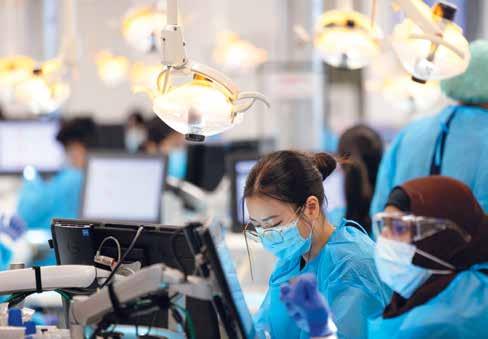
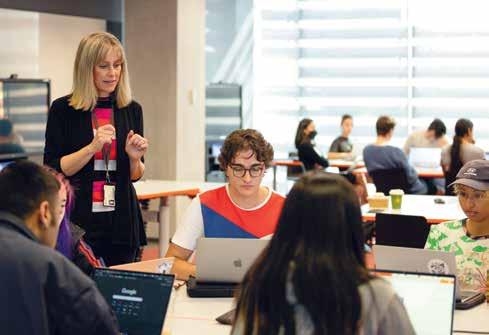
You’re about to finish high school, and you’re not sure what comes next. Or maybe you’ve always known what you want to do, but you’re not sure how to get there.
While the next step may seem daunting, there’s also never been a more exciting time to start university. You’re part of a generation with more choice and opportunity than ever before.
Your career journey may take many turns. Technological advances, world events and new discoveries are changing how, when and where we work. You’ll likely work in a range of roles, industries and maybe even countries over the course of your career.
But there’s one thing you can count on. When you join us you’ll gain realworld experience, expand your global network and develop the skills and mindset to launch yourself into a career full of possibilities.
First, connect with us and explore your options.
Check out our international events which may be in your country or online throughout the year sydney.edu.au/international-events
Check out our online resources for international students which provide a hub on key information for international applicants, including advice on choosing a course, scholarships and more sydney.edu.au/study/international
Follow us on socials to get a taste of the Sydney experience and what makes our campus life unique @sydney_uni
Book a campus tour if you’re in Sydney for an in-depth look at what’s waiting for you sydney.edu.au/campus-tours
Explore the uni in 360° from home tour.sydney.edu.au
Once you’re ready to take the next step, you’ll find everything you need to know – from important dates to how to submit your application – on pages 72–75.
Not sure what to study? Start thinking about what interests you, as well as how you like to learn and what you want from your uni experience. Our advice is to do what you enjoy and what inspires you. You can refine your study journey as you discover what you love. See pages 38-59 for all the areas of study available.
Worried you won’t get the marks?
Getting lower-than-expected marks is not the end of your university dreams. There are pathways for international students to the University of Sydney. Understand your options by reading about our preparation programs offered through Taylors College Sydney on page 15.
There are many ways to get involved at uni and design your own path, including: global exchange and travel opportunities professional placements and internships clubs and societies networking and so much more!
Start planning your career while you study, and make the most of opportunities to build your employability skills. We can give you direct access to the companies and organisations you want to work with through industry projects, entrepreneurship programs and our Careers Centre services.
Industry partners you can work with include Adobe, Allianz, EY, PTW Architects, TerraCycle, Westpac, Youth Justice NSW and many more.
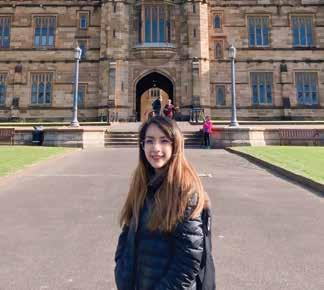
Our strong rankings and reputation set our graduates apart. The University is ranked 2nd in Australia and 18th in the world.* You can be confident that we’ve designed our courses to prepare you for a rapidly changing world.
Your university journey is only just the beginning! When you graduate, you’ll join a network of more than 430,000 University of Sydney alumni around the globe that you can connect with through our alumni programs and events. We look forward to staying in touch and seeing where your journey takes you.
If you’re interested in continuing with study or research, our postgraduate programs can take your career to the next level or allow you to pursue another passion. Find out more on pages 78–103, or sydney.edu.au/postgraduate
“Engaging with real-world case studies and collaborating with organisations has provided invaluable hands-on experience. These opportunities not only allowed me to tackle real challenges but also equipped me with practical solutions, shaping my future career path with confidence and empowerment.”
Soukhonthone Phoumindr Master of Commerce (Extension) Home country: Laos
As long as you fulfil the requirements of your chosen degree, there are many ways in which you can shape your study and uni experience.
When you study with us, you’ll complete a number of components specific to your chosen degree’s requirements.
These components might be called a stream, a program, a specialisation, a major or minor, core and elective, or selective units of study, depending on your degree.
Some degrees have set components that you must complete. For example, the Bachelor of Psychology requires you to complete the Psychology Program.
Other degrees are more flexible, allowing you to select from a wide range of relevant majors and minors. Examples of this kind of degree are the Bachelor of Arts, the Bachelor of Science and the Bachelor of Commerce.
Make your degree unique
If your degree allows you access to our shared pool of majors and minors (see page 35), you could choose to study a couple of units of study or even a major or minor in a field that would usually sit outside your degree. For example, you could enjoy learning Korean while studying science, or complement a major in marketing with the study of design.
Study overseas
Through our global mobility program, you can choose to spend a few weeks, a semester or even a full year studying at an overseas university as part of your degree.
Access our Open Learning Environment
Some degrees allow you to complete units from our Open Learning Environment (OLE), where you can extend your skills and knowledge by exploring other fields of study. Most OLEs are offered online, but some offer short overseas experiences.
Get a head start on real-world experience
Don’t forget that in some degrees, in addition to your regular study you can also build in internships and work placements, allowing you to start gaining real-world experience while you study.
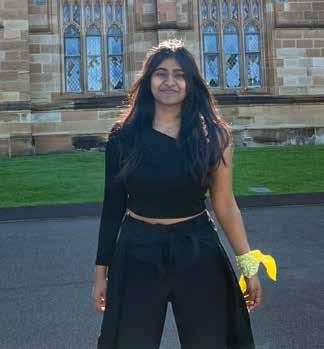
“I have chosen to study a double major in physiology along with the medical science program which is core to my degree. I feel that the availability of so many courses gives students the freedom to expand on their knowledge in the same field or even in different fields. It helps them tailor their degree to their needs, which is essential in helping them to achieve their goals.”
Deepthi Narayanan Bachelor of Science (Medical Science) Home country: India
In degrees with access to the shared pool of majors and minors, you can combine your primary major with a major or minor in one of the areas below. The shared pool is accessible through a wide range of degrees, including the Bachelor of Arts, Bachelor of Science and Bachelor of Commerce, and many more.
Architecture, design and planning
Design
Urban Studies
Arts and social sciences
American Studies
Ancient Greek
Ancient History
Anthropology
Arabic Language and Cultures
Archaeology
Art History
Asian Studies
Chinese Studies
Criminology
Cultural Studies
Digital Cultures
Diversity Studies*
English
European Studies
Film Studies
French and Francophone Studies
Gender Studies
Germanic Studies
Hebrew (Modern)
History
Indigenous Studies
Indonesian Studies
International and Comparative
Literary Studies
International Relations
Italian Studies
Japanese Studies
Jewish Civilisation, Thought and Culture
Korean Studies
Latin Linguistics
Modern Greek Studies
Philosophy
Political Economy
Politics
Sanskrit*
Socio-legal Studies
Sociology
Spanish and Latin American Studies
Studies in Religion*
Theatre and Performance Studies
Visual Arts
Business
Accounting
Banking**
Business Analytics
Business Information Systems
Business Law
Finance**
Industrial Relations and Human Resource
Management
Innovation and Entrepreneurship
International Business
Management and Leadership
Marketing Economics
Economic Policy#
Economics
Econometrics
Environmental, Agricultural and Resource Economics
Financial Economics
Education and social work
Education Studies
Engineering and computer science
Computer Science
Computer Systems
Project Management
Software Development
Medicine and health
Anatomy and Histology
Applied Medical Science
Disability and Participation
Health
Hearing, Speech and Communication
High Performance in Sport
Immunology*
Immunology and Pathology**
Infectious Diseases
Neuroscience
Pathology*
Pharmacology
Physical Activity and Health
Physiology
Music
Digital Music
Music
Animal Health, Disease and Welfare
Animal Production
Biochemistry and Molecular Biology
Biology
Chemistry
Data Science
Discrete Mathematics and Algorithms
Ecology and Evolutionary Biology**
Environmental Studies
Financial Mathematics and Statistics
Food Science
Genetics and Genomics
Geography
Geology and Geophysics
History and Philosophy of Science
Marine Science
Mathematical Modelling and Computation
Mathematics
Medicinal Chemistry
Microbiology
Nutrition Science
Physics
Plant Production
Plant Science
Psychological Science
Soil Science and Hydrology
Statistics
Sustainability
Virology*
Wildlife Conservation*
Here are two examples of what a three-year bachelor’s degree could look like for you.
Most students complete one major, but in some degrees you can study two majors in the same duration if you have two passion areas. If you choose a degree that has access to the shared pool, this could even be a major from another faculty or school.
The two examples shown here are just guides, and may not be applicable to your degree. Once you’re here, we provide lots of support and course planning tools to help you access the full range of opportunities across your areas(s) of study.
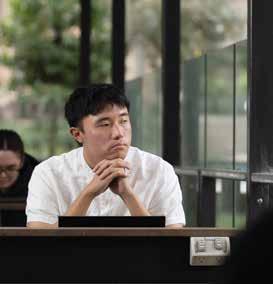
“Starting from my second year, I engaged in placements where I worked with health professionals and clients in real-world settings like hospitals and private organisations. This unique opportunity has broadened my understanding and enriched my learning experience.”
Bryan So Bachelor of Applied Science (Occupational Therapy)
Home country: Hong Kong SAR, China
Further enhance your degree at Sydney with the largest global mobility program in Australia.* We have partnerships with universities across Asia, Europe, the Americas and the UK, where you can study abroad on exchange like in the sample degrees shown above. There are also short-term international programs available during the summer and winter breaks.
sydney.edu.au/student-exchange
*Australian Universities International Directors’ Forum Learning Abroad Benchmarking 2022 (in 2023)
Gain a competitive edge by undertaking an honours degree.
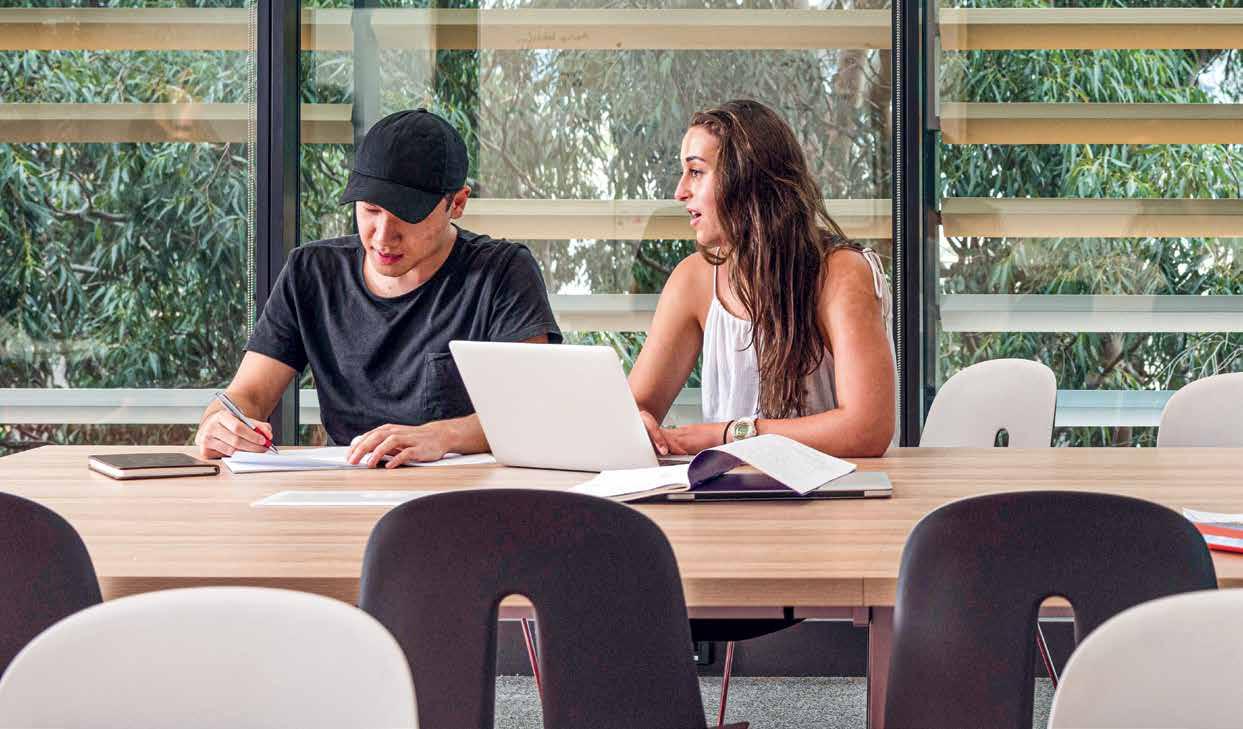
What is honours?
An honours degree can lead to a pathway for research and further learning equipping you with the research skills to apply to study a research degree in the future, such as the Doctor of Philosophy (PhD).
Independent research can be a life-changing opportunity to become a subject matter expert. You’ll have the chance to develop significant insights and make your own meaningful contribution to a field of knowledge.
Honours is a prestigious undergraduate degree, which will provide you with the opportunity to challenge and extend on the knowledge developed in your bachelor’s degree. Honours provides you with a combination of research skills development, independent research and a project leading to a thesis.
In most scenarios, you will need to apply for a one-year honours degree following the completion of a bachelor’s degree.
To be admitted to honours, you will need to meet specific entry requirements. Most honours courses require a minimum Weighted Average Mark (WAM) of 65, but some require higher marks. Additional entry requirements may also apply.
How does honours work?
Generally, an honours degree consists of:
an independent research project, mentored by an academic supervisor additional units in research design or technical training some honours and coursework units.
Under the guidance of an academic supervisor, you’ll select a thesis topic, create a reading list, and identify your method of research.
During your honours degree, you’ll be mentored by scholars in your discipline area as you write your thesis and document your research journey from proposal to submission.
Types of honours
The most common ways to complete an honours degree include:
a one-year appended honours degree after completing your bachelor’s degree completing an embedded honours pathway
How to apply
1. Have a strong academic record with a minimum WAM of 65 percent or higher depending on the discipline
2. Prepare a research topic proposal
3. Find a supervisor
4. Submit your the application
Visit our website to learn more about honour at Sydney. - sydney.edu.au/honours
B Architecture and Environments
ATAR: 80
IB: 29
Entry: Feb
Duration (full time): 3 years
Assumed knowledge: English Advanced and Mathematics Advanced
B Design (Interaction Design)
Programs, majors and minors
Core areas of study include architectural and environmental design, architectural history and theory, architectural sciences and technologies, property and sustainability, urban design and planning. The University of Sydney School of Architecture, Design and Planning electives may include acoustics, lighting, structures and design computing.
B Design and B Advanced Studies (Interaction Design)
ATAR: 75
IB: 26
Entry: Feb/Aug
Duration (full time): 3 years (single)/ 4 years (combined)
Dalyell by invitation
Assumed knowledge: Mathematics Advanced
B Design in Architecture
ATAR: 90
IB: 34
Entry: Feb
Duration (full time): 3 years
Assumed knowledge: English Advanced and Mathematics Advanced
Programs, majors and minors
Core areas of study include app design, creative technology, design thinking, graphic design, information architecture, physical computing, sound design, user experience (UX) and user-centred design. The four design studios focus on UX design, interaction design, information visualisation, and interactive product design. Related units may be taken from Arts and Social Sciences, Business, Engineering, Computer Science, Music and Visual Arts. In the combined B Design and B Advanced Studies (Interaction Design), you will also take a major from the shared pool. In the final year of your combined degree, you will undertake advanced coursework and a substantial project.
Programs, majors and minors
Core areas of study include architectural design, architectural history and theory, architectural technologies, architecture workshops, environment and sustainability, professional practice and architectural communications. You can take electives from the University of Sydney School of Architecture, Design and Planning, as well as from other faculties and schools.
B Design in Architecture (Honours) and M Architecture
ATAR: 92
IB: 35
Entry: Feb
Duration (full time): 5 years
Assumed knowledge: English Advanced and Mathematics Advanced
Programs, majors and minors
Core areas of study in this double degree include architectural design, history and theory, technologies, architecture workshops, environment and sustainability, professional practice and architectural communications. You can take electives from the University of Sydney School of Architecture, Design and Planning, as well as from other faculties and schools.
Use the QR code to see architecture, design and planning course details
Career possibilities

Architect (with additional study), roles in property, real estate and construction, project manager, urban designer, urban planner
Career possibilities
Interaction designer, UX designer, creative director, business developer, marketing consultant, communications adviser, project manager, design manager, web and multimedia designer, multimedia strategist, creative technologist
Career possibilities
Architect (with additional study), architectural technologist, interior and spatial designer, urban designer, project manager, property developer
Combine this degree with B Engineering Honours (Civil Engineering)
Career possibilities
Architect, design manager, academic
B Arts
B Arts and B Advanced Studies
ATAR: 75
IB: 26
Entry: Feb/Aug
Duration (full time): 3 years (single)/ 4 years (combined)
Dalyell by invitation
Assumed knowledge: Depends on majors and units of study chosen
Programs, majors and minors
In the B Arts, you will choose one major from the options below and a minor or second major from these options or from the shared pool.
In the B Arts and B Advanced Studies, you will choose one major from the list below, and a second major from the shared pool or from the following: American Studies; Ancient Greek; Ancient History; Anthropology; Arabic Language and Cultures; Archaeology; Art History; Asian Studies; Chinese Studies; Criminology; Cultural
Studies; Digital Cultures; Diversity Studies (minor only); Econometrics; Economics; Economic Policy; Education Studies; English; Environmental, Agricultural and Resource Economics; European Studies; Film Studies; Financial Economics; French and Francophone Studies; Gender Studies; Germanic Studies; Hebrew (Modern); History; Indigenous Studies; Indonesian Studies; International Comparative Literary Studies; International Relations; Italian Studies; Japanese Studies; Jewish Civilisation, Thought and Culture; Korean Studies; Latin; Linguistics; Modern Greek Studies; Philosophy; Political Economy; Politics; Sanskrit (minor only); Socio-legal Studies; Sociology; Spanish and Latin American Studies; Studies in Religion (minor only); Theatre and Performance Studies; Visual Arts. If you choose the combined degree, you will undertake advanced coursework and a substantial project in your final year.
B Arts and B Advanced Studies (Dalyell Scholars)
ATAR: 98
IB: 41
Entry: Feb/Aug
Duration (full time): 4 years
Dalyell by application
Assumed knowledge: Depends on majors and units of study chosen
Programs, majors and minors
Refer to the combined B Arts and B Advanced Studies for degree requirements. As a Dalyell Scholar, you will undertake 12 credit points of distinctive Dalyell units complemented by a suite of additional enrichment opportunities including mentoring, professional skill development, co-curricular activities, and the option of a global mobility experience.
B Arts (Dual Degree: Sciences Po, France)**
ATAR: 80 + other admission criteria
IB: 29 + other admission criteria
Entry: Aug (in France)
Duration (full time): 2 + 2 years
Assumed knowledge: Depends on majors and units of study chosen
Programs, majors and minors
This dual degree enables you to work towards both a B Arts degree at Sciences Po in France for the first two years, and a B Arts degree at the University of Sydney for the remaining two years. As part of your B Arts at the University of Sydney, you’ll have access to the shared pool of majors and minors. Refer to the B Arts for University of Sydney-based majors. For
B International Studies
ATAR: 85
IB: 31
Entry: Feb/Aug
Duration (full time): 3 years
Dalyell by invitation
Assumed knowledge: Depends on majors and units of study chosen
information on studies in France, including units of study, refer to the Sciences Po website: www.sciencespo.fr/en
Career possibilities
Anthropologist, archaeologist, business administrator or manager, economist, editor or publisher, foreign affairs and trade officer, government policy officer, historian, language specialist, journalist, museum or gallery curator, public relations manager, researcher, sociologist
Additional admission criteria
Admission to the Sciences Po dual degrees is highly competitive and determined jointly by the University of Sydney and Sciences Po.
Use the QR code to see arts and social sciences course details

Career possibilities
Anthropologist, archaeologist, archivist, art historian, business administrator or manager, historian, heritage specialist, foreign affairs and trade officer, government policy officer, information specialist, journalist, museum or gallery curator, language specialist, media and communications officer, editor or publisher, researcher, sociologist. This degree equips you with the breadth and depth of knowledge and the critical and analytical skills to pursue an extensive range of established and emerging careers. It prepares you for the jobs of the future.
Combine B Arts with B Commerce, B Economics, B Engineering Honours, B Laws, B Science, B Social Work, D Medicine, M Nursing
Programs, majors and minors
Core areas of study include international institutions and politics, the transnational public sphere, the historical development of global relations and trans-cultural communication. You will take an International Studies major and complete a second major or minor. If your second major or minor is not a language major or minor, you will take selective language units.
Career possibilities
Anthropologist, archaeologist, business administrator or manager, economist, editor or publisher, foreign affairs and trade officer, government policy officer, historian, language specialist, journalist, museum or gallery curator, public relations manager. This degree equips you with the breadth and depth of knowledge and the critical and analytical skills to pursue an extensive range of established and emerging careers. It prepares you for the jobs of the future.
Applicants need to be recent school leavers – transfer applicants are not eligible to apply. In addition to meeting the academic requirements of an accepted secondary education (Year 12) qualification, you need to submit an online application directly to the University, including a personal statement, resume and school reports or transcripts from the past three years, as well as attend an online interview. For more information about admission criteria, tuition fees and the application process, visit the relevant course page at: sydney.edu.au/courses
Career possibilities
Community development program manager, diplomat, embassy officer, foreign aid worker, foreign correspondent, human rights advocate, international business consultant, policy advisor, trade negotiator
B Languages
ATAR: 85
IB: 31
Entry: Feb
Duration (full time): 3 years
Dalyell by invitation
Assumed knowledge: Depends on majors and units of study chosen
B Media and Communications
ATAR: 90
IB: 34
Entry: Feb
Duration (full time): 3 years
Dalyell by invitation
Assumed knowledge: Depends on majors and units of study chosen
B Politics, Philosophy, and Economics
ATAR: 86
IB: 32
Entry: Feb
Duration (full time): 3 years
Dalyell by invitation
Assumed knowledge: Depends on majors and units of study chosen
Programs, majors and minors
Core areas of study include analysing crosslingual and cross-cultural issues, and ethics and theories of translation. You will complete a modern language major, attain foundational knowledge in translation theory, and gain realworld experience. You will engage in the study of different cultures and have the opportunity to undertake exchange semesters and short courses with our international partners.
Programs, majors and minors
Core areas of study include media production, strategic communication, the structure of the media and communications industries, the media’s role in culture and politics, and contemporary legal and ethical issues in the field. You will take a Media Studies major and will also have access to the shared pool of majors and minors.
Programs, majors and minors
The B Politics, Philosophy, and Economics incorporates the four disciplines of Politics, Philosophy, Economics, and Political Economy. You will complete core units exploring the interrelationships between the four disciplines. You will complete a major in either: Politics, Philosophy, Economics, or Political Economy. You will also complete a minor in either: Politics, Philosophy, Economics, or Political Economy.
Career possibilities
Translator, anthropologist, archaeologist, archivist, art historian, business administrator or manager, diplomat, editor or publisher, foreign affairs and trade officer, heritage specialist, historian, information specialist, journalist, language specialist, media and communications officer, museum or gallery curator, public policy officer, public relations officer, researcher, sociologist
Career possibilities
Corporate communications, journalist or reporter (print, online, radio, television), editor, market or media researcher, producer or programmer (radio, TV, podcasts), digital producer, media advisor, content creator, web developer, social media manager, post-production, marketing or public relations consultant
Career possibilities
Policy analyst, business manager, economist, diplomat, public servant, and roles in politics, international relations, lobbying, banking and finance
B Visual Arts
B Visual Arts and B Advanced Studies
ATAR: 70 + portfolio
IB: 24 + portfolio
Entry: Feb
Duration (full time): 3 years (single)/4 years (combined)
Programs, majors and minors
You will study across many areas in contemporary art, including ceramics, glass, jewellery, painting, photography, print media, screen arts and sculpture. If you choose the combined degree, you will also take a major from a range of majors offered across the University. In the final year of your combined degree, you will undertake advanced coursework and a substantial project.
Career possibilities
Artist, arts writer, craftsperson, curator, digital artist, art educator (with further tertiary qualifications), exhibition designer, filmmaker, illustrator, painter, product designer, sound artist, web and multimedia designer
Additional admission criteria
You will also be assessed based on a portfolio of artwork. You are required to submit the portfolio by the relevant deadline. When submitting the portfolio online, you will need to include a short statement describing one of the more developed projects in your portfolio. sydney.edu.au/arts/creative-arts-portfolio
B Commerce
B Commerce and B Advanced Studies
ATAR: 95
IB: 37
Entry: Feb/Aug
Duration (full time): 3 years (single)/ 4 years (combined)
Dalyell by invitation
Assumed knowledge: Mathematics Standard or higher (depending on majors and units of study chosen)
Programs, majors and minors
You will choose one major from the options below and a second major (mandatory for the combined B Commerce and B Advanced Studies degree) or a minor either from the shared pool or from these options: Accounting; Banking (major only); Business Analytics; Business Information Systems; Business Law; Finance (major only); Industrial Relations and Human Resource Management; Innovation and Entrepreneurship; International Business; Management and Leadership; Marketing; Professional Accounting (program). You will also complete Open Learning Environment units, and any additional electives from the Business School or from the shared pool to make up your credit point total. If you choose
B Commerce and B Advanced Studies (Dalyell Scholars)
ATAR: 98
IB: 41
Entry: Feb/Aug
Duration (full time): 4 years
Dalyell by application
Assumed knowledge: Mathematics Standard or higher (depending on majors and units of study chosen)
Commerce and B Arts
ATAR: 95
IB: 37
Entry: Feb/Aug
Duration (full time): 4 years
Dalyell by invitation
Assumed knowledge:
For Commerce: Mathematics Standard or higher (depending on majors and units of study chosen); other assumed knowledge depends on majors and units of study chosen. For Arts: depends on majors and units of study chosen.
ATAR: 95
IB: 37
Entry: Feb/Aug
Duration (full time): 4 years
Dalyell by invitation
Assumed knowledge: For Commerce: Mathematics Standard or higher (depending on majors and units of study chosen); other assumed knowledge depends on majors and units of study chosen. For Science: Mathematics Advanced; other assumed knowledge depends on majors and units of study chosen.

the combined degree, you will undertake advanced coursework and a substantial project in your final year.
Career possibilities
Accountant, business analyst, entrepreneur, enterprise architect, financial dealer or broker, human resources specialist, international business consultant, investment banker, management consultant, marketing executive, policy adviser, project manager
Combine B Commerce with B Advanced Computing, B Arts, B Engineering Honours, B Laws, B Science
Programs, majors and minors
Refer to the combined B Commerce and B Advanced Studies. As a Dalyell Scholar, you will undertake 12 credit points of distinctive Dalyell units complemented by a suite of additional enrichment opportunities, including mentoring, professional skill development, co-curricular activities, and the option of a global mobility experience.
Programs, majors and minors
This combined degree requires the completion of one major from the B Commerce, one major from the B Arts, and one minor from the shared pool. You will also have access to the Open Learning Environment. The Professional Accounting program is not available in this combined degree.
Career possibilities
Accountant, business analyst, entrepreneur, enterprise architect, financial dealer or broker, human resources specialist, international business consultant, investment banker, management consultant, marketing executive, policy adviser, project manager
Programs, majors and minors
This combined degree requires the completion of one major from the B Commerce, one major from the B Science, and one minor from the shared pool. You will also have access to the Open Learning Environment. The Professional Accounting program is not available in this combined degree.
Career possibilities
Refer to the single degree entries for the B Commerce and B Arts
Career possibilities
Refer to the single degree entries for the B Commerce and B Science
B Economics
B Economics and B Advanced Studies
ATAR: 85
IB: 31
Entry: Feb/Aug
Duration (full time): 3 years (single)/ 4 years (combined)
Dalyell by invitation
Assumed knowledge: Mathematics Advanced
Programs, majors and minors
You will complete a program in Economics which includes a major from the list below, and a second major (mandatory for B Economics and B Advanced Studies) or a minor from the shared pool or from the following: Economics; Econometrics; Financial Economics; Environmental, Agricultural and Resource Economics. You’ll also complete units from the Open Learning Environment. If you choose the combined degree, you will undertake advanced coursework and a substantial project in your final year.
ATAR: 85 + other admission criteria
IB: 31 + other admission criteria
Entry: Aug (in France)
Duration (full time): 2 + 2 years
Dalyell by application
Assumed knowledge: Mathematics Advanced
B Economics and B Arts
ATAR: 85
IB: 31
Entry: Feb/Aug
Duration (full time): 4 years
Dalyell by invitation
Assumed knowledge: For Economics: Mathematics Advanced. For Arts: depends on majors and units of study chosen.
Programs, majors and minors
This dual degree enables you to work towards both a B Economics degree at Sciences Po in France for the first two years, and a B Economics degree at the University of Sydney for the remaining two years. Refer to the B Economics for University of Sydney-based majors. For information on studies in France, including units of study, refer to the Sciences Po website: www.sciencespo.fr/en
Use the QR code to see economics course details
Career possibilities

Accountant, banker, business consultant, business information systems analyst, economic analyst, economist, financial manager, government or NGO worker, human resource manager, industrial relations specialist, researcher, social policy adviser. This degree will equip you with the capabilities to develop economic and social policy and to work in fields such as business, banking, financial markets and consulting in both the private and public sectors.
Combine B Economics with B Arts, B Laws
Programs, majors and minors
This combined degree requires the completion of a program in Economics or Advanced Economics, including an embedded major; one major from the B Arts (excluding those available through the Economics programs); and one minor from the shared pool. You’ll also have access to the Open Learning Environment.
Career possibilities
Accountant, banker, business consultant, business information systems analyst, economic analyst, economist, financial manager, human resource manager, industrial relations specialist, researcher, social policy adviser
Additional admission criteria
See B Arts (Dual Degree: Sciences Po, France) on page 39.
Admission to the Sciences Po dual degree is highly competitive and determined jointly by the University of Sydney and Sciences Po. For more information, visit sydney.edu.au/courses
Career possibilities
Refer to the single degree entries for the B Economics and B Arts
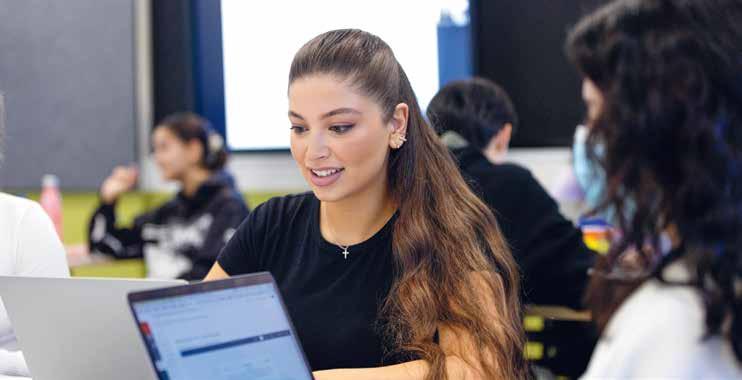
B Education (Early Childhood)
ATAR: 75
IB: 26
Entry: Feb
Duration (full time): 4 years
Programs, majors and minors
You’ll study specialist units in early childhood education, development, and professional practice, complemented by generalist units in an Education Studies major, offered by the Faculty of Arts and Social Sciences.
B Education (Health and Physical Education)^
ATAR: 80 + statement
IB: 29 + statement
Entry: Feb
Duration (full time): 4 years
Prerequisites: NSW Education Standards Authority (NESA) requirement of Band 5 in three HSC subjects, one of which must be English (Standard or Advanced or ESL/EALD), or equivalent
B Education (Primary)^
ATAR: 85 + statement
IB: 31 + statement
Entry: Feb
Duration (full time): 4 years
Prerequisites: NSW Education Standards Authority (NESA) requirement of Band 5 in three HSC subjects, one of which must be English (Standard or Advanced or ESL/EALD), or equivalent; and Band 4 in Mathematics Standard (or equivalent) or higher.
Assumed knowledge:
For the Mathematics specialisation: Mathematics Standard.
For the Science specialisation: Any HSC Science subject (or equivalent).
Programs, majors and minors
You’ll take core units of study in education and professional studies along with discipline study in Health and Physical Education. You’ll also need to select a second teaching area from: Aboriginal Studies, Biology, Chemistry, Drama, English, History (Ancient and Modern), Languages, and Mathematics. Professional experience placements (totalling 80 days) begin in the first year of the course and progressively increase until the final placement, when you will be competent to teach under minimal supervision.
Use the QR code to see education and social work course details
Career possibilities

Teacher in a range of early learning centres and preschools (birth–5 years). Qualified early childhood teachers are in high demand and early childhood education is a high priority for both federal and state governments in Australia.
Professional recognition
Australian Children’s Education and Care Quality Authority (ACECQA)
Career possibilities
Teacher in secondary schools, or careers in training or human resource settings, community health, coaching, recreation or sport
Professional recognition
NSW Education Standards Authority (NESA)
Programs, majors and minors
Throughout this degree you’ll take generalist units of study in education and professional studies, along with an interdisciplinary unit offered by the Faculty of Arts and Social Sciences. The program provides an Australian Institute for Teaching and School Leadership (AITSL)–recognised Primary Teaching Specialisation in English and the option for advanced students to complete a Primary Teaching Specialisation in Mathematics, Science and Technology, or Primary Languages. This degree covers all the key learning areas (primary subject areas), with special attention to the mandatory areas of Aboriginal education, Teaching English to Speakers of Other Languages (TESOL) and
special education. Professional experience placements (totalling 80 days) begin in the second year of the course and progressively increase until the final placement, when you will be competent to teach under minimal supervision.
Career possibilities
Teacher in primary schools, curriculum consultant, educational administrator, educational researcher, government policy adviser
Professional recognition NSW Education Standards Authority (NESA)
B Education (Secondary)
B Education and B Advanced Studies (Secondary)
ATAR: 80 + statement
IB: 29 + statement
Entry: Feb
Duration (full time): 4 years (single)/ 5 years (combined)
Assumed knowledge: For Mathematics Major, minor or teaching area: Mathematics Advanced or higher (depending on units of study chosen). For Physics major, minor or teaching area: Physics. For Biology major, minor or teaching area: Biology.
Programs, majors and minors
In this degree, you’ll take core units of study in education, along with intensive study and professional experience in two teaching areas and units from the Open Learning Environment. Your two teaching areas can be selected from either Arts or Science, with areas including Aboriginal Studies, Biology, Business Studies, Chemistry, Drama, Economics, English, Geography, History, Judaic Studies, Languages, Linguistics, Mathematics, Physics, and Teaching English to Speakers of Other Languages (TESOL). You will need to complete at least a minor in your first teaching area. Professional experience placements (totalling 80 days) begin in the third year of the course and progressively increase until the final placement, when you will be competent to teach under minimal supervision.
The B Education and B Advanced Studies (Secondary) also offers you the opportunity to undertake advanced coursework or a third teaching area in either TESOL or Aboriginal Studies.
Career possibilities
Teacher in secondary schools in areas including Aboriginal Studies, Biology, Chemistry, Drama, English, History,Languages, Mathematics, Physics, and TESOL; curriculum consultant, educational administrator, educational researcher, government policy adviser, human resource manager
Professional recognition
NSW Education Standards Authority (NESA)
B Social Work
ATAR: 75
IB: 26
Entry: Feb
Duration (full time): 4 years
Assumed knowledge: Depends on majors and units of study chosen
Programs, majors and minors
This degree includes studies in mental health, social justice practice, work with children and families, social policy, human service systems, domestic violence, disability, disasters and climate change, impacts of poverty, First Nations studies and social research. You will learn to work alongside diverse groups and communities in Australia and overseas addressing critical social issues.
B Arts and B Social Work
ATAR: 75
IB: 26
Entry: Feb
Duration (full time): 5 years
Assumed knowledge: Depends on majors and units of study chosen
Dalyell by invitation
Programs, majors and minors
In this combined degree, you will choose a major from the B Arts, and a second major or a minor either from those options or from the shared pool. You must complete a major or a minor in Sociology. You will also complete the Social Work professional program alongside your B Arts for four years. Social work includes mental health, social justice practice, work with children and families, social policy, human service systems, domestic violence and research.
Career possibilities
Social worker in health, community services, ageing, disability, mental health, community development, social policy, disasters and climate change, leadership and work with non-government organisations in Australia and overseas
Professional recognition
Australian Association of Social Workers (ASSW)
Career possibilities
Refer to single degree entries for the B Social Work and B Arts.
Professional recognition
Australian Association of Social Workers (ASSW)
Additional admission criteria
Applicants for all Bachelor of Education degrees (except Early Childhood) are required to submit a brief personal statement as part of their application for admission. This requirement also applies to the Ba chelor of Music (Music Education).
For more information, visit: sydney.edu.au/teachereducation-personalstatement
^ NESA prerequisites for teaching degrees
The NSW Education Standards Authority (NESA) requires students entering the following teaching degrees to achieve a minimum of three Band 5s in their NSW HSC, one of which needs to be English (Standard or Advanced or English as a Second Language (ESL) or English as an Additional Language or Dialect (EALD) or equivalent):
- Bachelor of Education (Health and Physical Education)
- Bachelor of Education (Primary)
- Bachelor of Music (Music Education).
Additionally, the Bachelor of Education (Primary) requires students to achieve Band 4 in Mathematics Standard (or equivalent) or higher. For equivalent requirements for other Australian Year 12 quali fi cations, refer to the UAC website: uac.edu.au/ future-applicants/ admission-criteria/ year-12-qualifications
For other non-Australian secondary education (high school) qualifications, the University will assess whether you have achieved an equivalent standard through your high school studies. If you need to meet English proficiency requirements through a test such as IELTS, you will complete those requirements separately.
ATAR: 90
IB: 34
Entry: Feb/Aug
Duration (full time): 4 years
Dalyell by invitation
Mathematics prerequisite may apply‡
Assumed knowledge: Mathematics Extension 1
ATAR: 95
IB: 37
Entry: Feb/Aug
Duration (full time): 5 years
Dalyell by invitation
Mathematics prerequisite may apply‡
Assumed knowledge: Mathematics Extension 1. For B Commerce: Depends on majors and units of study chosen
ATAR: 90
IB: 34
Entry: Feb/Aug
Duration (full time): 5 years
Dalyell by invitation
Mathematics prerequisite may apply‡
Assumed knowledge: Mathematics Extension 1. For B Science: Depends on majors and units of study chosen
Majors
You’ll choose one computing major from the list below, with the option of also choosing either a second major or a minor from this list or from the shared pool: Computer Science, Computational Data Science, Cybersecurity, Software Development. You’ll also have access to the Open Learning Environment to broaden your skills and explore other areas of study.
Career possibilities
Computer programmer, computer system administrator, consultant, entrepreneur,
Majors
Refer to the B Advanced Computing and the B Commerce. In this combined degree, you’ll choose one major from each degree. You’ll also have access to the Open Learning Environment to broaden your skills and explore other areas of study.
Career possibilities
Accountant, business systems analyst, computer programmer, computer system
Majors
Refer to the B Advanced Computing and the B Science. In this combined degree, you’ll choose one major from each degree. You’ll also have access to the Open Learning Environment to broaden your skills and explore other areas of study.
Career possibilities Computer programmer, consultant,
B Advanced Computing and B Science (Health)
ATAR: 90
IB: 34
Entry: Feb/Aug
Duration (full time): 5 years
Dalyell by invitation
Mathematics prerequisite may apply‡
Assumed knowledge: Mathematics Extension 1, Biology
Programs and majors
Refer to the B Advanced Computing and the B Science (Health). You’ll complete a major from the options available in the B Advanced Computing and a stream in Health which requires a Health major. You’ll also have access to the Open Learning Environment to broaden your skills and explore other areas of study.
Career possibilities
Roles in computer programming, consultancy, corporate health, disability
B Advanced Computing and B Science (Medical Science)
ATAR: 90
IB: 34
Entry: Feb/Aug
Duration (full time): 5 years
Dalyell by invitation
Mathematics prerequisite may apply‡
Assumed knowledge: Mathematics Extension 1, Chemistry and Biology
Majors
Refer to the B Advanced Computing and the B Science (Medical Science). In this combined degree, you’ll choose one major from the options available in the B Advanced Computing and complete the stream in Medical Science, which requires a program in Medical Science, including a Medical Science major.
Career possibilities
Computer programmer, consultant, doctor (after further study in medicine), geneticist,
Use the QR code to see engineering and computer science course details

information services manager, systems analyst, software developer, user experience designer, web developer and manager
Professional recognition
This degree is accredited by the Australian Computer Society. Our graduates are recognised internationally through the Seoul Accord.
Combine this degree with B Commerce, B Science, B Science (Health), B Science (Medical Science)
administrator, economist, financial specialist, information services manager, management consultant, project manager, software developer, web developer and manager
Professional recognition
This combined degree is accredited by the Australian Computer Society (ACS). Our graduates are recognised internationally through the Seoul Accord.
geophysicist, information services manager, mathematician, microbiologist, software developer, systems analyst, web developer and manager
Professional recognition
This combined degree is accredited by the Australian Computer Society. Our graduates are recognised internationally through the Seoul Accord.
and ageing management and research, global health research and policy analysis, hospital management, information services management, mental health and safety, software development, web development and management
Professional recognition
This combined degree is accredited by the Australian Computer Society. Our graduates are recognised internationally through the Seoul Accord.
infectious diseases researcher, information services manager, microbiologist, pathologist, software developer, systems analyst, web developer and manager
Professional recognition
This combined degree is accredited by the Australian Computer Society. Our graduates are recognised internationally through the Seoul Accord.
B Engineering Honours (Aeronautical Engineering)
ATAR: 85
IB: 31
Entry: Feb/Aug
Duration (full time): 4 years
Dalyell by invitation
Mathematics prerequisite may apply‡
Assumed knowledge: Mathematics Extension 1
Recommended studies: Physics
Specialisations
Specialisations are optional. You may choose an Aeronautical Engineering specialisation that focuses on Aerospace Systems or Aerospace Research. You may also broaden your studies by choosing a specialisation in Engineering Data Science, Innovation and Entrepreneurship, Humanitarian Engineering or Computer Systems. If you are a high-achieving student with an ATAR of 99+ (or equivalent), you may apply for Space Engineering.
Career possibilities
Design research and certification in the airline/ aerospace industry, general engineering roles, and manufacturing and assembly
B Engineering Honours (Biomedical Engineering)
ATAR: 85
IB: 31
Entry: Feb/Aug
Duration (full time): 4 years
Dalyell by invitation
Mathematics prerequisite may apply‡
Assumed knowledge: Mathematics Extension 1
and Chemistry
Recommended studies: Biology and Physics
Specialisations
Specialisations are optional. You may choose a Biomedical Engineering specialisation in Nanoscale Biotechnology, Biocomputation, Bionics and Bioelectronics, or Biomedical Modelling and Design. You may also broaden your studies by choosing a specialisation in Engineering, Data Science, Innovation and Entrepreneurship, Humanitarian Engineering or Computer Systems.
Career possibilities
Biomedical engineers design and manufacture implantable and external medical devices. Career possibilities include instrumentation engineer, device design engineer, medical device assessor, quality control and validation
B Engineering Honours (Chemical and Biomolecular Engineering)
ATAR: 85
IB: 31
Entry: Feb/Aug
Duration (full time): 4 years
Dalyell by invitation
Mathematics prerequisite may apply‡
Assumed knowledge: Mathematics Extension 1 and Chemistry
B Engineering Honours (Civil Engineering)
ATAR: 85
IB: 31
Entry: Feb/Aug
Duration (full time): 4 years
Dalyell by invitation
Mathematics prerequisite may apply‡
Assumed knowledge: Mathematics Extension 1
Recommended studies: Physics
Specialisations
Specialisations are optional. You may choose a Chemical and Biomolecular Engineering specialisation in Chemical Engineering for Energy, Chemical Engineering for the Environment, Biochemical and Food Technologies, or Chemical and Digital Technologies. You may also broaden your studies by choosing a specialisation in Engineering Data Science.
Career possibilities
All sectors of the process industries, from primary resource industries through to fine chemicals and sophisticated manufacturing
Specialisations
Specialisations are optional. You may choose a Civil Engineering specialisation in Structures, Environmental Fluids, Integrated Building Engineering, Geotechnical Engineering, Humanitarian Engineering, Project Management, or Transport. You may also broaden your studies by choosing a specialisation in Engineering Data Science, Innovation and Entrepreneurship, or Computer Systems.
Career possibilities
Aid worker; roles with airport and harbour authorities, banks, construction and mining companies; roles in project management and public works; engineering and infrastructure
Professional recognition
This engineering degree is accredited by Engineers Australia. Our graduates are recognised internationally through the Washington Accord of the International Engineering Alliance.
Combine this degree with B Arts, B Commerce, B Laws, B Project Management, B Science
engineer, patent examiner, clinical support specialist or field service engineer, for medtech companies, hospitals, medical research centres and government institutions.
Professional recognition
This engineering degree is accredited by Engineers Australia. Our graduates are recognised internationally through the Washington Accord of the International Engineering Alliance.
Combine this degree with B Arts, B Commerce, B Laws, B Project Management, B Science, B Science (Health), B Science (Medical Science)
Professional recognition
This degree is accredited by Engineers Australia and the Institution of Chemical Engineers. Our graduates are recognised internationally through the Washington Accord of the International Engineering Alliance.
Combine this degree with B Arts, B Commerce, B Laws, B Project Management, B Science
consultant; humanitarian engineer; town planner; sustainability specialist
Professional recognition
This degree is accredited by Engineers Australia. Our graduates are recognised internationally through the Washington Accord of the International Engineering Alliance.
Combine this degree with B Arts, B Commerce, B Design in Architecture, B Laws, B Project Management, B Science
B Engineering Honours (Dalyell Scholars)
ATAR: 98
IB: 41
Entry: Feb/Aug
Duration (full time): 4 years
Dalyell by application
Mathematics prerequisite: Yes
Assumed knowledge: Mathematics Extension 1 and either Physics or Chemistry, depending on the Engineering stream chosen (refer to the relevant stream)
Specialisations
As a Dalyell Scholar, in addition to the requirements of your chosen B Engineering Honours stream, you will undertake 12 credit points of distinctive Dalyell units complemented by a suite of additional enrichment opportunities, including mentoring, professional skill development and the option of a global mobility experience.
Career possibilities
Along with career options from your chosen Engineering stream, the valuable insights you gain through your studies as a Dalyell Scholar will set you apart from your peers and open up a range of opportunities across the public and
B Engineering Honours (Electrical Engineering)
ATAR: 85
IB: 31
Entry: Feb/Aug
Duration (full time): 4 years
Dalyell by invitation
Mathematics prerequisite may apply‡
Assumed knowledge: Mathematics Extension 1 and Physics
Specialisations
Specialisations are optional. You may choose an Electrical Engineering specialisation in Computer Engineering, Internet of Things, Intelligent Information Engineering, Power Engineering or Telecommunications Engineering. You may also broaden your studies by choosing a specialisation in Engineering Data Science, Innovation and Entrepreneurship, or Humanitarian Engineering.
Career possibilities
Grid maintenance and stability contractor, industry power supply engineer, power
B Engineering Honours (Environmental Engineering)
ATAR: 85
IB: 31
Entry: Feb/Aug
Duration (full time): 4 years
Dalyell by invitation
Mathematics prerequisite may apply‡
Assumed knowledge: Mathematics Extension 1 and Chemistry
Specialisations
Specialisations are optional. You may choose an Environmental Engineering specialisation in Chemical Engineering for the Environment, Energy and the Environment, or Geotechnical Engineering. You may also broaden your studies by choosing a specialisation in Engineering Data Science, Innovation and Entrepreneurship, Humanitarian Engineering, or Computer Systems.
Career possibilities
Renewable energy engineer, focusing on clean energy production; water resources engineer, designing systems to manage and protect water resources; waste management specialist, working to minimise the environmental impacts of waste; environmental consultant,
ATAR: 85
IB: 31
Entry: Feb
Duration (full time): 4 years
Dalyell by invitation
Mathematics prerequisite may apply‡
Assumed knowledge: Mathematics Extension 1, Physics and/or Chemistry, depending on the Engineering stream chosen (refer to the relevant stream)
Specialisations
After commencing your studies in the Flexible First Year stream, you will have the opportunity to pursue an area of specialisation once you have transferred to your chosen stream. Refer to the individual Engineering streams for areas in which you may be able to specialise.
Career possibilities
Refer to individual Engineering streams for examples.
private sectors, including business, banking, consulting, entrepreneurship and project management.
Professional recognition
The Dalyell stream is completed within an Engineering stream accredited by Engineers Australia. Our graduates are also recognised internationally through the Washington Accord of the International Engineering Alliance.
Combine this degree with See B Engineering Honours combined degree options with B Arts, B Commerce, B Science which include the Dalyell stream by invitation
transmission and generating systems engineering, roles with specialised consulting companies and telecommunications.
Professional recognition
This engineering degree is accredited by Engineers Australia. Our graduates are recognised internationally through the Washington Accord of the International Engineering Alliance.
Combine this degree with B Arts, B Commerce, B Laws, B Project Management, B Science
assessing environmental impacts and conducting site assessments; climate change analyst, assisting governments and other organisations to address climate change; sustainability consultant, assessing energy use and sustainability practices; environmental regulator, ensuring compliance with environmental regulations
Professional recognition
The Faculty of Engineering is in the process of applying for provisional accreditation for this course. Check sydney.edu.au/courses for updates.
Combine this degree with B Arts, B Commerce, B Laws, B Project Management, B Science
Professional recognition
Students in the Flexible First Year pathway transfer to an Engineering stream accredited by Engineers Australia. Our graduates are also recognised internationally through the Washington Accord of the International Engineering Alliance.
Combine this degree with B Arts, B Commerce, B Laws, B Project Management, B Science
B Engineering Honours (Mechanical Engineering)
ATAR: 85
IB: 31
Entry: Feb/Aug
Duration (full time): 4 years
Dalyell by invitation
Mathematics prerequisite may apply‡
Assumed knowledge: Mathematics Extension 1
Recommended studies: Physics
Specialisations
Specialisations are optional. You may choose a Mechanical Engineering specialisation in Energy and the Environment, Computational Engineering, Mechanical Design, Thermofluids, Materials Science and Engineering, or Industrial and Product Design Engineering. You may also broaden your studies by choosing a specialisation in Engineering Data Science, Innovation and Entrepreneurship, Humanitarian Engineering or Computer Systems. If you are a high-achieving student with an ATAR of 99+ (or equivalent) you may apply for Space Engineering.
Career possibilities
Roles in automated facilities, automatic control systems, biomedical implant design,
B Engineering Honours (Mechatronic Engineering)
ATAR: 85
IB: 31
Entry: Feb/Aug
Duration (full time): 4 years
Dalyell by invitation
Mathematics prerequisite may apply‡
Assumed knowledge: Mathematics Extension 1
Recommended studies: Physics
B Engineering
ATAR: 85
IB: 31
Entry: Feb/Aug
Specialisations
Specialisations are optional. You may choose a Mechatronic Engineering specialisation in Robotics and Intelligent Systems. You may also broaden your studies by choosing a specialisation in Engineering Data Science, Innovation and Entrepreneurship, Humanitarian Engineering or Computer Systems. If you are a high-achieving student with an ATAR of 99+ (or equivalent) you may apply for Space Engineering.
Career possibilities
Roles in automatic control systems, product
Specialisations
Duration (full time): 4 years
Dalyell by invitation
Mathematics prerequisite may apply‡
Assumed knowledge: Mathematics Extension 1
Recommended studies: Physics
Specialisations are optional. You may choose a Software Engineering specialisation in Computer Engineering, Engineering Data Science, Internet of Things or Intelligent Information Engineering. You may also broaden your studies by choosing a specialisation in Innovation and Entrepreneurship, or Humanitarian Engineering.
Career possibilities
Roles in artificial intelligence, control systems, database management, information technology, internet programming, language compilers, multimedia and telecommunication
ATAR: 97
IB: 39
Entry: Feb/Aug
Duration (full time): 4 years
Dalyell by invitation
Mathematics prerequisite may apply‡
Assumed knowledge: Mathematics Extension 1
Recommended studies: Physics
Programs and majors
Space Engineering is available to students in the Aeronautical, Mechanical and Mechatronic streams - refer to the relevant stream. Space Engineering covers studies in aerospace systems, electronic devices and circuits, orbital mechanics, space vehicle design, and systems engineering.
Career possibilities
Along with career options from your chosen stream, you can apply your specialised knowledge of the space environment to careers in the aerospace, defence, environmental and research sectors.
For assumed knowledge, mathematics prerequisites and other important information, see table notes on pages 68–71.
construction, design of automotive, undersea exploration and space vehicles, environmental pollution control, manufacturing industry, and mineral exploration
Professional recognition
This degree is accredited by Engineers Australia. Our graduates are recognised internationally through the Washington Accord of the International Engineering Alliance.
Combine this degree with B Arts, B Commerce, B Laws, B Project Management, B Science
design and development, robotics and automation for advanced manufacturing, and software design and development for real-time computer systems
Professional recognition
This degree is accredited by Engineers Australia. Our graduates are recognised internationally through the Washington Accord of the International Engineering Alliance.
Combine this degree with B Arts, B Commerce, B Laws, B Project Management, B Science
software systems, real-time software engineering and reliable biomedical systems
Professional recognition
This degree is accredited by Engineers Australia and the Australian Computer Society. Our graduates are recognised internationally through the Washington Accord of the International Engineering Alliance and the Seoul Accord.
Combine this degree with B Arts, B Commerce, B Laws, B Project Management, B Science
Professional recognition
Space Engineering is completed within an Engineering stream accredited by Engineers Australia. Our graduates are also recognised internationally through the Washington Accord of the International Engineering Alliance.
Combine this degree with B Arts, B Commerce, B Laws, B Project Management, B Science
B Engineering Honours and B Arts
ATAR: 85
IB: 31
Entry: Feb/Aug
Duration (full time): 5.5 years
Dalyell by invitation
Mathematics prerequisite may apply‡
Assumed knowledge: Mathematics Extension 1 and either Physics or Chemistry, depending on the Engineering stream chosen (refer to the relevant stream). For B Arts: Depends on majors and units of study chosen.
B Engineering Honours and B Commerce
ATAR: 95
IB: 37
Entry: Feb/Aug
Duration (full time): 5.5 years
Dalyell by invitation
Mathematics prerequisite may apply‡
Assumed knowledge: Mathematics Extension 1 and either Physics or Chemistry, depending on the Engineering stream chosen (refer to the relevant stream). For B Commerce: Depends on majors and units of study chosen.
Specialisations and majors
In this combined degree, in addition to the requirements of the B Engineering Honours stream you select, you will take a major from B Arts.
Career possibilities
Refer to relevant B Engineering Honours stream and B Arts.
Professional recognition
This combined degree is accredited by Engineers Australia. Our graduates are recognised internationally through the Washington Accord of the International Engineering Alliance.
Specialisations and majors
In this combined degree, in addition to the requirements of the B Engineering Honours stream you select, you will take a major from B Commerce.
Career possibilities
Refer to relevant B Engineering Honours stream and B Commerce.
ATAR: 90
IB: 34
Entry: Feb
Duration (full time): 5 years
Mathematics prerequisite may apply‡
Assumed knowledge: Mathematics Extension 1.
For Architecture: English Advanced.
Recommended studies: Physics
Specialisations and majors
Refer to the B Engineering Honours (Civil Engineering) and the B Design in Architecture for requirements.
Career possibilities
Aid worker; roles with airport and harbour authorities; architect (with further study); roles in architectural technology, banking, construction and mining; engineering and infrastructure consultant; humanitarian engineer; roles in interior and spatial
B Engineering Honours and B Project Management
ATAR: 85
IB: 31
Entry: Feb/Aug
Duration (full time): 5 years
Mathematics prerequisite may apply‡
Assumed knowledge: Mathematics Extension 1 and either Physics or Chemistry, depending on the Engineering stream chosen (refer to the relevant stream)
B Engineering Honours and B Science
ATAR: 85
IB: 31
Entry: Feb/Aug
Duration (full time): 5 years
Dalyell by invitation
Mathematics prerequisite may apply‡
Assumed knowledge: Mathematics Extension 1 and either Physics or Chemistry, depending on the Engineering stream (refer to the relevant stream). For B Science: Depends on majors and units of study chosen
Specialisations and majors
In this combined degree, in addition to the requirements of the B Engineering Honours stream you select, you will undertake a selection of core project management units of study.
Career possibilities
Refer to the relevant B Engineering Honours stream and B Project Management.
Professional recognition
This combined degree is accredited by Engineers Australia. Our graduates are recognised internationally through the Washington Accord of the International Engineering Alliance.
Specialisations and majors
In this combined degree, in addition to the requirements of the B Engineering Honours stream you select, you will take a major from B Science.
Career possibilities
Refer to the relevant B Engineering Honours stream and B Science.
design; roles with municipal councils and in project management, property development, public works and urban design; sustainability specialist
Professional recognition
This combined degree is accredited by Engineers Australia. Our graduates are recognised internationally through the Washington Accord of the International Engineering Alliance.
Professional recognition
This combined degree is accredited by Engineers Australia and the Project Management Institute Global Accreditation Centre. Our graduates are recognised internationally through the Washington Accord of the International Engineering Alliance.
Professional recognition
This combined degree is accredited by Engineers Australia. Our graduates are recognised internationally through the Washington Accord of the International Engineering Alliance.
B Engineering Honours (Biomedical Engineering) and B Science (Health)
ATAR: 85
IB: 31
Entry: Feb/Aug
Duration (full time): 5 years
Dalyell by invitation
Mathematics prerequisite may apply‡
Assumed knowledge: Mathematics
Extension 1, Chemistry, Biology
Recommended Studies: Physics
Programs and majors
In this combined degree, in addition to the B Engineering Honours (Biomedical) stream requirements, you will complete a stream in Health which requires a Health major.
Career possibilities
Refer to the single degree entries for the B Engineering Honours (Biomedical Engineering) and the B Science (Health).
B Engineering Honours (Biomedical Engineering) and B Science (Medical Science)
ATAR: 85
IB: 31
Entry: Feb/Aug
Duration (full time): 5 years
Dalyell by invitation
Mathematics prerequisite may apply‡
Assumed knowledge: Mathematics Extension 1, Chemistry, Biology
Recommended Studies: Physics
ATAR: 80
IB: 29
Entry: Feb/Aug
Duration (full time): 3 years
Assumed knowledge: Depends on majors and units of study chosen
Specialisations and majors
In this combined degree, in addition to the requirements of the B Engineering Honours stream you select, you will complete a stream in Medical Science, which requires a program in Medical Science, including a Medical Science major.
Career possibilities
Refer to the single degree entries for the B Engineering Honours (Biomedical Engineering) and the B Science (Medical Science).
Professional recognition
This combined degree is accredited by Engineers Australia. Our graduates are recognised internationally through the Washington Accord of the International Engineering Alliance.
Professional recognition
This combined degree is accredited by Engineers Australia. Our graduates are recognised internationally through the Washington Accord of the International Engineering Alliance.
Programs and majors
Choose one major either from the Project Management options in Construction or Built Environment, or from the shared pool of majors. Built Environment major units are offered by the University of Sydney School of Architecture, Design and Planning. You can also take a Project Management minor in People and Change, or Project Controls.
Career possibilities
Professional and management roles in property development, construction, mining, events, IT, banking and finance, state or federal government, and consultancy roles in the engineering, water health or energy sectors
Professional recognition
This degree is accredited by the Project Management Institute Global Accreditation Centre for Project Management Education programs.
Combine this degree with B Engineering Honours
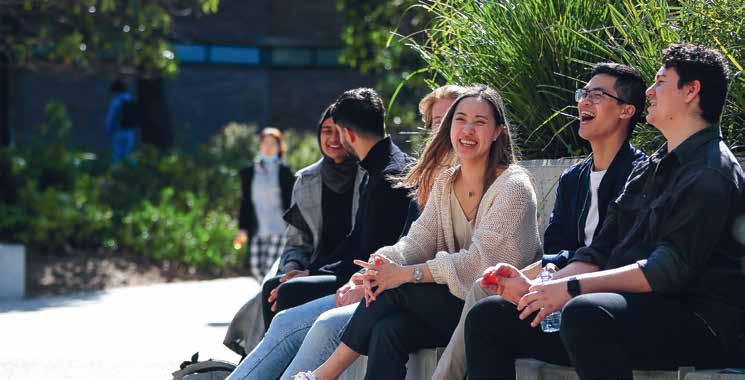
B Arts and B Laws
ATAR: 95.5
IB: 38
Entry: Feb/Aug
Duration (full time): 5 years
Dalyell by invitation
Assumed knowledge: For B Arts: Depends on majors and units of study chosen.
For B Laws: English Advanced.
B Commerce and B Laws
ATAR: 95.5
IB: 38
Entry: Feb/Aug
Duration (full time): 5 years
Dalyell by invitation
Assumed knowledge: For B Commerce: Mathematics Standard or higher (depends on majors and units of study chosen); other assumed knowledge depends on majors and units of study chosen.
For B Laws: English Advanced.
B Economics and B Laws
ATAR: 95.5
IB: 38
Entry: Feb/Aug
Duration (full time): 5 years
Dalyell by invitation
Assumed knowledge: For B Economics: Mathematics Advanced. For B Laws: English Advanced.
B Engineering Honours and B Laws
ATAR: 95.5
IB: 38
Entry: Feb/Aug
Duration (full time): 6.5 years
Mathematics prerequisite may apply‡
Assumed knowledge: For B Engineering Honours: Mathematics Extension 1 and either Physics or Chemistry, depending on the Engineering stream chosen (refer to the relevant stream).
For B Laws: English Advanced.
B Science and B Laws
ATAR: 95.5
IB: 38
Entry: Feb/Aug
Duration (full time): 5 years
Dalyell by invitation
Advanced stream available
Assumed knowledge: For B Science: Mathematics Advanced; other assumed knowledge depends on majors and units of study chosen.
For B Laws: English Advanced.
Programs, majors and minors
Refer to B Arts.
Units of study for B Laws: First year: Foundations of Law, Contracts. Second year: Criminal Law, Process and Research I, Lawyers, Justice and Ethics, Criminal Law, Process and Research II. Third year: Torts, Public Law and Statutory Interpretation, Public International Law. Fourth year: Administrative Law, Corporations Law, Equity, Evidence, Federal Constitutional
Programs, majors and minors
Refer to B Commerce.
Units of study for B Laws: First year: Foundations of Law, Contracts. Second year: Criminal Law, Process and Research I, Lawyers, Justice and Ethics, Criminal Law, Process and Research II. Third year: Torts, Public Law and Statutory Interpretation, Public International Law. Fourth year: Administrative Law, Corporations Law, Equity, Evidence, Federal Constitutional Law, Property and Commercial
Programs, majors and minors Refer to B Economics.
Units of study for B Laws: First year: Foundations of Law, Contracts. Second year: Criminal Law, Process and Research I, Lawyers, Justice and Ethics, Criminal Law, Process and Research II. Third year: Torts, Public Law and Statutory Interpretation, Public International Law. Fourth year: Administrative Law, Corporations Law, Equity, Evidence, Federal Constitutional Law, Property and Commercial
Programs, majors and minors
In addition to the requirements of the B Engineering Honours stream you select, you will undertake law units of study. Units of study for B Laws: First year: Foundations of Law, Contracts. Second year: Criminal Law, Process and Research I, Lawyers, Justice and Ethics, Criminal Law, Process and Research II. Third year: Torts, Public Law and Statutory Interpretation, Public International Law. Fourth year: Administrative Law, Corporations Law, Equity, Evidence, Federal
Programs, majors and minors
Refer to B Science. Note that the only stream available in this combined degree is the Dalyell stream. Units of study for B Laws: First year: Foundations of Law, Contracts. Second year: Criminal Law, Process and Research I, Lawyers, Justice and Ethics, Criminal Law, Process and Research II. Third year: Torts, Public Law and Statutory Interpretation, Public International Law. Fourth year: Administrative Law, Corporations Law, Equity, Evidence, Federal Constitutional Law, Property and Commercial Law, Land Law and Conflict of Laws. Fifth year: Civil Dispute Resolution, Jurisprudence Selective and 5 elective units of study.
Use the QR code to see law course details

Law, Property and Commercial Law, Land Law and Conflict of Laws. Fifth year: Civil Dispute Resolution, Jurisprudence Selective and 5 elective units of study.
Career possibilities Refer to B Arts. For B Laws: Solicitor, barrister, magistrate, judge, and roles in diplomacy, foreign affairs, human rights, international relations, investment banking, journalism, management consultancy and public policy.
Law, Land Law and Conflict of Laws. Fifth year: Civil Dispute Resolution, Jurisprudence Selective and 5 elective units of study.
Career possibilities Refer to B Commerce. For B Laws: Solicitor, barrister, magistrate, judge, and roles in diplomacy, foreign affairs, human rights, international relations, investment banking, journalism, management consultancy and public policy.
Law, Land Law and Conflict of Laws. Fifth year: Civil Dispute Resolution, Jurisprudence Selective and 5 elective units of study.
Career possibilities Refer to B Economics. For B Laws: Solicitor, barrister, magistrate, judge, and roles in diplomacy, foreign affairs, human rights, international relations, investment banking, journalism, management consultancy and public policy.
Constitutional Law, Property and Commercial Law, Land Law and Conflict of Laws. Fifth year: Civil Dispute Resolution, Jurisprudence Selective and 5 elective units of study.
Career possibilities
Refer to the relevant B Engineering Honours stream. For B Laws: Solicitor, barrister, magistrate, judge, and roles in diplomacy, foreign affairs, human rights, international relations, investment banking, journalism, management consultancy and public policy.
Career possibilities
Refer to B Science, as well as to these sciencespecific career possibilities: Environmental lawyer, occupational health and safety specialist, forensic science technician, science policy specialist, technical specialist or associate undertaking intellectual property cases in science patents, copyright and trademark disputes. For B Laws: Solicitor, barrister, magistrate, judge, and roles in diplomacy, foreign affairs, human rights, international relations, investment banking, journalism, management consultancy and public policy.
B Applied Science (Diagnostic Radiography)
ATAR: 94
IB: 37
Entry: Feb
Duration (full time): 4 years
Assumed knowledge: Mathematics Advanced and Physics
Recommended studies: Biology and/or Chemistry
Use the QR code to see medicine and health course details

Programs, majors and minors
You will cover studies in anatomy, biological sciences, equipment and imaging techniques, image processing, pathology, physics, psychology and radiation biology.
Career possibilities
Diagnostic radiographer, with the possibility of working in a range of settings, such as small regional clinics, large metropolitan imaging departments, and hospital emergency departments
B Applied Science (Exercise and Sport Science)
ATAR: 80
IB: 29
Entry: Feb
Duration (full time): 3 years
Assumed knowledge: Chemistry and Mathematics Advanced
Programs, majors and minors
You will complete a major in Exercise Science, and a minor or second major in Physical Activity and Health. You can also take electives or an optional major or minor from the shared pool, or access the Open Learning Environment to broaden your learning. You will complete two practicum experiences in your final year.
Professional recognition Medical Radiation Practice Board of Australia
Career possibilities
Accredited exercise scientist, coach, personal trainer, strength and conditioning specialist. Our graduates find careers in the sport, fitness and health industries; work health and safety; injury prevention; public health; exercise rehabilitation; research and technology; education and health; and medical insurance.
Professional recognition
Exercise and Sports Science Australia (ESSA)
B Applied Science (Exercise Physiology)
ATAR: 89
IB: 33
Entry: Feb
Duration (full time): 4 years
Assumed knowledge: Chemistry and Mathematics Advanced
Programs, majors and minors
You will cover studies in biomechanics, clinical exercise practice, ergonomics, exercise physiology, functional anatomy, motor control and behaviour.
Career possibilities
Exercise physiologist. As an accredited exercise physiologist, you will have the opportunity to work across all sectors of
health care, including cardiac rehabilitation, musculoskeletal rehabilitation, mental health, long-term rehabilitation following spinal cord injury, ageing, occupational rehabilitation and programs for people with an intellectual disability.
Professional recognition
Exercise and Sports Science Australia (ESSA)
B Applied Science (Occupational Therapy)
ATAR: 91
IB: 34
Entry: Feb
Duration (full time): 4 years
Recommended studies: Biology
B Applied Science (Physiotherapy)
ATAR: 97.5
IB: 40
Entry: Feb
Duration (full time): 4 years
Assumed knowledge: Chemistry and Physics
Recommended studies: Mathematics Advanced
Programs, majors and minors
You will complete a major or minor in Disability and Participation and cover studies in physical and psychosocial capacity as well as human anatomy, neuroscience, occupational therapy theory and practice, disability rights and participation, and infancy and preschool occupational performance. You will also undertake a wide variety of placements totalling 1000 hours.
Career possibilities
Occupational therapist. The breadth of occupational therapy means you can diversify
Programs, majors and minors
You will cover studies in biomedical sciences, behavioural and social sciences, exercise science, human anatomy, human movement and neuroscience as well as theory and practice of musculoskeletal, neurological and cardiopulmonary physiotherapy across the lifespan. You will also undertake a placement to gain valuable practical experience.
your career while staying within the same profession. For example, you could work in the National Disability Insurance Scheme (NDIS), one-on-one in rehabilitation with stroke or cancer survivors, then work with babies in a neonatal intensive care unit or with young adults in a community mental health program.
Professional recognition
Occupational Therapy Board of Australia, Occupational Therapy Council of Australia, and World Federation of Occupational Therapists
Career possibilities
Physiotherapist. You can choose from a diverse range of physiotherapy and health promotion career options in both the public and private sectors, in settings such as healthcare organisations as well as sports, schools and community, and private practice.
Professional recognition
Australian Physiotherapy Council
ATAR: 92
IB: 35
Entry: Feb
Duration (full time): 4 years
Recommended studies: English Advanced
ATAR: 99.95 + other admission criteria
IB: 45 + other admission criteria
Entry: Feb
Duration (full time): 7 years
Dalyell by invitation
Assumed knowledge: For B Arts: Depends on majors and units of study chosen.
For Medicine: Mathematics Advanced.
B Arts and M Nursing
ATAR: 80
IB: 29
Entry: Feb
Duration (full time): 4 years
Assumed knowledge: For B Arts: Depends on majors and units of study chosen. For M Nursing: None.
Programs
You will study anatomy, neurobiology, psychology and research methods alongside a range of speech pathology units such as communication, linguistics, language development and disorder, speech, phonology, literacy, hearing loss, dysphagia, stuttering and voice. You will also undertake multiple clinical placements to gain essential professional experience.
Programs, majors and minors
Refer to B Arts. In this double degree, you will choose a major from the options available in the B Arts, and either a second major or a minor from those options or the shared pool. During the B Arts, you will also complete foundational knowledge units for medicine (in science), a zero-credit-point subject in medicine, and Open Learning Environment units. If you become a Dalyell Scholar, you will complete 12 credit points of distinctive Dalyell units designed to cultivate high-level graduate attributes. You will also have access to a suite of additional enrichment opportunities. In the D Medicine component, practical experience – including contact with patients and
Career possibilities
Speech pathologist. You can be employed across diverse settings, including hospitals and community health, mental health and justice services, aged care facilities, non-government organisations, education, and private practice.
Professional recognition
Speech Pathology Australia
B Nursing (Advanced Studies)
ATAR: 80
IB: 29
Entry: Feb
Duration (full time): 3 years
Programs, majors and minors
Refer to B Arts. In this double degree, you will choose a major from the B Arts and electives from those available in the B Arts or the shared pool. You’ll also have access to the Open Learning Environment. Focus areas for nursing include acute care, aged care, chronic illness, clinical practice, Indigenous health, mental health care and management, pharmacology, physiology, professional practice, social and health policy.
observation of the physical aspects of disease – commences in the first year and continues to the final year.
Career possibilities
Registered medical practitioner in a variety of specialties, subject to further training (e.g. medicine, surgery, general practice, mental health, women’s health, child and adolescent health), biomedical and clinical research, teaching, health advocacy, health service management
Professional recognition Australian Medical Council (AMC)
B Oral Health
ATAR: 85
IB: 31
Entry: Feb
Duration (full time): 3 years
Recommended studies: Biology and/or Chemistry
Programs, majors and minors
Focus areas for nursing: Acute care, aged care, child and adolescent health, chronic illness, clinical practice, Indigenous health, mental health care and management, pharmacology, physiology, primary health care, professional practice, social and health policy
Career possibilities
Registered nurse in a range of healthcare settings, and highly employable in a range of non-clinical settings including government, non-government, business, education and research organisations
Professional recognition
Nursing and Midwifery Board of Australia
Programs, majors and minors
Your studies will include dental hygiene and dental therapy service as well as oral health promotion.
Career possibilities
Registered nurse in a range of healthcare settings, including emergency, intensive care, mental health, cancer and palliative care, aged care, child and adolescent health, international health, education and research
Professional recognition
Nursing and Midwifery Board of Australia
Career possibilities
Oral health therapist, dental hygienist, dental therapist, community oral health educator/ consultant/advocate
Professional recognition
Australian Dental Council, Dental Board of Australia
ATAR: 85
IB: 31
Entry: Feb
Duration (full time): 5 years
Mathematics prerequisite may apply‡
Assumed knowledge: Mathematics Advanced, Biology and Chemistry
Recommended studies: Physics
Programs, majors and minors
In this double degree, your studies will integrate knowledge and skills in biology, physiology pharmaceutical sciences, pharmaceutics, pharmacology and pharmacy practice. In your fourth year, you will undertake your honours research project, which could optionally be based overseas in a pharmacy-related setting or in the pharmaceutical industry. Work-integrated learning is a key component of this course, and the fifth year (M Pharmacy Practice) has been developed to meet the Australian Pharmacy Council’s pre-registration training requirements to become a registered pharmacist and to meet the requirement to complete one year of supervised practice training. Completion of a major is not a requirement in this degree.
ATAR: 85
IB: 31
Entry: Feb
Duration (full time): 6 years
Mathematics prerequisite may apply‡
Assumed knowledge: Mathematics Advanced, Biology and Chemistry
Recommended studies: Physics
Programs, majors and minors
In this double degree, your studies will integrate knowledge and skills in biology, physiology, pharmaceutical sciences, pharmaceutics, pharmacology and pharmacy practice, as well as business. In your fifth year, you will undertake your honours research project, which could optionally be based overseas in a pharmacy-related setting or in the pharmaceutical industry. Work-integrated learning is a key component of this course, and the sixth year (M Pharmacy Practice) has been developed to meet the Australian Pharmacy Council’s pre-registration training requirements to become a registered pharmacist and to meet the requirement to complete one year of supervised practice
ATAR: 99.6 + other admission criteria
IB: 44 + other admission criteria
Entry: Feb
Duration (full time): 7 years
Dalyell by invitation
Advanced stream available
Assumed knowledge: For B Science: Mathematics Advanced; other assumed knowledge depends on majors and units of study chosen.
For D Dental Medicine: None.
ATAR: 99.95 + other admission criteria
IB: 45 + other admission criteria
Entry: Feb
Duration (full time): 7 years
Dalyell by invitation
Advanced stream available
Assumed knowledge: For B Science: Mathematics Advanced; other assumed knowledge depends on majors and units of study chosen. For Medical Science stream: Mathematics Advanced, Chemistry and Biology; other assumed knowledge depends on majors and units of study chosen.
For D Medicine: None.
Programs, majors and minors
In this double degree, during the B Science, you may choose from a wide range of majors and minors from across the sciences. Refer to B Science. You will also complete foundational knowledge units in biology and a zero-creditpoint unit of independent learning related to dentistry and oral health. If you become a Dalyell Scholar, you will complete 12 credit points of distinctive Dalyell units designed to cultivate high-level graduate attributes. For the D Dental Medicine, you will study integrated clinical dentistry and life sciences, and conduct a research project related to dentistry and oral health.
Programs, majors and minors
Refer to B Science. You may choose to complete the Medical Science stream or choose from a wide range of majors from across the sciences and either a second major or a minor from science or the shared pool. In this double degree, during the B Science, you will also complete foundational knowledge units for medicine (in science) and Open Learning Environment units. If you become a Dalyell Scholar, you will complete 12 credit points of distinctive Dalyell units designed to cultivate high-level graduate attributes. You will also have access to a suite of additional enrichment opportunities. In the D Medicine component, practical experience – including
Career possibilities
Registered pharmacist in a community pharmacy (community practice) or hospital pharmacy; researcher within a university or research institute; or roles in the pharmaceutical industry in drug development, production or marketing
Professional recognition
This double degree is accredited by the Australian Pharmacy Council, and the supervised practice component is approved by the Pharmacy Board of Australia.
training. Completion of a major is not a requirement in this degree.
Career possibilities
Registered pharmacist in a community pharmacy (community practice) or hospital pharmacy; researcher within a university or research institute; or roles in the pharmaceutical industry in drug development, production or marketing
Professional recognition
This double degree is accredited by the Australian Pharmacy Council, and the supervised practice component is approved by the Pharmacy Board of Australia.
Career possibilities
Dentist in private practice or public service (hospitals, schools, health departments, defence forces), oral health researcher, academic careers and a variety of specialisation options on completion of professional and research experience
Professional recognition
Dental Board of Australia, Australian Dental Council
contact with patients and observation of the physical aspects of disease – commences in the first year and continues to the final year.
Career possibilities
Registered medical practitioner in a variety of specialties, subject to further training (e.g. medicine, surgery, general practice, mental health, women’s health, child and adolescent health), biomedical and clinical research, teaching, health advocacy, health service management.
Professional recognition
Australian Medical Council (AMC)
ATAR: 80
IB: 29
Entry: Feb
Duration (full time): 4 years
Dalyell by invitation
Assumed knowledge: For B Science: Mathematics Advanced; other assumed knowledge depends on majors and units of study chosen. For M Nursing: None.
ATAR: 80
IB: 29
Entry: Feb
Duration (full time): 4 years
Dalyell by invitation
Assumed knowledge: For B Science (Health):
Mathematics Advanced; other assumed knowledge depends on majors and units of study chosen.
For M Nursing: None.
ATAR: 92.5
IB: 35
Entry: Feb
Duration (full time): 5 years
Dalyell by invitation
Assumed knowledge: Mathematics Advanced, Chemistry and Biology; other assumed knowledge depends on major and units of study chosen.
Programs, majors and minors
In this double degree, you will choose one major from those available in B Science (refer to B Science) and Open Learning Environment units. Focus areas for nursing include acute care, aged care, child and adolescent health, chronic illness, clinical practice, Indigenous health, mental health care and management, pharmacology, physiology, professional practice, social and health policy.
Programs, majors and minors
In this double degree, you will complete a major in Health within the Health stream, a second major and Open Learning Environment units – refer to B Science (Health). Focus areas for nursing include acute care, aged care, child and adolescent health, chronic illness, clinical practice, Indigenous health, mental health care and management, pharmacology, physiology, professional practice, social and health policy.
Career possibilities
Registered nurse in a range of healthcare settings with the ability to use your knowledge of science in health issues such as infectious and non-communicable diseases, infection control, anatomy, physiology and biomedical science, pharmacology and research
Professional recognition Nursing and Midwifery Board of Australia
Career possibilities
Registered nurse in a range of healthcare settings. You can also apply your knowledge of health systems in industries supporting health care, including e-health, mental health, industrial relations and management.
Professional recognition
Nursing and Midwifery Board of Australia
Additional admission criteria
DENTISTRY
Bachelor of Science and Doctor of Dental Medicine
Admission to the double degree dental medicine pathway is based on ATAR or equivalent and satisfactory performance in an assessment process comprising a written assessment and a panel discussion.
Applicants are only eligible for admission to the first available course intake following receipt of final results. Find out more about eligibility and how to apply at sydney.edu.au/ dentistry/dddp
Programs, majors and minors
In this double degree, for the B Science, you will complete a program in Nutrition and Dietetics, including a major in Nutrition Science, a minor or a second major and units of study from the Open Learning Environment. You will require a Credit average in the B Science to proceed to the M Nutrition and Dietetics.
For M Nutrition and Dietetics, your studies will include nutritional science, nutritional assessment, professional studies, methods in research, medical nutrition therapy, public health nutrition, food service management,
There are separate requirements for progression to the D Dental Medicine component of the double degree. For details, visit sydney.edu.au/handbooks/ science/coursework/science_ dental.html
Our graduate entry option is available if you already have a bachelor’s degree. You should start the application process at least 12 months in advance. For details, visit: sydney.edu.au/courses/ doctor-of-dental-medicine
Bachelor of Arts and Doctor of Medicine
Bachelor of Science and Doctor of Medicine
and 20 weeks of dietetics training placements and a semester of nutrition research.
Career possibilities
Hospital dietitian, dietitian-nutritionist in private practice, primary care, aged care, community, public health, government or industry
Professional recognition
Graduates of this double degree are eligible to become full members of Dietitians Australia and to join the Accredited Practising Dietitian Program.
Admission to the double degree medicine pathway is based on ATAR or equivalent and satisfactory performance in an assessment process that includes a written assessment and a panel discussion.
Applicants are only eligible for admission to the first available course intake following receipt of final results. Find out more about eligibility and how to apply at sydney.edu.au/ medicine/ddmp
There are separate requirements for progression to the D Medicine component of the double degree. For details, visit the course page at: sydney.edu.au/courses
For B Arts and D Medicine: sydney.edu.au/handbooks/ arts/coursework/arts_ medicine/resolutions.html
For B Science and D Medicine: sydney.edu.au/handbooks/ science/coursework/science_ medicine.html
Our graduate entry option is available if you already have a bachelor’s degree. You should start the application process at least 12 months in advance. sydney.edu.au/medicine/ddmp
B Music
ATAR: 70 + portfolio and interview
IB: 24 + portfolio and interview
Entry: Feb
Duration (full time): 4 years
Assumed knowledge: Music 1
B Music (Composition)
Programs, majors and minors
You will choose from the following programs: Contemporary Music Practice; Composition for Creative Industries; Digital Music and Media; or a major in Musicology. You may also take an optional major, minor or electives from the shared pool and the Open Learning Environment.
B Music and B Advanced Studies (Composition)
ATAR: 70 + portfolio and interview
IB: 24 + portfolio and interview
Entry: Feb
Duration (full time): 4 years (single)/ 5 years (combined)
Assumed knowledge: Music 2
B Music (Music Education)
ATAR: 70 + audition/portfolio and additional admission criteria for teacher education courses
IB: 24 + audition/portfolio and additional admission criteria for teacher education courses
Entry: Feb/Aug
Duration (full time): 4 years
Assumed knowledge: Music 2
Prerequisites: NSW Education Standards Authority (NESA) requirement of Band 5 in three HSC subjects, one of which must be English (Sta ndard or Advanced or ESL/EALD) or equivalent. See page 44
B Music (Performance)
Programs, majors and minors
You will have the opportunity to study in both traditional and electroacoustic composition areas, including computer music, digital music and sound art. You will take core studies in compositional techniques and analysis, instrumentation and orchestration, music theory and aural training, and historical and cultural studies. You may also take an optional major, minor or electives from the shared pool and the Open Learning Environment. If you choose the combined B Music and B Advanced
Programs, majors and minors
You will undertake core Music Education studies, plus a principal study in one of the following: a classical instrument, voice, jazz studies, drum set, historical performance, non-Western instruments, composition, contemporary music practice, or musicology. You will also undertake studies in analysis, history and cultural studies, and music skills (aural perception, harmony and analysis).
B Music and B Advanced Studies (Performance)
ATAR: 70 + audition
IB: 24 + audition
Entry: Feb/Aug
Duration (full time): 4 years (single)/ 5 years (combined)
Assumed knowledge: Music 2
Additional admission criteria
Programs, majors and minors
You will take an instrumental or vocal principal study from one of the following: classical music, jazz, historical performance, music theatre, non-Western music, or drum set. In addition, you will complete core studies in music skills and analysis, history, culture, performance, ensemble studies and pedagogy. If you choose the combined B Music and B Advanced Studies (Performance), you will complete a major from the shared pool and
For admission to the Sydney Conservatorium of Music, you will also be assessed based on an audition (or portfolio) and interview. An audition fee applies.
Use the QR code to see music course details
Career possibilities

These depend on the areas of study, and could include arts administrator, music producer, singer/songwriter, contemporary musician, festival or venue manager, composer, music arranger, sound installation designer, interactive music designer, music journalist, music researcher, event producer.
Studies (Composition) you will complete a major from the shared pool and units from the Open Learning Environment. In the final year of your combined degree, you will undertake advanced coursework and a substantial project.
Career possibilities
Composer, music arranger, concert entrepreneur, artistic curator, music researcher
Career possibilities
Classroom music teacher, private music teacher
Professional recognition
NSW Education Standards Authority (NESA)
units from the Open Learning Environment. In the final year of your combined degree, you will undertake advanced coursework and a substantial project.
Career possibilities
Concert soloist, musician, private music teacher, orchestral musician, chamber musician, jazz musician, conductor, concert entrepreneur, arts manager
For more on requirements and deadlines, visit: sydney.edu.au/music/audition
For the B Music (Music Education), also see requirements under Education (see page 44).
B Agricultural Science
B Agricultural Science Honours
ATAR: 75
IB: 26
Entry: Feb
Duration (full time): 3 years/ 4 years with honours
Assumed knowledge: Mathematics Standard and English Standard
ATAR: 70
IB: 24
Entry: Feb/Aug
Duration (full time): 3 years
Dalyell by invitation
Assumed knowledge: Depends on the majors and units of study chosen
Programs, majors and minors
You will complete one major in either arts or science and a sequence in the other. A ‘sequence’ is similar to the structure of a minor and comprises six units of study.
Arts and social sciences majors include: American Studies; Ancient Greek; Ancient History; Anthropology; Arabic Language and Cultures; Archaeology; Art History; Asian Studies; Chinese Studies; Criminology; Cultural Studies; Digital Cultures; Economics; Economic Policy; Econometrics; English; Environmental, Agricultural and Resource Economics; European
B Liberal Arts and Science (Advanced)
ATAR: 90
IB: 34
Entry: Feb/Aug
Duration (full time): 3 years
Dalyell by invitation
Assumed knowledge: Depends on the majors and units of study chosen
Programs, majors and minors
You will complete a comprehensive degree core in Agricultural Science, plus one related major chosen from: Animal Production; Ecology and Evolutionary Biology; Environmental, Agricultural and Resource Economics; Food Science; Genetics and Genomics; Microbiology; Plant Science; Soil Science and Hydrology. If you choose the honours degree, in your final year, in addition to a research project, you will undertake advanced coursework units and complete a professional development unit involving farm, industry and community placements.
Studies; Film Studies; Financial Economics; French and Francophone Studies; Gender Studies; Germanic Studies; Hebrew (Modern); History; Indigenous Studies; Indonesian Studies; International Comparative Literary Studies; International Relations; Italian Studies; Japanese Studies; Jewish Civilisation, Thought and Culture; Korean Studies; Latin; Linguistics; Modern Greek Studies; Music; Philosophy; Political Economy; Politics; Socio-legal Studies; Sociology; Spanish and Latin American Studies; Theatre and Performance Studies; Visual Arts. Science majors include: Anatomy and Histology; Animal Health, Disease and Welfare; Animal Production; Applied Medical Science; Biochemistry and Molecular Biology; Biology; Chemistry; Computer Science; Data Science; Discrete Mathematics and Algorithms; Ecology and Evolutionary Biology; Environmental Studies; Financial Mathematics and Statistics; Food Science; Genetics and Genomics; Geography; Geology and Geophysics; Health; History and Philosophy of Science;
Programs, majors and minors
You will complete a sequence in Arts. Refer to B Liberal Arts and Science. You will also complete a Science major with enough advanced units to complete the Advanced stream. Refer to the majors listed under the B Science (Advanced).
Career possibilities
Anthropologist, archaeologist, archivist, art or science historian, business administrator or manager, biosecurity researcher, documentary maker, editor or publisher, ecologist,
B Psychology
ATAR: 80
IB: 29
Entry: Feb
Duration (full time): 3 years
Dalyell by invitation
Assumed knowledge: Mathematics Advanced; other assumed knowledge depends on minors and units of study chosen
Programs, majors and minors
You will complete a program in Psychology, a minor from the shared pool, and electives from either B Science, the shared pool or the Open Learning Environment.
Career possibilities
Clinical psychologist (with additional study), neuroscientist, organisational psychologist, market researcher, advertising executive, social psychology researcher, learning and attention researcher
Use the QR code to see science course details
Career possibilities

Agronomist, agricultural scientist, horticultural scientist, sustainable agriculture consultant, researcher, plant geneticist, animal reproduction specialist, environmental microbiologist, food scientist, food safety specialist, botanist, agricultural journalist, agribusiness consultant, commodities trader, agricultural marketing and banking, agricultural data analytics, precision soil scientist
Immunology and Pathology; Infectious Diseases; Marine Science; Mathematical Modelling and Computation; Mathematics; Medicinal Chemistry; Microbiology; Nutrition Science; Pharmacology; Physics; Physiology; Plant Production; Psychological Science; Psychology (program); Software Development; Soil Science and Hydrology; Statistics.
Career possibilities
Anthropologist, archaeologist, archivist, art or science historian, business administrator or manager, biosecurity researcher, documentary maker, editor or publisher, ecologist, environmental policymaker, food chemistry analyst, foreign affairs and trade officer, geologist, government policy officer, historian, heritage specialist, human resource manager, hydrologist, information specialist, journalist, language specialist, media and communications adviser, museum or gallery curator, plant geneticist, researcher, scientist, sociologist
environmental policymaker, food chemistry analyst, foreign affairs and trade officer, geologist, government policy officer, historian, heritage specialist, human resource manager, hydrologist, information specialist, journalist, language specialist, media and communications adviser, museum or gallery curator, plant geneticist, researcher, scientist, sociologist
Professional recognition
Completion of this degree meets the Level 1 program (Foundational Competencies) requirement of the Australian Psychologists Accreditation Council (APAC), allowing graduates to apply for Level 2 in the registration pathway. Refer to the APAC website for further details.
B Psychology Honours
ATAR: 91
IB: 34
Entry: Feb
Duration (full time): 4 years
Dalyell by invitation
Assumed knowledge: Mathematics Advanced; other assumed knowledge depends on minors and units of study chosen
B Science
B Science and B Advanced Studies
ATAR: 80
IB: 29
Entry: Feb/Aug
Duration (full time): 3 years (single)/ 4 years (combined)
Dalyell by invitation
Assumed knowledge: Mathematics Advanced; other assumed knowledge depends on majors and units of study chosen
Programs, majors and minors
You will choose one major (or program) from the options below; either a second major (mandatory for the B Science and B Advanced Studies) or a minor from these options or from the shared pool; and Open Learning Environment units: Anatomy and Histology; Animal Health, Disease and Welfare; Animal Production; Applied Medical Science;
B Science (Advanced)
Programs, majors and minors
You will complete a program in Psychology, a minor from the shared pool, and electives from either B Science, the shared pool or the Open Learning Environment. You will then undertake honours units in Psychology.
Career possibilities
Clinical psychologist (with additional study), neuroscientist, organisational psychologist, market researcher, advertising executive,
social psychology researcher, learning and attention researcher
Professional recognition
Completion of this degree meets the Level 1 and 2 program (Foundational and Pre-Professional Competencies) requirements of the Australian Psychologists Accreditation Council (APAC), allowing provisional registration with the Australian Psychological Society. Refer to the APAC website for further details.
Astrophysics (program); Biochemistry and Molecular Biology; Biology; Chemistry; Computer Science; Data Science; Discrete Mathematics and Algorithms; Ecology and Evolutionary Biology; Environmental Science (program); Environmental Studies; Financial Mathematics and Statistics; Food Science; Genetics and Genomics; Geography; Geology and Geophysics; History and Philosophy of Science; Immunology (minor); Immunology and Pathology; Infectious Diseases; Life Sciences (program); Marine Science; Mathematical Modelling and Computation; Mathematical Sciences (program – available for ATAR 98+ or equivalent); Mathematics; Medicinal Chemistry; Microbiology; Nutrition Science; Pathology (minor); Pharmacology; Physics; Physiology; Plant Production; Plant Science (minor); Psychological Science; Psychology (program); Software Development; Soil Science and Hydrology;
B Science and B Advanced Studies (Advanced)
ATAR: 90
IB: 34
Entry: Feb/Aug
Duration (full time): 3 years (single)/ 4 years (combined)
Dalyell by invitation
Assumed knowledge: Mathematics Advanced; other assumed knowledge depends on majors and units of study chosen
Programs, majors and minors
Refer to B Science and B Advanced Studies.
The majors with enough advanced units of study to complete the Advanced stream are: Anatomy and Histology; Applied Medical Science, Biochemistry and Molecular Biology;
Biology; Chemistry; Computer Science; Data Science; Discrete Mathematics and Algorithms; Ecology and Evolutionary Biology; Environmental Studies; Financial Mathematics and Statistics; Genetics and Genomics; Geography; Geology and Geophysics; Immunology and Pathology; Infectious Diseases; Marine Science; Mathematical Modelling and Computation; Mathematics; Medicinal Chemistry; Microbiology; Neuroscience; Pharmacology; Physics; Physiology; Psychological Science; Statistics. You will also complete a second major (for B Science you may choose between a second major or a minor) from the majors and minors listed under the B Science or from the shared pool. You will also complete Open
B Science and B Advanced Studies (Dalyell Scholars including Mathematical Sciences)
ATAR: 98
IB: 41
Entry: Feb/Aug
Duration (full time): 4 years
Dalyell by application
Assumed knowledge: For Dalyell Scholars: Mathematics Advanced. For Mathematical Sciences: Mathematics Extension 2. Other assumed knowledge depends on majors and units of study chosen.
Programs, majors and minors
Refer to B Science and B Advanced Studies. A second major must also be taken from those options or from the shared pool. As a Dalyell Scholar, you will undertake 12 credit points of distinctive Dalyell units complemented by a suite of additional enrichment opportunities including mentoring, professional skill development, cocurricular activities, and the option of a global mobility experience. If you choose the combined degree, you will undertake advanced coursework and a substantial project in your final year.
Statistics; Virology (minor). If you choose the combined degree, you will undertake advanced coursework and a substantial project in your final year.
Career possibilities
Agricultural scientist, astronomer, biosecurity researcher, conservation biologist, ecologist, environmental policymaker, food chemistry analyst, hydrologist, mathematician, medical scientist, nanoscientist, nutritionist (after further study), psychologist (after further study), plant geneticist, soil scientist
Combine B Science with B Advanced Computing, B Arts, B Commerce, B Engineering Honours, B Laws, D Dental Medicine, D Medicine, M Mathematical Sciences, M Nursing, M Nutrition and Dietetics
Learning Environment units. If you choose the combined degree, you will undertake advanced coursework and a substantial project in your final year.
Career possibilities
Astronomer, biosecurity researcher, conservation biologist, ecologist, environmental policymaker, food chemistry analyst, hydrologist, investment banker, journalist, mathematician, medical scientist, nanoscientist, nutritionist (after further study), psychologist (after further study), plant geneticist, soil scientist, veterinarian (after further study)
Career possibilities
Agricultural scientist, astronomer, biosecurity researcher, data analyst, ecologist, environmental policymaker, food chemistry analyst, hydrologist, investment banker, journalist, mathematician, medical scientist, nanoscientist, nutritionist (after further study), psychologist (after further study), plant geneticist, soil scientist
B Science (Health)
B Science and B Advanced Studies (Health)
ATAR: 80
IB: 29
Entry: Feb/Aug
Duration (full time): 3 years (single)/ 4 years (combined)
Dalyell by invitation
Assumed knowledge: Mathematics Advanced, Biology; other assumed knowledge depends on majors and units of study chosen
B Science (Medical Science)
Programs, majors and minors
You are required to complete the Health major in this stream. You will also complete a second major (mandatory for B Science and B Advanced Studies (Health)) or minor from those available in the B Science, including Human Movement, or from the shared pool. If you choose the combined degree, you will undertake advanced coursework and a substantial project in your final year.
B Science and B Advanced Studies (Medical Science)
ATAR: 85
IB: 31
Entry: Feb/Aug
Duration (full time): 3 years (single)/ 4 years (combined)
Dalyell by invitation
Assumed knowledge: Mathematics Advanced, Biology and Chemistry; other assumed knowledge depends on majors and units of study chosen
B Science and B Arts
ATAR: 80
IB: 29
Entry: Feb/Aug
Duration (full time): 4 years
Dalyell by invitation
Assumed knowledge: For Science: Mathematics Advanced; other assumed knowledge depends on majors and units of study chosen. For Arts: depends on majors and units of study chosen.
ATAR: 93
IB: 36
Entry: Feb/Aug
Duration (full time): 4.5 years
Dalyell by invitation
Assumed knowledge: Mathematics Extension 2; other assumed knowledge depends on majors and units of study chosen for the B Science. Students with top-band Mathematics Extension 1 are also encouraged to apply.
Programs, majors and minors
This stream requires completion of a program in Medical Science, including a Medical Science major. You will also complete a second major (mandatory for B Science and B Advanced Studies (Medical Science)) or minor from those available in the B Science or from the shared pool. You’ll also complete units from the Open Learning Environment. If you choose the combined degree, you will undertake advanced coursework and a substantial project in your final year.
Programs, majors and minors
This combined degree requires the completion of one program or major from the B Science (the Psychology program is only available through the B Science); one major from the B Arts; and a minor from the shared pool. You will also have access to the Open Learning Environment.
Career possibilities
Health promotion, policymaking, healthcare administration, project and case management, insurance, business development, marketing and public relations, research, sports and conditioning
Combine B Science (Health) with B Advanced Computing, B Engineering Honours (Biomedical), M Nursing
Programs, majors and minors
In the B Science, you will complete a major at advanced level in Mathematics, Statistics, Financial Mathematics and Statistics, or Data Science; a second major or a minor chosen from those available in the B Science or from the shared pool; and you will also have access to units from the Open Learning Environment. In the M Mathematical Sciences, you will complete advanced units chosen from pure
ATAR: 94
IB: 37
Entry: Feb
Duration (full time): 6 years
Assumed knowledge: Mathematics Advanced, Chemistry, Biology
Recommended studies: Physics
Programs, majors and minors
In this double degree, your studies will include animal behaviour and welfare science, animal diseases and pathobiology, animal husbandry, cell biology, clinical and professional practice, pharmacology, veterinary anatomy and physiology, veterinary conservation biology,
veterinary medicine, veterinary public health and veterinary surgery.
Career possibilities
Veterinarian, small animal veterinarian, equine veterinarian, livestock veterinarian, veterinary cardiologist, veterinary geneticist, biosecurity researcher, public health policymaker
Professional recognition
Graduates are eligible for registration with the Veterinary Practitioner Board in each state and territory in Australia. This degree is also recognised internationally.
Career possibilities
Medical researcher, pathologist, doctor (with further study), dentist (with further study), histologist, physiologist, microbiologist, biochemist, biomedical device designer, anatomy researcher, infectious diseases researcher, geneticist
Combine B Science (Medical Science) with B Advanced Computing, B Engineering Honours (Biomedical), D Medicine
Career possibilities
Refer to the single degree entries for the B Science and B Arts
mathematics, applied mathematics, financial mathematics, statistics and data science.
Career possibilities
Business analyst, bioinformatician, data scientist, economic modeller, energy forecaster, game designer, health planner, quantitative analyst in banking, statistician, market analyst, meteorologist, financial analyst, teacher (with further study), researcher, web analyst
Additional admission criteria
Applicants are required to complete a Commitment to Veterinary Science form and a situational judgement test, in addition to the application for admission. For details, visit the relevant course page: sydney.edu.au/science/ study-vetmedicine
There are separate requirements for progression to the Doctor of Veterinary Medicine component of the double degree. For details, visit: sydney.edu.au/handbooks/science
B
B
Feb = February (Semester 1), Aug = August (Semester 2)
B = Bachelor of, M = Master of, D = Doctor of Admission is based on a combination of ATAR or equivalent, plus additional admission criteria.
Below is a guide to the Australian Tertiary Admission Rank (ATAR) required for admission to each of our undergraduate courses in 2025, and equivalent scores for some common overseas qualifications. All scores published are indicative only. ATAR-equivalent admission scores listed for other qualifications are also subject to changes in the assessment schedules used to convert scores.
Admission to any course is subject to meeting all essential admission criteria, including the ATAR or equivalent, and availability of places.
For notes to this guide and explanations of the qualifications and entry scores listed, see pages 68-71.
For a full list of qualifications and the latest admission criteria, visit: sydney.edu.au/study/secondary-qualifications
Education and social work
Feb = February (Semester 1), Aug = August (Semester 2)
B = Bachelor of, M = Master of, D = Doctor of Admission is based on a combination of ATAR or equivalent, plus additional admission criteria.
Feb = February (Semester 1), Aug = August (Semester 2)
B = Bachelor of, M = Master of, D = Doctor of Admission is based on a combination of ATAR or equivalent, plus additional admission criteria.
# This double degree lists two tuition fee rates. The first tuition fee is for students commencing in the undergraduate degree in 2025 for Year 1. The second tuition fee is for students commencing the postgraduate degree in 2025 for Year 1. Tuition fees are subject to annual review and will increase each year of your study. Refer to important fee information on page 75. ## Tuition fees are subject to
name
Science For further course offerings, visit sydney.edu.au/courses
Feb = February (Semester 1), Aug = August (Semester 2)
B = Bachelor of, M = Master of, D = Doctor of Admission is based on a combination of ATAR or equivalent, plus additional admission criteria.
ф The B Veterinary Biology and D Veterinary Medicine (BVB and DVM) lists two tuition fee rates. The first tuition fee is for students commencing the BVB component in 2025 for Year 1. The second tuition fee is for students commencing the DVM in 2025 for Year 1. Tuition fees are subject to annual review and will increase each year of your study. Refer to important fee information on page 75.
## Tuition fees are subject to annual increases. For further information, see page 75. ^, **, See table notes on pages 68-71.
The information published in the area of study course tables on pages 38-59 and the Admission Guide on pages 60–67 is provided as a guide for admission to our undergraduate courses in 2025. The information is correct at the time of publication, but may be subject to change. For the latest course information, including admission criteria, course structure and availability, refer to the relevant course at: sydney.edu.au/courses
Courses listed in the Admission Guide on pages 60–67 are CRICOS registered and available to student visa holders. For more information on CRICOS-registered courses, visit: cricos.education.gov.au
The admission criteria published in the Admission Guide are provided as a guide only, and will not necessarily result in an offer of a place for all courses. Admission is subject to meeting all admission criteria, including English language requirements and prerequisites where applicable. For courses marked with a triangle (), there are additional admission criteria such as auditions and/or interviews.
ATAR-equivalent admission scores listed for nonAustralian qualifications are also indicative and subject to changes in assessment schedules used to convert scores. For full course details, check the relevant course at: sydney.edu.au/courses
For a comprehensive list of secondary education (Year 12 or high school) qualifications accepted by the University of Sydney, visit: sydney.edu.au/study/secondary-qualifications
Programs, majors, minors and specialisations
The programs, majors, minors and specialisations listed in the undergraduate course tables on pages 38-59 are indicative only, and subject to change. Unless specified as a major or a minor only, majors are also available as minors. For the latest information, visit: sydney.edu.au/handbooks
Assumed knowledge and prerequisites
The assumed knowledge and prerequisites listed in our course tables refer to subjects in the NSW Higher School Certificate (HSC) curriculum. For example, Mathematics Advanced refers to the two-unit HSC subject or an equivalent subject for other qualifications. Refer to the HSC syllabus to understand the required subjects and standards. www.educationstandards.nsw.edu.au/wps/portal/ nesa/11-12/Understanding-the-curriculum/syllabuses-a-z
Recommended studies
Some courses may also have recommended studies. For details, check the relevant course at: sydney.edu.au/courses
Dalyell by invitation
‘Dalyell by invitation’ refers to the Dalyell Scholars stream for high-achieving students, which eligible students may be invited to join.
Additional admission criteria
Combination of ATAR (or equivalent score) plus additional admission criteria (eg, portfolio, audition, interview).
Check the details for your specific course at: sydney.edu.au/courses
na Not available or not applicable
Not available, or not applicable as an admission score cannot be applied.
‡ Mathematics prerequisite
For the courses marked with this symbol, the mathematics prerequisite applies to international students undertaking an Australian state or territory Year 12 qualification in or outside Australia, any Year 12 qualification in Australia, or the University of Sydney Foundation Program (USFP). For more information about the mathematics prerequisite, including equivalent requirements for other qualifications, and options available if you have not studied mathematics, visit: sydney.edu.au/study/maths
^ NESA prerequisites for teaching degrees
Bachelor of Education (Primary)
Bachelor of Education (Health and Physical Education) Bachelor of Music (Music Education)
The NSW Education Standards Authority (NESA) requires students entering these teaching degrees to achieve the equivalent of a minimum of three Band 5s in their NSW HSC, one of which must be English (English Standard, English Advanced, or English as an Additional Language or Dialect (EALD), previously known as English as a Second Lanugage (ESL)). For equivalent requirements for other Australian Year 12 qualifications, refer to the UAC website at: uac.edu.au/future-applicants/admission-criteria/ year-12-qualifications
For other non-Australian secondary education (high school) qualifications, the University will assess whether you have achieved an equivalent standard through your high school studies. If you need to meet English proficiency requirements through a test such as IELTS, you will complete those requirements separately.
** Sciences Po and University of Sydney dual degrees
B Arts (Dual Degree: Sciences Po, France)
B Economics (Dual Degree: Sciences Po, France)
Applicants to these degrees need to meet the minimum admission requirements for their degree of choice at the University of Sydney, including English language requirements. The higher of the English language requirements of the two partner institutions will apply.
The Sciences Po dual degrees require a total of four years of full-time study to be eligible for two separate awards from Sciences Po and the University of Sydney. During years 1-2, students enrol at Sciences Po, France, and pay the applicable fee directly to Sciences Po. During years 3-4, students enrol in the applicable CRICOS-registered Sydney degree (international students enrol in the applicable CRICOS-registered Sydney degree), with eligible transfer credits for studies undertaken at Sciences Po. Students pay the applicable Sydney fee in years 3-4 to the University of Sydney.
Student visa holders who commence one of these courses may face additional costs associated with their student visa. For visa information, visit: www.homeaffairs.gov.au
The following explanations relate to the admission scores listed in the Admission Guide on pages 60–67.
English language test scores
All English test scores need to be no more than two years old at the date of course commencement. For a full list of English language tests accepted by the University, visit: sydney.edu.au/study/english-reqs
English – IELTS Academic: The first score listed is the overall score; the score listed within brackets is the minimum score required in each section (L for Listening, R for Reading, S for Speaking, W for Writing).
English – TOEFL iBT (internet-based TOEFL): The first score listed is the total score required. The first score within brackets is the minimum score for each section – Listening, Reading and Speaking. The second score is the minimum score for Writing. Where specific section scores are required, L is for Listening, R for Reading, S for Speaking, and W for Writing.
The Australian Tertiary Admission Rank (ATAR) is a number between 0 and 99.95 that tells you where you rank in your year group. It’s based on the overall results of an Australian Year 12 qualification, and it can change from year to year. The figures shown in the ‘International ATAR’ column apply to international applicants only.
Entry is based on the total score for the completed International Baccalaureate (IB) Diploma.
(Applies to UK General Certificate of Education Advanced Level examination and select comparable qualifications.) The first score listed is the requirement for three subjects; the second score is for four subjects. If there are more than four subjects, the best four will be used to calculate the aggregate. The aggregate is calculated from the A2 subjects based on A*=6, A=5, B=4, C=3, D=2, E=1. Advanced Subsidiary (AS) subjects are not used in calculating the aggregate. At most, one Applied A level subject may be included in the aggregate.
British Columbia: Certificate of Graduation.
Grade average from all grade 12 subjects except Graduation Transition, based on: A=4, B=3, C+=2.5, C=2, C-=1, F=0. Also applies to Adult Secondary School graduation diplomas, comparable qualifications in the Yukon territory and the Diplome de fin d’etudes.
Gaokao: The Gaokao requirement is listed as a percentage for each course. Calculate the score required as a percentage of the maximum score for your province. The maximum score is 750 in most provinces, with exceptions including Shanghai (660) and Hainan (940). For example, for Beijing, 70% = 525 out of a maximum score of 750.
French Baccalaureat: French Baccalaureat score for the following (including French territories and departments):
Baccalaureat General
Baccalaureat de l’Enseignement du Second Degre
Diplome de Bachelier de l’Enseignement du Second Degre
Option Internationale du Baccalaureat (OIB) –International option of the French Baccalaureate
Abitur: Average grade or ‘Durchschnittsnote’ required for the following qualifications:
Zeugnis der Allgemeinen Hochschulreife
Abiturientenzeugnis
Zeugnis der Reife
Reifezeugnis
Hong Kong
Hong Kong Diploma of Secondary Education (HKDSE): Aggregate based on the best five subjects, including any combination of compulsory and Category A and C electives, but excluding Category B (Applied Learning) subjects. For compulsory subjects and Category A electives, the aggregate score is calculated based on 5** or 5*=6, 5=5, 4=4, 3=3, 2=2 and 1=1. For Category C electives, A=2.5, B=2.0, C=1.5, D=1.0, E=0.
CBSE All India Senior School Certificate: All India Senior School Certificate awarded by the Central Board of Secondary Education (CBSE). Select either English or Hindi, then the best four remaining externally examined subjects. Sum the five grade values based on A1=4, A2=3.5, B1=3, B2=2.5, C1=2, C2=1.5, D1=1, D2=0.5.
Where five A1 results are presented and the average of the numerical exam marks is 96 or higher, the aggregate is deemed as 21.
Indian School Certificate: Indian School Certificate awarded by the Council for Indian School Certificate Examinations (CISCE). The required score is the average of the best four subjects, including English.
Higher Secondary School Certificate (HSSC): Average of the best five academic subjects in the Higher Secondary School Certificate (HSSC) in the states of Andhra Pradesh, Gujarat, Karnataka, Maharashtra, Tamil Nadu and West Bengal. The requirement is higher for other states.
Kenya
Kenyan Certificate of Secondary Education: Aggregate based on maximum seven subjects, where A=12, A-=11, B+=10, B= 9, B-=8, C+=7, C=6, C-=5, D+=4, D=3, D-=2, E=1.
Malaysia
Sijil Tinggi Pelajaran Malaysia (STPM): Aggregate for minimum 3 (first score listed) or 4 (second score listed) Advanced Level subjects based on A=7, A-=6, B+=5, B=4, B-=3, C+=2, C=1. Partial passes and fails are not included. Subjects must be taken in the same academic year.
Unified Examinations Certificate (UEC): Grade average (A1, A2 or B3) based on the best five subjects* (excluding vocational subjects), taking the numerical value of the grades – for example, A1=1, A2=2, B3=3, B4=4 and so on, where a sum of 5=A1 average, 6-10=A2 average, and 11-15=B3 average.
*Dentistry and medicine double degrees require nine A1 subjects.
Norway
Vitnemal: Grade average in the Norwegian Certificate of Completion of Upper Secondary School Examinations (Vitnemal fra den Videregaende Skole).
Singapore
Singapore A Levels: GCE Advanced Level (A Level) examinations conducted in Singapore.
Applicants must present at least three H2 subjects, and the aggregate can be raised to a maximum of four H2 subjects or the equivalent by: one content-based subject (at H1, H2 or H3 level) and General Paper (GP) at H1 level, or Knowledge and Inquiry (KI) at H2 level.
H3 subjects are ranked the same as H2 subjects.
Project Work and Mother Tongue are not included. The aggregate is the sum of all H2 subjects taken in the same academic year, with at most one subject from the preceding or following academic year. If more than three H2 subjects are taken, the best combination will be used.
The aggregate is calculated for H2 subjects based on A=120, B=100, C=80, D=60, E=40, with half the value for H1 subjects (for example, A=60, B=50 and so on).
South Africa
National Senior Certificate: Average of the best four subjects (with the highest percentage results), excluding Life Orientation.
South Korea (Republic of Korea)
College Scholastic Ability Test (CSAT): Aggregate calculated from four standard scores in Korean Language, Mathematics and the best two subjects from Social Studies or Science area. The Korean Senior High School Diploma is not assessable.
Sri Lanka
Sri Lanka GCE A Levels: GCE Advanced Level (A Level) examination aggregate of the best three Advanced Level subjects, based on A=4, B=3, C=2, S=1. A fourth subject grade may be added if three A grades are achieved.
Sweden
Slutbetyg: Swedish Secondary School Leaving Certificate (from a Gymnasieskolan). Average of grades, based on A=20, B=17.5, C=15, D=12.5, E=10, F=0. (Different requirements apply prior to 2014.)
United States (in or outside the US)
American College Test (ACT)*: Composite score. Evidence of graduation from a secondary education qualification is also required. ACT scores required can be lower for applicants presenting Advanced Placement tests (APs) with a score of 3 or better.
Scholastic Aptitude Test (SAT)*: Composite score out of 1600 for tests taken from 2016. Evidence of graduation from a secondary education qualification is also required. SAT scores required can be lower for applicants presenting Advanced Placement tests (APs) with a score of 3 or better.
*Note: The SAT and ACT do not meet the University of Sydney’s mathematics course prerequisite for applicants who are required to meet this requirement. For information on the mathematics prerequisite, visit: sydney.edu.au/study/maths
University of Sydney Foundation Program (USFP)
The first (numerical) score listed is the USFP score or GPA; the second (letter) grade listed is the English grade required. This score can serve as a guide to admission to other Australian university foundation programs; however, requirements may vary from course to course. A GPA of 8 may be considered equivalent to 80%. Separate English requirements will apply for other foundation programs.
For Nursing pre-registration degrees, the USFP English test result will not meet the English requirements set by the Australian Nursing and Midwifery Accreditation Council (ANMAC). USFP students will be required to meet the IELTS requirement of an overall 7.0 with no band below 7.0. For more information, visit: sydney.edu.au/courses
USFP package offers are not available with Sciences Po dual degrees, due to the structure of these degrees, which require the first two years to be undertaken in France, and the resulting student visa implications.
Vietnamese High School Graduation Certificate: Vietnamese High School Graduation Certificate (Bằng tốt nghiệp THPT) with the required Grade 12 GPA from an approved high school.
1
CHOOSE YOUR COURSE
At the University of Sydney, you have the flexibility to combine study areas from more than 450 options across a range of disciplines, to create the degree that’s right for you. Explore your options at: sydney.edu.au/courses
2
1 2
Admission to the University of Sydney is competitive, and is based on meeting admission criteria specific to the course you wish to enter. The following is general information about our admission requirements. To check the specific admission criteria for your chosen course, search for the individual course page at: sydney.edu.au/courses
Academic requirements
Admission to most of our undergraduate courses is based on one of the following: your results in a recognised secondary education (high school) qualification – see a full list of qualifications we recognise at sydney.edu.au/ study/secondary-qualifications your academic average in previous higher education studies that include at least one year of full-time study in a bachelor’s degree or, for some courses, a recognised diploma your academic performance in an approved university preparation program (or enabling course), such as one of the University of Sydney Preparation Programs (see page 15).
Some courses have specific prerequisites that you need to meet before you can receive an offer of admission.
Mathematics prerequisites
Helpful link
Find out the admission criteria for your interested course at: sydney.edu.au/ courses
Depending on your qualifications, our Mathematics prerequisite apply to some of our courses in Advanced Computing, Engineering and Pharmacy. To meet the mathematics prerequisite, you need to achieve the equivalent of a band 4 in the NSW High School Certificate (HSC) subject Mathematics Advanced.
To learn about our mathematics prerequisite, including who it applies to and equivalent subjects for other Year 12 qualifications, visit: sydney.edu.au/study/maths
NESA prerequisites for education degrees
Applicants for certain education degrees, including music education, must meet the requirements set by the New South Wales Education Standards Authority (NESA). For more information, see page 44.
Additional admission criteria
Some courses, including some medicine, dentistry, education, music, visual arts and veterinary medicine courses and Sciences Po dual degrees, have additional admission criteria, such as an audition, interview, portfolio or personal statement.
English language requirements
Depending on your country of origin and educational background, you may need to provide evidence of your English proficiency to be able to study with us. Learn more at: sydney.edu.au/study/english-reqs
Courses with external registration or accreditation may have additional English language requirements set by the registration or accreditation body.
Your student visa application may also require proof of English separate from the University’s English language requirements for course admission.
Assumed knowledge
Some courses expect you to have a certain level of existing knowledge through your high school or other studies in relevant areas such as mathematics, physics, biology or chemistry.
The subjects we list under ‘Assumed knowledge’ are NSW HSC subjects, but equivalent subjects in other recognised high school qualifications will also meet the expected standard.
For more information, visit: www.educationstandards.nsw. edu.au/wps/portal/nesa/k-10/ understanding-the-curriculum/ syllabuses-a-z
If you have not studied the ‘Assumed knowledge’ subjects for your course in high school, you may experience difficulties with your university course. We recommend that you undertake appropriate bridging courses before you begin your course. For details, visit: sydney.edu.au/ug-bridging
Inherent requirements
Some courses in areas such as education, health, medicine and veterinary medicine have inherent requirements that you need to consider when choosing your course, such as working with children, patients or animals, or completing fieldwork tasks. These are not admission requirements so will not affect admission to the course, but you will need to be able to meet these inherent requirements in order to successfully complete the course. Learn more at: sydney.edu.au/students/ inherent-requirements
4 You will receive a response – either an unconditional offer if your application is successful, or a conditional offer if you are required to satisfy additional admission criteria.
5 Accept your unconditional offer (instructions will be included with the offer).
As an international student, you should apply as early as possible to allow time for visa and travel arrangements.
Apply directly to the University of Sydney
Most international students apply directly to the University through: sydney.edu.au/courses
A $150 (AUD) application processing fee applies.
Application deadlines vary by course. For specific closing dates for your chosen course, check the relevant course page at: sydney.edu.au/courses
For personalised application advice: contact one of our regional experts listed at sydney.edu.au/ study/regional-contacts , or apply through one of our authorised agents (representatives) listed at sydney.edu.au/study/ overseas-agents
Apply through UAC
You should apply through the Universities Admissions Centre (UAC) if you are currently studying: an Australian Year 12 qualification either in or outside Australia; or an International Baccalaureate (IB) diploma in Australia.
A UAC application fee applies. For details, visit www.uac.edu.au
If you are applying with the New Zealand National Certificate of Educational Achievement (NCEA Level 3), you have the option of applying either directly to the University or through UAC.
Sciences Po dual degrees
For these degrees, you need to apply directly to the University of Sydney, even if you are applying through UAC for your other preferences.
6 Pay the required fees (instructions will be included with the offer) – your first semester of course tuition fee plus your Overseas Student Health Cover (OSHC) fee –and receive an electronic Confirmation of Enrolment (eCoE), which you will need for your student visa application.
7 Apply for your student visa and make the necessary travel arrangements.
8 Enrol online in your course (includes selecting your subjects – instructions will be included with the enrolment email).
9 Arrive in time for orientation, welcome activities and course commencement.
For more information about the application process, visit: sydney.edu.au/study/ how-to-apply/internationalstudents.html
As an international student, there are several important things you need to know about the application and enrolment process.
An international student is anyone who is not:
an Australian or New Zealand citizen (or dual citizen) an Australian permanent resident an Australian permanent humanitarian visa holder; or a Pacific Engagement Visa holder.
If you are a dual citizen who holds Australian or New Zealand citizenship as well as citizenship of another country, you are not an international student and you will be assessed for admission as an Australian domestic student.
As an international student studying in Australia, you must hold a valid Australian student visa for the duration of your study. It is important that you are familiar with all the conditions of your visa, especially if you are considering making any changes to your university enrolment.
As a student visa holder, you must also be aware of the Education Services for Overseas Students (ESOS) framework, established by the Australian Government to ensure that universities deliver quality education and a high level of care to international students. Learn more at: sydney.edu.au/student-visas
Students younger than 18 years of age
If you will be younger than 18 years of age when you start your course, you need to provide evidence to the Australian Department of Home Affairs that you have appropriate accommodation and welfare arrangements in place in Australia.
If you will not be accompanied by a parent, legal custodian or approved nominated relative and would like the University to make appropriate arrangements for you, visit: sydney.edu.au/ under-18-student-visas
Recognition of prior learning Recognition of prior learning (RPL) is when your previous studies are recognised and counted towards your current course completion requirements. If your previous studies are recognised as being equivalent or comparable to some of the content of your chosen course at the University of Sydney, you may be offered credit towards the completion of your course. This can reduce the overall number of credit points required to complete your course, and may also reduce your course duration.
RPL is often assessed on a caseby-case basis, but some faculties and some courses have existing international articulation pathways for some qualifications.
If you apply for admission directly to the University, you will be asked as part of the application process whether you wish to apply for RPL. If you tick ‘Yes’, you will receive an email with information about how to log in to the Sydney Student portal and submit an application for RPL. If your RPL application is successful, you will receive an updated offer showing RPL credit offered. You may either accept or decline this RPL credit once you accept your offer to study with us.
For faculties and courses with existing international articulation pathways (see below), you will be awarded RPL credit without having to submit a separate application.
For more information about RPL, visit: sydney.edu.au/study/rpl
The University of Sydney has a range of formal international articulation pathway arrangements with selected overseas universities, polytechnics and colleges. These arrangements can help to fast-track your studies by providing you with RPL credit towards your Sydney degree. For details, visit: sydney.edu.au/study/ international-articulation
Mandatory work requirements
Some courses have a mandatory work component that must be completed as part of the course. For courses with this requirement, this work will not count towards your student visa work limits.
For information, visit the Check visa details and conditions web page at: homeaffairs.gov.au
The University is committed to preserving the integrity of our academic programs and will only admit students with valid qualifications. We may need to check on the validity of your admission documents at any time. Therefore we recommended that you keep a copy of all original documents submitted and bring these to Australia with you.
Tuition fees
Tuition fees vary depending on the course and the year in which you study. See the Admission Guide on pages 60–67 for indicative tuition fees for study beginning in 2025.
All tuition fees listed in this guide are: listed in Australian dollars (AUD) based on a full-time enrolment load of 48 credit points per year, or a 1.0 Equivalent Full-Time Student Load (1.0 EFTSL), unless otherwise indicated; if your study load is greater or less than this, your tuition fees will vary accordingly exclusive of the costs of textbooks and other required course materials, additional course costs, health insurance, and living expenses such as food and accommodation
exclusive of the Student Services and Amenities Fee (SSAF), which was introduced by the Australian Government to fund university services and support programs.
Estimating your total tuition fees
For courses that are longer than one year, we are unable to provide you with a precise indication of tuition fees beyond your 2025 tuition fees. Tuition fees increase annually (effective at the start of each calendar year), and our website is updated accordingly. For the most up-to-date tuition fees, search for your course at: sydney.edu.au/courses
Combined degrees
For most combined degrees (e.g. Bachelor of Arts and Bachelor of Laws), a single course tuition fee (subject to annual review) applies to the entire period of your studies, regardless of the units of study that you select in each of the two qualifications. The exception to this is the combined Bachelor of Veterinary Biology and Doctor of Veterinary Medicine (see below).
Bachelor of Veterinary Biology and Doctor of Veterinary Medicine
The course tuition fees for this combined degree are calculated differently from those of other combined degrees. This combined degree has two separate course tuition fee rates: one rate for Years 1 and 2, when you are studying the Bachelor of Veterinary Biology, and a higher rate for Years 3 to 6, when you have progressed to the Doctor of Veterinary Medicine. Both course tuition fees are subject to annual increases.
Double degrees comprising an undergraduate plus a postgraduate degree
For double degrees comprising an undergraduate degree plus a postgraduate degree, students usually complete the undergraduate-level degree first, before they progress to the postgraduate-level degree. These double degrees have two separate course tuition fee rates, with a higher rate applying to the postgraduate degree. The two separate course tuition fee rates are listed in the Admission Guide on pages 60–67. It is important to note both rates when calculating the likely total course cost.
As well as course tuition fees, you should budget for: additional course costs, which may be substantial and may include (but may not be limited to) the costs of course-specific materials and textbooks, tools and protective clothing (see sydney.edu.au/additional-course-costs)
the annual Student Services and Amenities Fee (SSAF), which is up to $351 in 2024 and is indexed annually for the duration of your course (see sydney.edu.au/ssaf )
Overseas Student Health Cover (OSHC), an Australian Government requirement for student visa holders for the full duration of their student visa (see sydney.edu.au/study/oshc) living expenses, including accommodation, transport, food and other expenses (see sydney.edu.au/study/living-costs).
All course tuition fees and the Student Services and Amenities Fee (SSAF) are subject to annual review (and indexation, when required) and will increase for each year of your study, effective at the start of each calendar year.
When you receive an offer to study with us, you will be required to make an initial payment equal to your first semester of course tuition fees plus your Overseas Student Health Cover (OSHC) fee, in order to formally secure your place and apply for a student visa. Instructions on how to pay these will be included with your offer.
There are several ways you can pay your fees, including by credit card, bank transfer, BPAY (from Australian bank accounts only), Paypal or one of our online payment gateway providers (Convera, HSBC, Flywire and CIBC). A surcharge of between 0.3% and 2.8% will apply (subject to review and change), depending on the card type used.
For more information about payment methods and surcharges, as well as refund procedures and policies, visit: sydney.edu.au/study/paying-your-fees
“Being able to contribute to the health outcomes of people, particularly at their most vulnerable state, is well and truly inspiring. My work is made remarkably seamless as it’s being done in a wellsupported environment, with contributions from highly passionate staff and co-workers, and where patient safety and care is at the centre of every decision and policy.”
Olaitan Temitope Ogunbodede Doctor of Philosophy in Medicine and Health
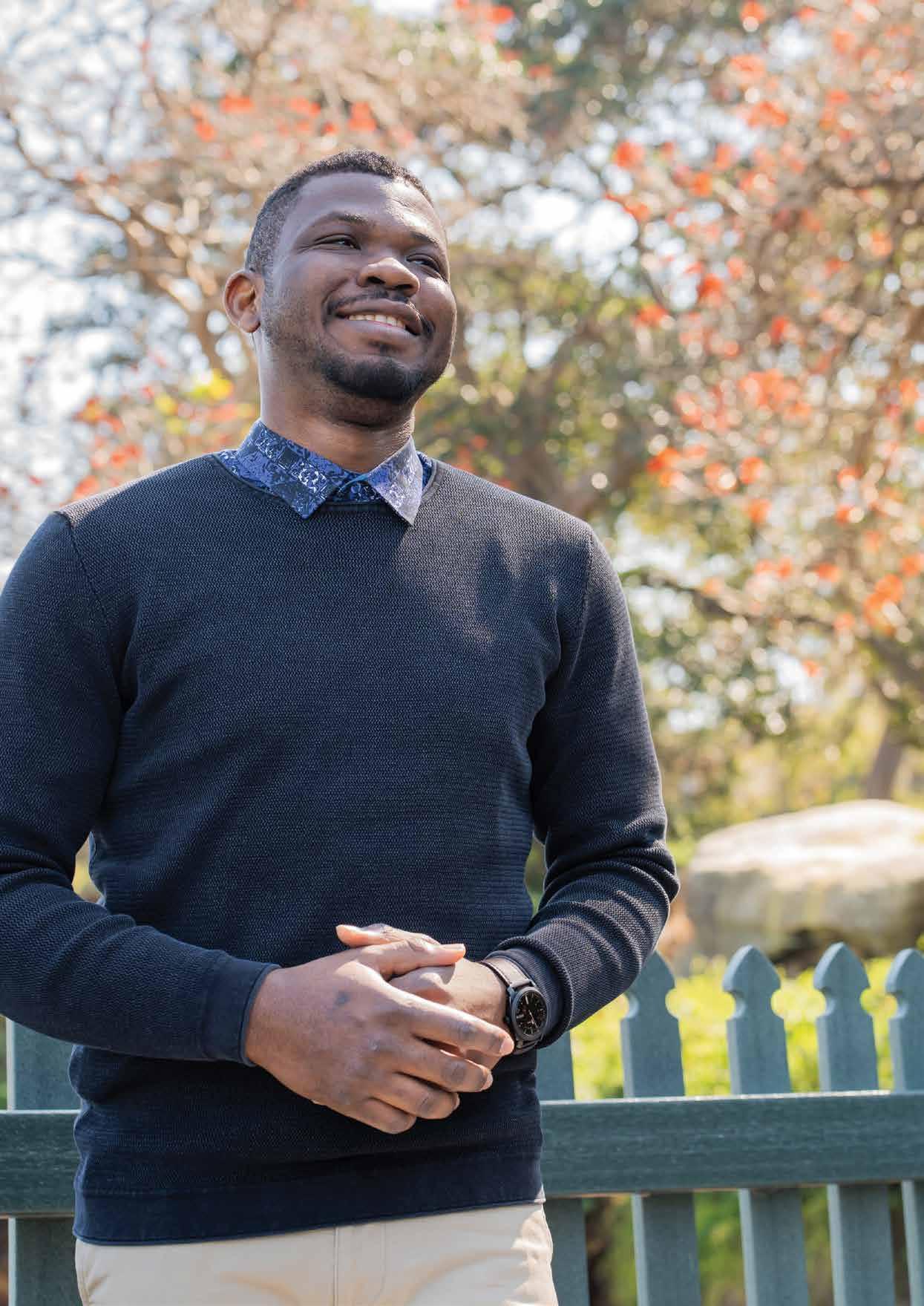

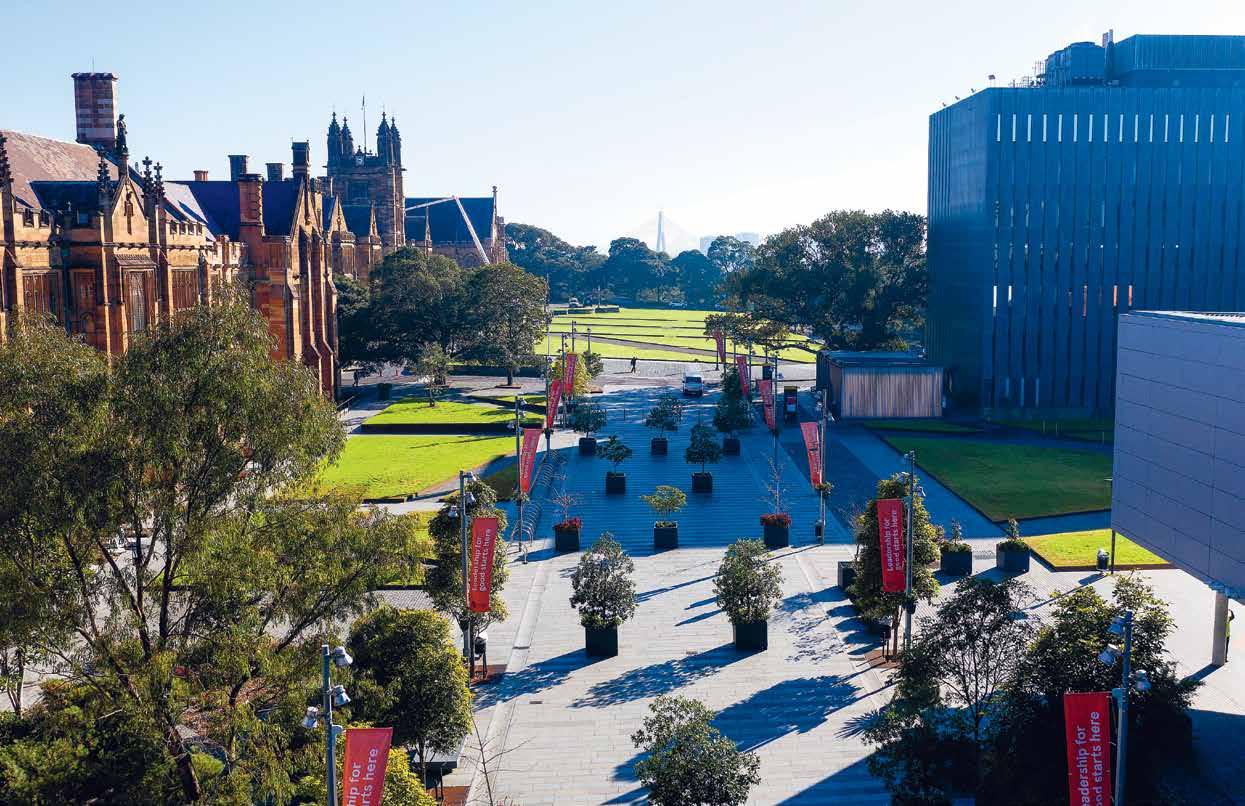
450+ courses across 9 areas of study
Study and network with future leaders and join a global network of 430,000+ alumni
Learn from leading lecturers, researchers and industry partners from Australia and around the globe
150+
research centres and networks
Access world-class facilities with cutting-edge technology
PhD students can apply for travel grants to undertake research activities with our international partners in Asia, Europe, the UK and North America

“During my time at the University of Sydney, I engaged with friends and faculty [members] who not only taught me but also encouraged broader, deeper and sometimes unconventional thinking. The cross-cultural learning became an integral part of shaping my education holistically.”
Yajaswi Rai Master of Sustainability Home country: Nepal
Advance your career, pursue your passion and gain a higher qualification with a postgraduate coursework degree.
Master’s degrees by coursework allow you to develop specialised knowledge so you can gain professional qualifications, develop academic expertise in your chosen field, and take the next step in your career or embark on a new one.
Graduate diplomas (usually 12 months full time, but in some cases available as six months full time) and graduate certificates (usually six months full time) are shorter coursework programs that are usually based on the associated master’s degree and offer a subset of the master’s degree units. They offer a shorter qualification or a pathway into the relevant master’s degree, or allow you to get a taste of your chosen subject area before committing to a master’s degree. Not all master’s degrees offer the graduate certificate and diploma options.
sydney.edu.au/pg
Whether you’re seeking to enhance your career with a research qualification, pursue an academic career or explore a topic you’re passionate about, a research degree from the University of Sydney will enable you to make a difference.
The Doctor of Philosophy (PhD) is our premier research degree, and the highest qualification you can attain in Australia. It comprises independent research and writing on an approved topic towards a thesis for examination.
The Master of Philosophy (MPhil) is awarded based on submission of a thesis that makes a substantial contribution to the knowledge of the subject concerned. This degree can also provide a pathway to further study at PhD level.
All of our research is driven by the big picture. We provide a hub for industry, government and community groups to connect and collaborate with our researchers and students.
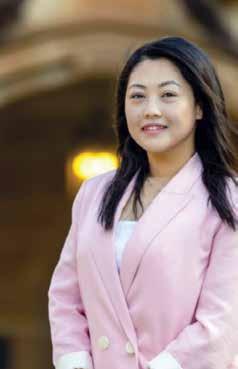
We are home to more than 100 world-renowned multidisciplinary research and teaching centres and institutes, which tackle some of the world’s most pressing issues. These include the Marie Bashir Institute for Infectious Diseases and Biosecurity, the University of Sydney Nano Institute, the Charles Perkins Centre, and the Brain and Mind Centre.
Our interdisciplinary approach unites experts in diverse and complementary fields. You’ll work alongside some of the world’s brightest and most accomplished academics, and have access to our unique international partnerships with institutions including Stanford, UCLA, the University of Edinburgh and Utrecht University.
To learn more about our research and its impact, visit: sydney.edu.au/research
For details of available research degrees in your field, visit: sydney.edu.au/study/ pg-research
Use the QR code to see architecture, design and planning course details

Master
This degree qualifies graduates to work in a range of roles within the architectural profession, including as an accredited architect.
In the Master of Architectural Science degree, you have the option to specialise in a single stream or a double stream (see below), chosen from Audio and Acoustics, High Performance Buildings, Illumination Design, and Sustainable Design.
Master of Architectural Science (Audio and Acoustics)
This stream provides a foundation in the design, measurement and theory of audio and acoustics. Graduates move into communication and entertainment industries in roles including audio production, system design and environmental acoustic consulting.
Master of Architectural Science (High Performance Buildings)
This stream provides education in the design, service provision and operation of buildings in a sustainable manner. Graduates work in a wide range of areas including architectural engineering or practice, business, sustainable design, commercial development, property management and more.
Master of Architectural Science (Illumination Design)
This stream develops expertise in lighting for architectural and urban environments. Career pathways for graduates include lighting design, engineering, lighting manufacturing, and roles in architectural offices and independent consultancies.
Master of Architectural Science (Sustainable Design)
This stream equips you with the skills and knowledge to develop efficient and environmentally responsive buildings. Graduates are sustainability experts who choose from a range of career paths including architecture, property development, construction and urban planning.
Master of Architectural Science (Audio and Acoustics) (High Performance Buildings)
Master of Architectural Science (Audio and Acoustics) (Illumination Design)
Master of Architectural Science (Audio and Acoustics) (Sustainable Design)
Master of Architectural Science (High Performance Buildings) (Audio and Acoustics)
Master of Architectural Science (High Performance Buildings) (Illumination Design)
Master of Architectural Science (High Performance Buildings) (Sustainable Design)
Master of Architectural Science (Illumination Design) (Audio and Acoustics)
Master of Architectural Science (Illumination Design) (High Performance Buildings)
Master of Architectural Science (Illumination Design) (Sustainable Design)
Master of Architectural Science (Sustainable Design) (Audio and Acoustics)
Master of Architectural Science (Sustainable Design) (High Performance Buildings)
Master of Architectural Science (Sustainable Design) (Illumination Design)
The Master of Design and its variations provide specialist training in the emerging fields of design innovation and strategic design, leading to careers such as design manager, customer experience designer, innovation strategist and chief design officer.
Master of Heritage Conservation
This degree provides skill development in methods and practices of conservation, designing new buildings in old settings, and the development of related policy. Graduates often work as heritage consultants specialising in one niche, such as a particular era or style, but may also work as social commentators, historians or cultural observers.
Master of Interaction Design and Electronic Arts
This degree explores innovative technologies such as biotechnology, sustainability, social networking, urban informatics, wearable technology, health and responsive environments. Graduates move into careers such as interaction design, usability engineering or creative directing.
Master of Interaction Design and Electronic Arts (Audio and Acoustics)
This stream allows students of the Master of Interaction Design and Electronic Arts to specialise in the emerging area of interactive sound and audio design for entertainment, buildings and public spaces.
Master of Interaction Design and Electronic Arts (Illumination Design)
This stream allows students of the Master of Interaction Design and Electronic Arts to specialise in the area of interactive lighting and illumination in entertainment, hospitality, buildings and public spaces.
Master of Urban Design
This degree develops leadership and expertise in urban design and urbanism with a strong multidisciplinary emphasis on sustainability, urban morphology and the relationship between ecological processes and city form, leading to careers across both the private and public sectors.
Master of Urban and Regional Planning
This degree, accredited by the Planning Institute of Australia, provides the tools and methodologies to work in planning-based roles in Australia and globally.
Master of Urbanism (Heritage Conservation)
This degree combines professional expertise in heritage conservation and policy with an introduction to contemporary urban planning fields and debates.
Master of Urbanism (Urban Design)
This degree combines professional expertise in urban design, planning and policy practice with an introduction to contemporary planning theory. Graduates work in a range of roles across the public and private sector including strategy, architecture, policy and communication.
Master of Urbanism (Urban and Regional Planning)
This degree produces planning specialists who work across the planning, development and architectural industries. It satisfies part of the requirements to attain corporate membership to the Planning Institute of Australia.
Use the QR code to see arts and social sciences course details
Master of Art Curating

This degree provides skills, knowledge, insight and experience in traditional and contemporary curating practices. Graduates continue to roles within galleries and curatorial organisations globally.
Master of Creative Writing
7.0 (6.0 R/L/S;
This degree develops skills in fiction, non-fiction, poetry and other forms of creative writing, with a supplementary theoretical understanding of writing practices. Graduates work as published authors, advertisers, teachers, publishers, journalists and more.
Master of Crosscultural and Applied Linguistics
This degree focuses on the analysis of forms and functions of language and its connection to visual, cultural and global contexts. Graduates are equipped to work in a range of industries requiring communication and cultural competency skills, such as public relations and multilingual education.
Master of Cultural Studies
This degree involves critical engagement with popular culture, media, gender, sexuality, globalisation, politics, consumer culture and more. The skills and knowledge gained provide a foundation for careers across the arts, education and communication industries.
Master of Digital Communication and Culture
This degree focuses on the study and cultural context of internet platforms, social media, digital audiences, mobile media, online governance, games and more. Graduates work as creatives, journalists, educators, strategists, policymakers and more across a wide range of industries. Master of English Studies
This degree focuses on critical reading, literary history and literary comparison to provide advanced studies in English literature. It is relevant to those working as or aspiring to become secondary school teachers, journalists, writers or literary critics.
Master of Film and Screen Arts
Suited to both current professionals and recent graduates, this degree provides skills in contemporary filmmaking and interactive media. The degree’s flexibility means it can be tailored to suit a wide range of career paths across research and professional practice.
of Health Communication
This degree provides the core media skills, such as communication technology management and public health campaign development, required to become an effective communicator working across health and medicine, public relations, journalism and more.
Master of International Relations
This degree equips you with an understanding of the world’s most pressing challenges, such as war, social and economic justice, poverty, and development and sustainability, and how relations among states and non-state actors influence these challenges. Graduates work in roles across consulting, diplomacy, development, government, international business and journalism.
Master of International Security
This degree develops your understanding of traditional and emerging security challenges, applied to real-world situations and evolving policy debates, leading to careers in government, diplomacy, consulting, journalism and more.
Master of Media
This degree focuses on media content production, including print, broadcast and online media in a global context, underpinned by theory, to prepare you for a career in the media.
Master of Museum and Heritage Studies
This degree provides a contextual and practical understanding of core historical and theoretical developments in museum and heritage studies, preparing you for professional work in the sector.
Master of Political Economy
This degree connects economics with political, social and cultural contexts to grow students into experts in the global economy, its influences and its challenges. Graduates work in governments, international agencies, business, research, the community sector and the media.
Master of Public Policy
This degree provides a critical and multidisciplinary perspective on global, national and local levels of policy environments, examining political, social, economic, civil and technological factors. It prepares you for careers in administration, research, planning, education and management.
Master of Publishing
This degree provides scholarly and professional development and skills in publishing, business, public relations, production and marketing for a career in the dynamic world of book, magazine, digital and online publishing.
Master of Social Justice (Development Studies)
This degree equips students to address issues in development policy and debate with experts in anthropology, international relations, political economy, linguistics, public health, human geography, economics and sociology. Graduates work in government, non-government and private sector organisations concerned with development and poverty alleviation.
Master of Social Justice (Human Rights)
This degree provides students with a critical understanding of the roots of human rights violations and the tools and mechanisms deployed to promote and protect them. You’ll develop key skills in research, analysis, communication, and advocacy that can be applied in domestic, regional and international contexts.
Master of Social Justice (Peace and Conflict Studies)
This degree explores the intellectual and practical approaches of attaining peace with justice through covering topics such as peace journalism, transitional justice, reconciliation, and conflict transformation.
Master of Strategic Public Relations
This degree provides an understanding of public relations theory and practice consistent with an evolving industry and media landscape, in preparation for a career as a public relations adviser, media and communications officer, public affairs consultant, digital communication strategist and more.
Use the QR code to see business course details
Master of Business Administration (Leadership and Enterprise)

Our full-time MBA (Leadership and Enterprise) is ranked number one in Australia by the Financial Times MBA Rankings 2024 and encompasses workshops with industry leaders, intensive group work and tackling real-world issues with a diverse cohort. Graduates have the skills and knowledge to build and lead future enterprises in a digital, hyperconnected world, from tech start-ups to major corporations.
Master of Commerce
The Master of Commerce offers eight future-focused specialisations with practical experiential projects. It creates adaptable, responsible business mindsets in our graduates, preparing them for resilient leadership in volatile times. This 1.5 year program is most suitable for those with a business or cognate first degree/qualification. Specialisations for this degree include accounting, business information systems, data analytics for business, economics, finance, global logistics, marketing, and strategy, innovation and management.
Master of Commerce (Extension)
The Master of Commerce (Extension) offers eight future-focused specialisations with practical experiential projects. It creates adaptable, responsible business mindsets in our graduates, preparing them for resilient leadership in volatile times. This two-year program allows the selection of up to two specialisations and for optional research and exchange semesters. Specialisations for this degree include accounting, business information systems, data analytics for business, economics, finance, global logistics, marketing, and strategy, innovation and management.
Master of Human Resource Management and Industrial Relations
Accredited by the Australian Human Resource Institute (AHRI), this degree will equip you with a sound understanding of key employment issues and the rapid changes reshaping local and international work practices and policies.
Master of International Business
This degree will give you the skills to devise and implement strategic decisions that facilitate sustainable, global corporate growth. Career pathways for graduates include roles in trade, consultancy, government and strategy.
Master of Logistics and Supply Chain Management
This degree is taught at the University’s Institute of Transport and Logistics Studies, which is recognised by the Australian Government as a key centre of excellence in transport and logistics. The degree covers the key analytical and communication skills needed to succeed in logistics and supply chain management. Our graduates play a key role in building resilient, sustainable and effective logistics and supply chains. Master of Management
Ranked number one in Australia by The Financial Times and QS*, our Master of Management will dramatically increase your employment prospects. Specifically designed for recent graduates and early career changers from any area of study, this program not only develops strong business foundations along with essential professional skills, but also delves into the latest business trends and establishes valuable industry connections.
Master of Management (CEMS)
The University of Sydney is the only university in Australia to offer the CEMS Master in International Management program as part of this degree. Students must be fluent in a second language, and will graduate as highly skilled, in-demand international business and management professionals.
Master of Professional Accounting and Business Performance
Co-designed with industry, this unique degree will develop your technical accounting expertise, key skills in analytics, technology and performance management, and soft skills needed to successfully lead in professional accounting practice and corporate management. This degree meets the requirements for professional accounting accreditation with CPA Australia, Chartered Accountants Australia and New Zealand (CAANZ) and the Association of Chartered Certified Accountants (ACCA) with its strong focus on accounting and other relevant knowledge in information systems, analytics, economics and finance.
Use the QR code to see economics course details
Master of Economic Analysis

For students with an existing strong background in economics, this degree provides advanced training in economic theory and econometrics, focusing on the skills required to be a professional economist or economic analyst in the public and private sectors.
Master of Economics
This degree provides the training and knowledge required for a wide range of careers in economics. Focusing on advanced economics and data analysis, the degree is relevant to both new graduates and professionals seeking further development.
Use the QR code to see education and social work course details
Graduate Certificate in Human and Community Services

Understand and appreciate the latest developments in policy and its application, practice and research in this vital and growing sector. Strengthen your professional knowledge and specialise in your preferred sector, including community work policy and practice, mental health practice standards, and policy responses to domestic violence in Australia.
Master of Education
This degree is designed to develop and support the careers of trained teachers who are teaching professionals, educational administrators, researchers and policymakers. It offers advanced learning and development opportunities across a range of specialisations.
Master of Education (Educational Leadership)
This degree examines concepts in educational administration and management, from theories and models of organisational behaviour to understanding change processes and their effects on organisations. You’ll research a range of human resource development and management issues and their relationships to other developments in education, the economy and society.
Master of Education (Educational Psychology)
6.5 (6.0)
1
If you aspire to develop a deep understanding of learning, motivation, child and adolescent development (including brain development), thinking skills and individual differences, to apply to your career in the many diverse fields of education practice and policy, then this degree is for you.
Master of Education (Special and Inclusive Education)
1
This degree will develop the specialised skills and knowledge to teach children with special education needs, and for leadership, consultancy and resources roles in special and inclusive education.
Master of Education (Sports Coaching)
This degree will equip you with knowledge to develop and implement effective learning experiences in the field of sports coaching, examine the technological resources available to support the implementation of specific strategies in coaching athletes and teams, and develop an integrated model with the right mix of training activities, coaching pedagogy and sports science to optimise athletic performance.
Master of Education (TESOL)
This degree will develop your professional expertise and knowledge in the areas of applied linguistics and English language education whether you are, or are aspiring to become, an English language teacher of children, adolescents or adults. (Note: this degree does not in itself lead to a professional teaching qualification.)
Master of Social Work (Qualifying)
Become an accredited social worker by completing this degree. You’ll advance your career and be ready for social work roles in health and community services. This degree equips you to take on leadership roles in social work, the health and community services sector and related fields of practice. Master
This degree enables you to qualify to teach children from birth to five years. You will develop the knowledge and skills to become an outstanding early childhood teacher, professional decision maker, ethical leader, and theoretical and practical thinker. This degree is an approved qualification in the Australian Children’s Education and Care Quality Authority (ACECQA) list.
Master of Teaching (Primary)
020155D 7.5 (7.0 R/W;
This degree prepares you to teach all primary school subjects from kindergarten to Year 6 (K–6). As well as learning about the policy frameworks that shape teaching in NSW, Australia and internationally, you will learn about issues in teaching, learning and curriculum in all school years, from kindergarten to the Higher School Certificate. This degree is a graduate-entry professional teaching qualification to become an accredited teacher in NSW and other Australian jurisdictions.
Master of Teaching (Secondary)
020155D 7.5 (7.0 R/W; 8.0 L/S) Feb 2 51,500
You’ll specialise in either one or two teaching areas at secondary education level, depending on your areas of interest. If your ambition is to teach science, mathematics, music or languages, you can study one of these as a ‘double method’ teaching area, and you won’t need to study a second area. Alternatively, you can choose to study two ‘single method’ teaching areas, potentially broadening your future employment options. This degree is a graduate-entry professional teaching qualification to become an accredited teacher in NSW and other Australian jurisdictions.
Use the QR code to see engineering and computer science course details
Master of Complex Systems

This degree equips you with the expertise to design and manage complex systems made up of numerous diverse, interacting and interdependent parts. You’ll graduate with the skills to model, analyse and design resilient technological, socioeconomic and socio-ecological systems, and develop strategies for crisis forecasting and management.
Master of Computer Science
Master of Computer Science (advanced entry)
The Master of Computer Science combines foundational knowledge with specialist skills and real-world experience for those wishing to operate as a computer scientist or enter the IT industry.
The Master of Computer Science (advanced entry) suits those wishing to build on their experience and qualifications to specialise in computer science and advance their career in a future-focused field.
This degree is designed to equip you with knowledge and skillsets in the cybersecurity field, covering both technical topics as well as management and political/social aspects of cybersecurity.
Master of Data Science
This professional degree develops the necessary analytical and technical skills for graduates to use data science to guide strategic decisions and understand customer behaviour, market intelligence and operational performance.
Master of Digital Health and Data Science
The Master of Digital Health and Data Science will equip you to deliver data-driven solutions to meet complex health challenges in leadership roles in various medical and health professions. Master of Engineering
The Master of Engineering is tailored for qualified engineers seeking to develop specialised technical knowledge in a particular area. See the available streams below for more information.
Master of Engineering (Advanced Manufacturing)
Learn the engineering principles to understand, modify and control the manufacture, delivery and maintenance of technology components in automation and manufacturing systems.
Master of Engineering (Biomedical Engineering)
Become familiar with the technology used to monitor physiological functions and assist in the diagnosis and treatment of patients. You can choose a specialisation in Bioelectronics and Biocomputation, Nanoscale Biotechnology, or Biomedical Devices and Machines.
Master of Engineering (Chemical and Biomolecular Engineering)
Become equipped with specialised technical knowledge in chemical and biomolecular engineering and learn to understand the design and management of industrial processes guided by economic, environmental and societal considerations.
Master of Engineering (Civil Engineering)
Develop specialised skills for planning, designing and testing structures within the built environment, including dams, bridges, pipelines, roads, towers and buildings. You can choose a specialisation in Water Engineering, Geomechanical Engineering, or Structures.
Master of Engineering (Electrical Engineering)
Acquire technical knowledge in electrical engineering to design and build systems that generate, transmit, measure, control and use electrical energy. You can choose a specialisation in Telecommunications Engineering, Power Engineering, Intelligent Information Engineering, or Internet of Things.
Master of Engineering (Mechanical Engineering)
Gain an advanced understanding of the design of mechanical components, whole machines, mechanical systems and mechanical processes. You can choose a specialisation in Computational Engineering, Energy and the Environment, Materials Science and Engineering, or Thermofluids Engineering.
Master of Engineering (Software Engineering)
Gain specialised technical knowledge covering all aspects of software production, from strategy and design to coding, quality and management.
Master of Engineering (Sustainability and Environmental Engineering)
Become familiar with concepts to develop sustainable products and processes that maximise efficiency and minimise environmental impact.
The Master of Professional Engineering offers an accredited qualification for professionals wanting to become an engineer and practise in Australia or overseas.
The two-year accelerated degree provides a shorter path for applicants with an undergraduate engineering degree who want to obtain an Australian degree in a related field of engineering.
See the available streams below for more information. Note that the Sustainability and Environmental Engineering stream is not available in the accelerated degree.
Master of Professional Engineering (Aerospace Engineering)
Master of Professional Engineering (Accelerated) (Aerospace Engineering)
Learn about spacecraft and satellite design, aerodynamics, aircraft design analysis and smart materials.
Master of Professional Engineering (Biomedical Engineering)
Master of Professional Engineering (Accelerated) (Biomedical Engineering)
Learn about biomaterials engineering, applied tissue engineering, advanced engineering materials and computational fluid dynamics. You can choose a specialisation in Bioelectronics and Biocomputation, Nanoscale Biotechnology, or Biomedical Devices and Machines.
Master of Professional Engineering (Chemical and Biomolecular Engineering)
Master of Professional Engineering (Accelerated) (Chemical and Biomolecular Engineering)
Explore industrial processes in which material in bulk undergoes physical or chemical changes.
Master of Professional Engineering (Civil Engineering)
Master of Professional Engineering (Accelerated) (Civil Engineering)
Learn about planning, designing and testing structures within the built environment, including dams, bridges, pipelines, roads, towers and buildings. You can choose a specialisation in Water Engineering, Geomechanical Engineering, or Structures.
Master of Professional Engineering (Electrical Engineering)
Master of Professional Engineering (Accelerated) (Electrical Engineering)
Learn about designing and building systems that generate, transmit, measure, control and use electrical energy. You can choose a specialisation in Telecommunications Engineering, Power Engineering, Intelligent Information Engineering, or Internet of Things.
Master of Professional Engineering (Mechanical Engineering)
Master of Professional Engineering (Accelerated) (Mechanical Engineering)
Gain an advanced understanding of the design of mechanical components, whole machines, mechanical systems and mechanical processes. You can choose a specialisation in Mechatronics, Advanced Materials and Manufacturing, or Thermofluids Engineering.
Master of Professional Engineering (Software Engineering)
Master of Professional Engineering (Accelerated) (Software Engineering)
Examine all aspects of software production, from strategy and design to coding, quality and management.
Master of Professional Engineering (Sustainability and Environmental Engineering)
Acquire the skills to analyse and design solutions to pressing global issues such as addressing climate change, decarbonising the energy economy, and ensuring sustainable food and water supplies. (Note that this stream is not available in the accelerated degree.)
Master of Project Management
This professional degree provides the advanced skills required for hands-on project management, including the fundamental methodologies, modelling and analytical techniques required for the design and implementation of projects across a wide range of industries.
Master of Transport
This is Australia’s first interdisciplinary degree focusing on the engineering, urban planning, and management of transport. It is tailored for professionals either already in or wanting to transition into the field, and provides critical understanding of the prevalence and identification of transport systems, core capabilities for analysing and designing such systems, and proficiencies in broad interdisciplinary analysis.
Use the QR code to see law course details
Juris Doctor 071754C 7.5 (7.0) Feb 3

This degree includes study of all the required areas of knowledge for admission to practise law in NSW and focuses on international, comparative and transnational aspects of law. Whether you are planning to undertake further postgraduate study or research, or pursue a career as a solicitor, at the bar or in government service, industry or the not-for-profit sector, this degree will equip you with the analytical, ethical and problem-solving skills you will need to excel.
Master of Administrative Law and Policy
020152G 7.0 (6.0) Feb/Aug 1
This degree is designed to develop your understanding of the relationship between law and the analysis and implementation of public policy. It examines the values inherent in administrative law and those of public administration, together with the practical aspects of the application of the law.
Master of Business Law
1
This specialist qualification in business law and regulation offers you an opportunity to choose from the entire range of units of study offered through Sydney Law School’s commercial law, corporate, securities and finance law, international business law, international taxation and taxation programs. This degree reflects the growing importance of legal literacy and business law expertise among non-lawyers working in business, finance, commercial and corporate environments. It also provides a master’s-level qualification that builds on the completion of professional accountancy qualifications.
Master of Criminology
1
This degree allows you to gain a critical understanding of criminology through a broad selection of interdisciplinary units delivered by some of Australia’s leading criminologists. Designed for anyone with an interest in crime, punishment and criminal justice, the criminology program addresses contemporary questions about crime and control within theoretical and policy contexts.
Master of Environmental Law 016239A
(6.0) Feb/Aug 1
This degree has been designed to meet the needs of both Australian environmental specialists and those from other countries. Climate and environmental law form one of the most rapidly expanding areas of specialisation in the law. At Sydney Law School, this expansion is reflected in the abundance and variety of units available in the study of this field.
1
Master of Health Law
This degree is a flexible, specialist qualification covering wide-ranging legal and ethical issues in health care. You will learn to identify, analyse and develop solutions to complex legal, ethical and policy issues affecting health and health services.
Master of International Law
This degree prepares you for professional work and academic research in the fields of public international law and international policy by equipping you with the skills and knowledge to negotiate the legal and policy issues affecting relations between states, between states and international organisations, and between states and individuals.
Master of Labour Law and Relations
This flexible degree allows you to pursue specific units in labour law, employment law, discrimination law and dispute resolution. If you are a lawyer or other professional working in the human resources field in government, business, industry or private practice, you will find this interdisciplinary master’s degree an invaluable professional training experience.
Master of Laws
1
This flexible and highly sought-after degree caters specifically for the needs of the legal profession, offering more than 20 areas of specialisation as well as a number of specialised units of study, with units taught by our own experts as well as by international visitors. As a law graduate, you may choose from the entire range of units of study offered through Sydney Law School’s postgraduate coursework program, allowing you to tailor a program that suits your academic and professional needs.
Master of Taxation
This degree is a specialist qualification in Australian tax law, drawing on Sydney Law School’s taxation program, one of the world’s most respected and established. The curriculum has been designed to meet professional requirements at national and international levels and is relevant to those working in the Australian tax profession, whether as lawyers, accountants, public administrators or academics, who wish to build on their experience and attain a high level of specialist tax expertise. Sydney Law School is internationally renowned for tax education.
Use the QR code to see medicine and health course details
Graduate Diploma in Clinical Dentistry (Advanced Restorative) 112626A
(7.0) Jan 1

This degree provides you with a high level of knowledge and advanced skills in the areas of advanced restorative dentistry, prosthodontics and oral implants. It involves intensive theoretical and clinical work, which can then be followed by the Doctor of Clinical Dentistry (Prosthodontics) or a higher degree by research in this field.
Graduate Diploma in Clinical Dentistry (Surgical Dentistry)
076247D 7.0 (7.0) Jan 1
This degree will develop your competence in clinical techniques in oral surgery for general dental practice. It includes oral medicine and oral pathology components as well as implants, to enable the provision of a range of oral surgery services. You will also complete a research project in the field of oral surgery. This degree will also provide you with a foundation to complete the Doctor of Clinical Dentistry (Oral Surgery) program or a higher degree by research in this field.
Doctor of Clinical Dentistry (Oral Medicine)
064271C 7.0 (7.0) Jan 3
This degree trains qualified dentists who wish to specialise in oral medicine. You will develop your skills in the non-surgical management of the full range of oral diseases as well as in the care of medically compromised patients, including transplant patients, in hospital and non-hospital settings. You will learn about the diagnosis and non-surgical treatment of diseases of the oral mucosa and salivary glands, facial pain, and oral manifestations of systematic diseases such as HIV. Diagnostic oral and general pathology form integral parts of the course. You will also complete a research project in the field of oral medicine and oral pathology under the supervision of an academic staff member.
Doctor of Clinical Dentistry (Oral Surgery)
This degree trains dentists who wish to specialise in oral surgery. It will develop your skills in dento-alveolar surgery and the surgical management of medically compromised patients. You will acquire skills to care for patients with orofacial pain, trauma and infections and those who require implants. You will also complete a research project in the field of oral surgery under the supervision of academic staff.
Doctor of Clinical Dentistry (Orthodontics)
This degree trains qualified dentists who wish to specialise in orthodontics. You will learn treatment options for a wide variety of patients of different age groups and with different malocclusions using full fixed appliances, orthopaedic appliances, temporary anchorage devices and surgical modalities as well as aesthetic applications (sequential aligners and lingual techniques). You will also complete a research project in the field of orthodontics under the supervision of an academic staff member.
Doctor of Clinical Dentistry (Periodontics)
This degree trains qualified dentists who wish to specialise in periodontics. You will develop technical skills in periodontal implants and clinical periodontics as you acquire a comprehensive understanding of the field of periodontology. You will also complete a research project in the field of periodontal surgery under the supervision of an academic staff member.
Doctor of Clinical Dentistry (Prosthodontics)
This degree trains qualified dentists who wish to specialise in prosthodontics. It will develop your clinical skills in advanced restorative dental surgery and contemporary prosthodontics, and you will acquire a comprehensive understanding of orofacial pain. You will also complete a research project in the field of prosthodontics or restorative dentistry under the supervision of an academic staff member.
Doctor of Clinical Dentistry (Special Needs Dentistry)
This degree trains qualified dentists who wish to specialise in special needs dentistry. You will receive training in the specialist dental treatment of patients with the full range of disabilities, including physical, medical, and neuro-sensory or intellectual, including sensory, cognitive, mental/ psychiatric and emotional impairments. You will also complete a research project in the field of special needs dentistry under the supervision of an academic staff member.
Doctor of Dental Medicine
This degree is a graduate-entry program that qualifies you to practise as a dentist. You will build skills through practice-based learning, in a four-year degree developed to meet the changing oral health needs of the community. Experts in dental practice and research lead our program, which will equip you with the knowledge and skills to assess, manage and evaluate the oral health needs of patients and populations. Through simulated clinical learning environments and clinical placements across both the public and private sectors, you will learn to apply your knowledge and care for patients within a range of clinical settings. You will also complete a research project related to dentistry under the supervision of an academic staff member.
Master of Dental Public Health
This degree benefits qualified dentists who wish to specialise in dental public health, as well as those seeking a premier education in dental public health. You will develop practical skills in problem identification, designing and implementing public health interventions, and policy analysis and development. You will also complete a research project in the field of dental public health under the supervision of an academic staff member.
Health sciences and allied health
Doctor of Physiotherapy
The Doctor of Physiotherapy provides an innovative and world-class program to comprehensively prepare you to work in, respond to and lead the modern healthcare system. By the end of this degree, you will be a confident, ethical and professional practitioner who can prevent, diagnose, manage and treat a wide range of health conditions and practise in a variety of healthcare settings. You will build skills through evidence-based and practice-based learning in a three-year degree developed to meet the changing health needs of the community. This course incorporates significant clinical, research and professional fieldwork opportunities, providing hands-on experience with real clients throughout the course.
Master of Diagnostic Radiography
In this degree you will learn how to work with a range of innovative imaging technologies, including small mobile X-ray machines and larger units such as MRI and CT scanners as well as sophisticated cardiac units, to enable accurate patient diagnosis and treatment. You will learn in our purpose-built laboratories and onsite health clinics and use high-calibre equipment across our dedicated health facilities. Through a number of clinical research and professional placement opportunities in both the public and private sectors, you will learn to combine your theoretical study with the practical capabilities of a professional diagnostic radiographer.
Master of Exercise Physiology
0100634 7.0
This degree gives you the knowledge, competencies and clinical experience required to deliver safe and effective clinical exercise practice that has a real impact on people’s health. Led by experts in exercise physiology practice and research, it will equip you with the knowledge and skills to assess physical and functional capacity, identify risks and design targeted, functional and sustainable exercise programs. Through clinical training across both the public and private sectors, you will learn to apply your knowledge and work within a range of different clinical settings.
Master of Occupational Therapy
027888K 7.0
This degree prepares you for clinical practice in the profession of occupational therapy. Through practical learning and extensive clinical placements, you will learn to work in partnership with individuals, groups and communities to facilitate their performance and participation in everyday living by focusing on their strengths. Equity and justice are promoted in all occupation-related matters, including teaching alternative techniques to achieve a given task and facilitating skill improvement for individuals across their lifespan.
Master of Speech Language Pathology
052756C 7.0 (7.0) Feb 2 66,000
This degree prepares you for professional practice as a speech pathologist, developing the skills to assess and treat people of all ages, backgrounds and cultures, and change lives by making it easier for people to communicate or swallow safely. You will learn from leading experts how to work with children and adults with communication and speech difficulties, as well as with clients who have swallowing difficulties or need alternative ways to communicate. Case-based learning underpins this program and is complemented by comprehensive clinical placements which provide hands-on experience with real clients in supervised environments in our new purpose-built health building.
Medicine and public health
Doctor of Medicine
079216J 7.0 (7.0)
This is a four-year, professional master’s degree providing students with world-class clinical and research training. On completion, graduates are eligible for registration with the Australian Medical Board as a doctor, and some of our international graduates choose to practise in their home countries. Our students come from a range of backgrounds and academic disciplines. You will have opportunities to learn in Sydney’s premier teaching hospitals, as well as in rural and international locations. Graduates leave as medical practitioners, responsive to the health needs of individuals, families and communities and committed to improving the healthcare system at all levels. The curriculum provides enhanced learning opportunities through earlier clinical exposure, personalisation options, research opportunities, and immersive clinical placements in the final year of the program, preparing you for practice as a doctor.
Master of Bioethics
054972A 7.0 (6.5) Feb/Aug 1 58,800
Bioethics is concerned with ethical questions that arise within the contexts of biological and health sciences. Social concern about such issues has grown with the advancement of biomedical and reproductive health technologies, genetic engineering, cloning and stem cell research. This degree will train and equip you with new skills in bioethics and prepare you for a highly rewarding new career in or related to health.
Master of Biomedical Science (Infection and Immunity)
102404J 7.0 (6.5) Feb/Aug 1 58,800
This degree is designed and taught by world-leading medical microbiologists and immunology researchers from across the University, including from the Marie Bashir Institute for Infectious Disease and Biosecurity. You will graduate with a thorough understanding of the latest techniques, developments and breakthroughs in immunology and their application to the diagnosis and treatment of clinically relevant pathogens.
Master of Brain and Mind Sciences
068825G 6.5 (6.0) Feb 1 58,800
This degree provides focused education and training for the next generation of science, medical, nursing, psychiatry and psychology workforces, preparing you to meet the needs of those suffering from disorders of the brain and mind. It promotes interdisciplinary research, encouraging investigation into disease in areas of the brain and mind, and draws on the strengths of the Brain and Mind Centre to assist you in your professional and clinical skills development.
Master of Global Health
This degree prepares you to work in public health in settings around the world, with a specific focus on achieving equity in health in some of the world’s most challenging and demanding conditions. You will learn to think critically and reflectively about the broad issues of public health problems, communicate with stakeholders and develop and foster partnerships to effect improved health. The program offers flexibility to develop advanced skills in methodological approaches, and opportunities to undertake a diverse range of international and national placements. Our graduates work in a range of settings in Australia and internationally, including the World Health Organization, non-government agencies, bilateral aid agencies and ministries of health.
Master of Health Policy and Planning
This degree provides you with a comprehensive and practical understanding of health systems and policymaking processes. It offers a critical perspective on how health systems operate, how policies across a range of sectors, both public and private, influence health, and how to create health policy change. You will develop a comprehensive and practical understanding of policymaking, including systems thinking; economic evaluation; health financing and budgets; power, politics and agenda setting; and the critical use of evidence. This is an accelerated degree for people who have existing work experience, and can be completed in one year of full-time study.
Master of Medicine (Clinical Epidemiology)*
Master of Science in Medicine (Clinical Epidemiology)**
6.5 (6.0)
Clinical epidemiology is the science behind good clinical research and evidence-based clinical decision making. These degrees are designed to develop both clinical researchers and practitioners by teaching the skills needed to generate high-quality clinical research and the skills to locate, appraise, interpret and apply the best research evidence to patient care. You will also develop the research skills required by many clinical training positions.
Master of Medicine (Sexual and Reproductive Health)*
This degree enables you to address the challenges of sexual and reproductive health through a wide range of subjects, with an option to choose one of four pathways: HIV and STIs; Psychosexual Therapy; Reproductive Health and Fertility; or Public Health. The interprofessional and multidisciplinary structure of the degree encourages you to develop effective collaborative approaches to employment in a variety of healthcare settings.
Master of Public Health
This degree focuses on the prevention of illness and the promotion of health. Its underlying philosophy is that the application of critical thinking combined with skills in research, advocacy, public policy and community engagement provide the best foundation for improving the health of the population. You’ll develop the essential knowledge and methodological and practical skills required of practitioners in the practice of modern population health. After completing the comprehensive core units, you’ll select from a wide variety of elective options from within the School of Public Health and across the University. Alternatively, you may decide to focus on a specialisation in Chronic Disease Prevention, Communicable Disease Control, Health Promotion and Advocacy, or Research Methods.
Master of Advanced Nursing Practice 084691F
Designed for registered nurses, this degree explores the ways nurses work and practise within clinical environments. You’ll learn from leading researchers in nursing practice and the study of the clinical environment, and solidify your theoretical foundations of nursing practice. You will also develop your confidence to use the latest research-based evidence to inform your clinical decision making. On completion of this degree, you will have the knowledge, skills and attributes required to develop initiatives in health care and make a substantial contribution to healthcare policy and development.
Master of Cancer and Haematology Nursing
Designed for registered nurses, this degree aims to assist nurses who care for people affected by cancer and haematological illnesses to develop the knowledge and skills for their care. You will develop a comprehensive knowledge of the prevention, diagnosis and management of cancer, future treatment trends and the impacts of these illnesses on the individual, family and community. You will investigate the biology of cancer and haematology, associated treatments, and integrated multidisciplinary management. Taught by leading cancer and haematology care researchers, you will learn to make evidence-based decisions using research.
Master of Emergency Nursing
This degree is designed for registered nurses currently working in the emergency environment who wish to build their professional practice capabilities and advance to a leadership role in nursing. You’ll develop the knowledge and skills to assist emergency presentations, support the patient and family at a time of great vulnerability, and assist them with their journey to either hospital admission or safe discharge home. You’ll learn from leading researchers in the field of emergency nursing care as you build on your individual clinical experience, and acquire the specialist knowledge and skills to provide high-quality patient care as a leader in emergency nursing treatment.
Master of Intensive Care Nursing
068709A
This degree is for nurses currently working in the intensive care environment to develop the expertise and skills to provide high-quality patient care and become clinical leaders. As an intensive care nursing student, you will learn to work across complex environments that often demand rapid, sophisticated and challenging decisions as you help patients and their families understand their illness and deliver high-quality care. You will build on your individual clinical experience and learn to provide sophisticated care and advice to critically ill patients and their families. This requires application of advanced physiological knowledge during the assessment and management of patients who may be experiencing single or multiple organ dysfunctions. On graduating, you will have the specialist knowledge and skills to provide comprehensive care to patients and their families in intensive care, with opportunities to further work across nursing education, administration, research and consulting.
Master of Nursing
068773D
This degree builds on your previous undergraduate education, preparing you for work in local, national and international healthcare settings. You will gain a comprehensive understanding of how to work with other health professionals to provide the highest-quality person-centred care. You will learn from leading experts through hands-on learning in our new purpose-built health building as you develop a strong theoretical understanding of health and illness, and how care is provided and experienced. You will complete extensive clinical placements in varied settings. Beyond clinical care, you will also study human biology, pharmacology, research and evidence-based practice, social contexts of health and illness, illness experiences, healthcare systems, leadership in health care and other professional topics, including legal and ethical issues in health care.
Master of Nutrition and Dietetics 008414B
This degree is a pathway into professional practice as a dietitian and nutritionist. With practical training and access to eminent dietitians, it will place you at the forefront of dietetic and nutrition research and practice. As a graduate of this program you will be eligible to apply to Dietitians Australia and to join the provisional Accredited Practising Dietitian Program.
Master of Pharmacy
This degree offers an entry pathway to fast-track your career into the pharmacy profession. It is an accredited degree designed to prepare you for all aspects of the pharmacy profession, including leadership in innovative and evidence-based practice. With a strong practical focus underpinned by evidence-based practice and research, you will develop valuable knowledge, skills and experience in all aspects of the pharmacy profession. Your studies will consist of a variety of blended learning opportunities including lectures, tutorials, labs, small-group work and problem-based learning, as well as clinical placements across the community, hospital and industry sectors.
Use the QR code to see music course details
Master of Music Studies (Opera Performance)

Your development as a singer and performer will be mentored and supported to reach your potential by teaching staff who are internationally experienced active performers, teachers and researchers. Extend your knowledge and onstage experience of opera repertoire, style, lyric diction and stage skills in preparation for the professional opera stage.
Master of Music Studies (Performance)
This degree will extend your technical mastery of your chosen instrument or voice, while deepening your knowledge of repertoire and performance practice. This degree may be taken in any of the Sydney Conservatorium of Music’s instrumental areas, including orchestral and solo instruments, early music and jazz.
Use the QR code to see science course details
Doctor of Veterinary Medicine

Study to become a registered veterinarian with the Doctor of Veterinary Medicine. Our internationally accredited degree will turn you into a careerready vet, with the skills to work in managing animal health and disease in Australia and around the world.
Master of Agriculture and Environment
This degree trains you to solve some of the world’s biggest challenges relating to food security, water, and climate change. With significant professional experience in the lab and out in the field, you’ll be ready to contribute to this globally critical sector.
Master of Clinical Psychology
You’ll gain the knowledge and practical experience to work as a professional clinical psychologist. By the end of this accredited degree, you will have the highly developed knowledge base and strong clinical skills needed to work as a professional clinical psychologist in a range of clinical and community settings.
Master of Environmental Science
This degree is a launchpad into leadership for professionals in the environmental sector. The degree draws on a wide range of science-based disciplines and applications, from ecology to solar power, and analytical chemistry to geomorphology.
Master of Environmental Science and Law
As a graduate of this degree, you will have a practical and theoretical background in all aspects of environmental science and environmental law, which opens doors to careers in environmental management and policy development.
Master of Marine Science and Management
In this degree, you will be taught by world-renowned experts in some of the most significant coastal locations in the country, undertake hands-on work at remarkable aquatic field sites, and gain the skills, knowledge and confidence to work in the multidisciplinary field of marine science.
Master of Mathematical Sciences
This degree is designed to give you deep training in mathematical sciences, and also acts as a pathway to a research degree. You can choose to focus your studies on mathematics, statistics, financial mathematics and statistics, or data science.
Master of Medical Physics
The Master of Medical Physics program provides specialist postgraduate training in the application of radiation physics, artificial intelligence, dosimetry, imaging, radiobiology and radiation protection for a range of medical conditions including cancer, which will set you on the path to becoming a working medical physicist in Australia. This entry-level qualification will give you the expertise to work within clinical settings including cancer treatment, diagnostic imaging, medical electronics and more.
Master of Science in Coaching Psychology
Learn to help people improve their performance with a Master of Science in Coaching Psychology. Providing a solid grounding in theory and practice, this unique degree will give you the skills to enhance the productivity and quality of life of individuals, organisations and the broader community.
Master of Sustainability
By tackling key global issues, this degree will equip you to further your career in the sustainability sector. You’ll gain knowledge about energy conservation, population health, food security, sustainability policy, and sustainability analysis tools.
The information below relates to the postgraduate coursework degrees listed on pages 80-92.
The information published in this guide is correct at the time of publication for admission in 2025, but may be subject to change. For the latest information, including admission criteria, course structure and availability, search for the relevant course at:
sydney.edu.au/courses
Postgraduate courses available for full-time study onshore
The postgraduate coursework degrees listed on pages 80-92 are CRICOS-registered and available to international students who intend to study full time in Australia on a student visa. For more information about CRICOS-registered courses, visit the CRICOS register at: cricos.education.gov.au
Several (but not all) of the courses offered as master’s degrees are also available as graduate diplomas and/ or graduate certificates. For more information about these options, visit: − sydney.edu.au/courses
Postgraduate courses not available for full-time and/or onshore study
The University of Sydney also offers a range of postgraduate coursework degrees that may be available to international students who are not on a student visa. Examples include courses offered in online mode, which are available to international students to undertake from their home country. Some courses offered online also include intensive study periods onshore.
International students in Australia who are not on a student visa, depending on their visa type, may also be eligible to undertake courses that are not offered full time onshore and/or are not CRICOS-registered. Some CRICOS-registered courses offered onshore also have an online mode available to non–student visa applicants.
For more information, visit: sydney.edu.au/courses
Double degree progression requirements
Double degrees have progression requirements that must be satisfied before you can be admitted to your second degree. For important information on progression rules, visit: sydney.edu.au/handbooks
Key to the course table
English – IELTS Academic
The first score listed is the overall score required. The score listed within the brackets is the minimum score required in each section (L for Listening, R for Reading, S for Speaking, W for Writing).
For information about other English language tests and requirements, visit: sydney.edu.au/study/english-reqs
At the University of Sydney, you can choose from a wide range of postgraduate coursework degrees designed to help you advance your career, pursue your passion, or explore a new area of interest following your undergraduate degree.
Explore your options at: sydney.edu.au/courses
Admission to the University of Sydney is competitive, and is based on meeting admission criteria specific to the course you wish to enter. The following is some general information about our admission requirements. To check the specific admission criteria for your chosen course, search for the individual course page at: sydney.edu.au/courses
Admission to most of our postgraduate coursework degrees requires a recognised tertiary qualification such as a bachelor’s degree and, in some cases, relevant work experience and/or other prerequisites. This information is included on the relevant course page at: sydney.edu.au/courses
Additional admission criteria
Some courses, including some business, education, dentistry, medicine, music, nursing, clinical psychology, veterinary medicine and visual arts courses, have additional admission criteria, such as a standardised admission test (e.g. GAMSAT, MCAT), audition, interview, portfolio or personal statement of motivation. This information is included on the relevant course page at: sydney.edu.au/courses
Depending on your country of origin and educational background, you may need to provide evidence of your English proficiency to be able to study with us. Learn more at: sydney.edu.au/study/english-reqs
Courses with external registration or accreditation may have additional English language requirements set by the registration or accreditation body. This information is included on the relevant course page. Your student visa application may also require proof of English separate from the University’s English language requirements for course admission.
Assumed knowledge
Some postgraduate coursework degrees expect you to have a certain level of existing knowledge in specific areas of study. This information is included on the relevant course page at: sydney.edu.au/courses
Inherent requirements
Some courses in areas such as education, health, medicine and veterinary medicine have inherent requirements that you need to be able to meet to successfully complete that course, such as the ability to carry out essential activities involving children, patients or animals, as relevant. (Reasonable adjustments will be made for disability, cultural and religious factors.) While these are not admission requirements, you need to consider them when making your course selection. Learn more at: sydney.edu.au/students/ inherent-requirements
SUBMIT YOUR APPLICATION
As an international student, you should apply as early as possible to allow time for visa and travel arrangements. You should apply direct to the University through: sydney.edu.au/courses
A $150 (AUD) application processing fee applies. Application deadlines vary by course. For specific closing dates for your chosen course, check the relevant course page at: sydney.edu.au/courses
For personalised application advice: contact one of our regional experts listed at sydney.edu.au/study/regional-contacts , or apply through one of our authorised agents (representatives) listed at sydney.edu.au/study/overseas-agents
4 You will receive a response – either an unconditional offer if your application is successful, or a conditional offer if you are required to satisfy additional admission criteria.
5 Accept your unconditional offer (instructions will be included with the offer).
6 Pay the required fees (instructions will be included with the offer) – your first semester of course tuition fee plus your Overseas Student Health Cover (OSHC) fee – and receive an electronic Confirmation of Enrolment (eCoE), which you will need for your visa application.
7 Apply for your student visa and make the necessary travel arrangements.
All course prerequisites, assumed knowledge and recommended studies are listed under the relevant course at: sydney.edu.au/courses
8 Enrol online in your course (includes selecting your subjects – instructions will be included with the enrolment email).
9 Arrive in time for orientation, welcome activities and course commencement.
For more information about the application process, visit: sydney.edu.au/study/ how-to-apply/internationalstudents.html
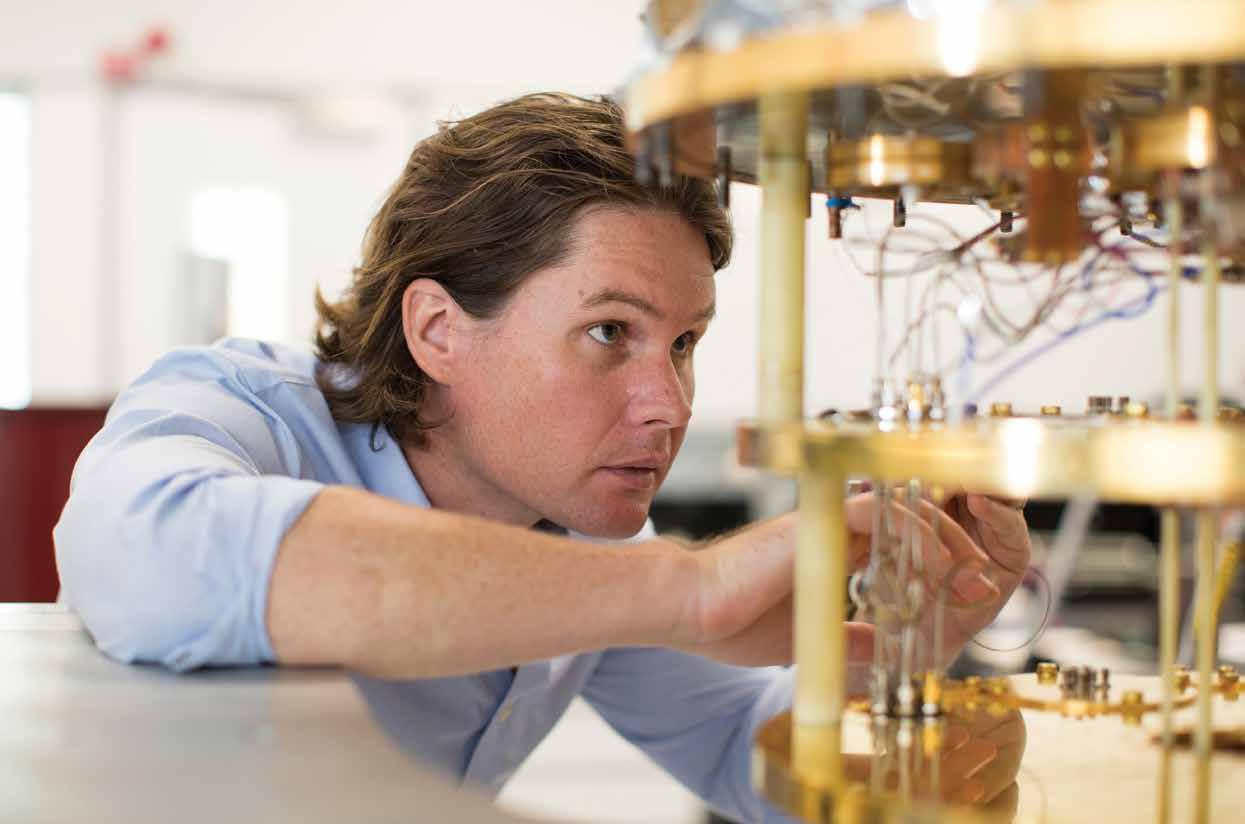
We’re one of the world’s top research universities. All our research is driven by the big picture. We take a problem and look at it from all angles, combining the expertise and talents of scholars from many disciplines. Our key research areas include technology, health and wellbeing, society and culture, and environmental issues. in Australia for bringing innovations to market* research centres and networks
150+ 1st research partnerships with universities around the world
300+ $140k
20 jointly funded research projects with partner universities for the duration of your PhD with a merit-based Research Training Program scholarship for international students
Use the QR code to explore your postgraduate research degree options

Doctor of Philosophy (Architecture, Design and Planning) 003519M 7.0 (6.0)
Mar/Jul 3–4
The degree of Doctor of Philosophy may be undertaken across the faculty’s active research areas: architectural design; architectural theory and history; architectural science; design lab; and urbanism. This research degree is awarded for a thesis considered to be a substantial, original contribution to knowledge in one of these areas.
Master of Philosophy (Architecture, Design and Planning) 000685K 7.0 (6.0)
Mar/Jul 1–2 49,400
This master’s degree by research allows you to undertake research and advanced specialisation in any of the faculty’s active research areas: architectural design; architectural theory and history; architectural science; design lab; or urbanism. Admission criteria include a bachelor’s degree with first- or second-class honours in a relevant discipline.
The following list is inclusive of the research degree options also available for the areas of economics, and education and social work.
Doctor of Philosophy (Arts and Social Sciences) 0100200 6.5 (6.0)
Mar/Jul
The Doctor of Philosophy allows you to undertake research in a field of the faculty’s expertise, culminating in a thesis of up to 80,000 words. We offer supervision in visual arts and art history; archaeology and classics; diverse languages and their cultures; economics; English language and literature; ancient, medieval and modern history; philosophy; the global political economy and international governance; sociology and cultural studies; media and communications; education and social work; linguistics; gender studies; and studies in religion.
Master of Arts (Research)
050922K
The Master of Arts (Research) is designed to help you pursue your passion for research in a range of subject areas, either by research and thesis only, or by a combination of thesis and coursework through the Faculty of Arts and Social Sciences. You will develop advanced skills including critical thinking, data interpretation and analysis, and project management, as well as communication and problem solving.
Master of Education (Research)
1-2
This degree offers advanced training in education research and provides a research pathway to doctoral research in education. It is designed for people who wish to undertake a research degree, but not one of the length and scale of a Doctor of Philosophy (PhD) or Master of Philosophy (MPhil). It is also applicable for those who wish to enrol in a PhD in the future, but lack either an honours degree or a degree that would permit them direct admission.
Master of Fine Arts
The Master of Fine Arts by research gives you the opportunity to develop your art practice within the structure of a research culture. You will build on practice by investigating a proposed area of research and will be encouraged to produce work of an original and speculative nature. Your research supervisor will provide personalised and dedicated attention to the development of your research outcomes.
Master of Philosophy (Arts and Social Sciences)
Research can be undertaken across a diverse range of disciplines in the humanities and social sciences, embracing traditional, emerging and cross-disciplinary subjects. Candidates for this degree will research and write a thesis of 30,000 to 40,000 words on an approved topic under the supervision of a member of academic staff.
Doctor of Philosophy (Business)
This degree may be undertaken in any Business discipline, within one of our research centres, and/or in association with one of our dynamic research groups. The degree requires the satisfactory completion of selected coursework units of study and a research thesis of 80,000 words on an approved topic, under the supervision of an academic panel. Master of Philosophy (Business)
This degree takes at least one year of full-time study to complete, during which candidates undertake approved research and write a thesis of up to 50,000 words.
Doctor of Philosophy (Engineering)
The Doctor of Philosophy program involves preparing a thesis that will make a substantial and original contribution to the specific subject area. You will undertake specialist units of study and multidisciplinary research across the broad areas of engineering and computer science, centred on key themes including data science and computer engineering; robotics and intelligent systems; the Internet of Things; healthcare engineering; energy, resources and the environment; complex systems; food enginomics; and infrastructure and transport. The degree is awarded if your thesis is considered to be a substantial and original contribution to the subject concerned.
Master of Philosophy (Engineering) 061790D 6.5 (6.0)
The Master of Philosophy program involves preparing a thesis that will make an original contribution to the specific subject area. You will undertake specialist units of study and multidisciplinary research across the broad areas of engineering and computer science, centred on key themes including data science and computer engineering; robotics and intelligent systems; the Internet of Things; healthcare engineering; energy, resources and the environment; complex systems; food enginomics; and infrastructure and transport.
Doctor of Philosophy (Law)
The Doctor of Philosophy at Sydney Law School equips you for careers in advanced research, policy development, public service, tertiary teaching and professional leadership. You will benefit from a vibrant and dynamic research culture and engage with internationally renowned academic and research staff who are experts across a range of fields.
Master of Criminology (Research)
The Master of Criminology by research enables you to further explore aspects involving criminal law, forensic psychiatry, drug policy and the law, gender and race relations, youth and crime, policing in society, and other social and cultural aspects of criminal justice. Your 50,000-word supervised thesis must make a substantial contribution to the knowledge of the subject concerned.
Master of Laws (Research)
008408M 7.0 (6.0) Mar/Jul
The Master of Laws by research equips you for careers in advanced research, policy development, public service, tertiary teaching and professional leadership. It will enable you to acquire and develop sophisticated research and analysis skills, honed through work on a topic of your choice that expands legal thinking and understanding. Your 50,000-word supervised thesis must make a substantial contribution to the knowledge of the subject concerned.
Doctor of Philosophy (Medicine and Health)
The Doctor of Philosophy in the Faculty of Medicine and Health will allow you to pursue innovative research across a number of areas in which the faculty has expertise, culminating in the submission of an 80,000-word thesis. You can undertake research in the following areas: medicine, dentistry, pharmacy, nursing, medical sciences, public health, health sciences and allied health.
Master of Philosophy (Medicine and Health)
The Master of Philosophy in the Faculty of Medicine and Health will allow you to pursue innovative research across a range of areas in which the faculty has expertise. You can undertake research in the following areas: medicine, dentistry, pharmacy, nursing, medical sciences, public health, health sciences and allied health.
Doctor of Musical Arts
The Doctor of Musical Arts is a professional doctorate in music performance, conducting or composition, and is open to highly talented and skilled musicians with strong scholarly abilities. The course will suit candidates with a research background who wish to enhance their skills while taking advantage of the exceptional teaching available at the Sydney Conservatorium of Music.
Doctor of Philosophy (Music)
This degree is undertaken as a supervised research project in composition, musicology, music education, performance and/or interdisciplinary applied research topic areas. PhD requirements vary between disciplines and may comprise a thesis of up to 80,000 words, or a thesis comprising a dissertation that includes a critical and theoretical discussion together with a substantial body of creative work. Master
With several of Australia’s finest composers on staff at the Sydney Conservatorium of Music and amid outstanding facilities, you can compose ambitious music in a range of media, from instrumental and vocal to electronic and electroacoustic music. This degree facilitates the development of advanced compositional skills, moving beyond the technical and aesthetic scope and complexity of your undergraduate degree. During this degree you will complete a substantial portfolio of compositions and a research thesis.
Master of Music (Music Education)
Music educators train the musicians of tomorrow, and our research students in this degree investigate early childhood through to school and university pedagogy, studio teaching, community music activity, popular music, special education and non-notated music traditions. This degree aims to foster research skills development in diverse areas of music education through research seminars, data collection and the writing of a thesis.
Master of Music (Musicology)
This degree will inspire you to develop your skills as an independent music researcher and support you to communicate your research in a thesis. Join our researchers in areas such as historical musicology, ethnomusicology, empirical musicology, popular music studies and more.
Master of Music (Performance)
The Master of Music (Performance) provides a unique opportunity to develop high-level skills in the production of research-based creative work in music performance. The final thesis embodying the results of your research will include a final creative work presentation and a written dissertation of 10,000 to 20,000 words.
The Doctor of Philosophy allows you to undertake research in a field of the faculty’s expertise, culminating in a thesis of up to 80,000 words. You will develop advanced skills including critical thinking, data interpretation and analysis, and project management, as well as communication and problem solving. This degree enables research across agriculture, chemistry, geosciences, history and philosophy of science, life and environmental sciences, mathematics and statistics, psychology or veterinary science.
Master of Philosophy (Science)
The Master of Philosophy allows you to undertake research in a field of the faculty’s expertise, culminating in a thesis of up to 50,000 words. You will develop advanced skills including critical thinking, data interpretation and analysis, and project management, as well as communication and problem solving. This degree enables research across the same disciplines as the Doctor of Philosophy (Science).
1
CHOOSE A SUITABLE RESEARCH DEGREE AND DETERMINE YOUR ELIGIBILITY
Determine which research degree you are eligible for. The most important criteria are your previous research experience (e.g. a research capstone project in a master’s by coursework degree) and your undergraduate performance. For more information, visit: sydney.edu.au/study/ pg-research sydney.edu.au/honours
2
DEVELOP YOUR RESEARCH PROPOSAL AND FIND A SUPERVISOR
You will need to develop an initial research proposal as part of the application process. This is your opportunity to explain your research ideas, describe your academic background, and showcase your previous research experience. Learn how to write a research proposal at: sydney.edu.au/ phd-research-proposal
You will also need to identify and contact directly a potential academic supervisor to supervise your research. Carefully consider the subject of your proposed research, and check whether your interests align with any potential academic supervisors at the University of Sydney. Search for potential academic supervisors at: sydney.edu.au/find-a-researcher
You might already have a research project of your own in mind, or you might wish to contribute to an existing research project in your chosen field. Browse current research opportunities at: sydney.edu.au/research/search
For some areas of research, such as Business and Law, the application process may vary from the standard process described above. For details, visit the relevant course page at: sydney.edu.au/courses
For more information on admission requirements and the application process, visit: - sydney.edu.au/pg-research-req
3
FUND YOUR RESEARCH DEGREE
For international students, tuition fees apply to research degrees. Scholarships and awards are available to fund your research by providing support with tuition fees and a stipend (living allowance). Some scholarships and awards are specific to a particular research project or discipline, and many are awarded based on academic merit and/or potential research impact. For more information, visit: sydney.edu.au/scholarships/ international/postgraduateresearch.html
Once you have received confirmation from a research supervisor and finalised your research proposal, you can submit your application: directly to the University of Sydney at sydney.edu.au/courses , or through one of our regional experts listed at sydney.edu.au/study/regional-contacts , or through one of our authorised overseas agents (representatives) listed at sydney edu au/study/overseas-agents
Your application will need to include the following documents: research proposal evidence of a University of Sydney academic staff member’s agreement to supervise your research project official academic transcripts from previous studies evidence of English language proficiency if required curriculum vitae (CV) or resume two referee reports a portfolio of work or audition arrangement if required.
Academic requirements
To be eligible for admission to a postgraduate research degree, you need to show sufficient prior research experience and capability, such as: a bachelor’s degree with first- or uppersecond-class honours, or a master’s degree by coursework, with a high academic average, which also includes a substantial component of original research, or an equivalent qualification that demonstrates research experience, excellence and capability.
English language requirements
Depending on your country of origin and educational background, you may need to provide evidence of your English language proficiency to be able to study with us.
Learn more at:
sydney.edu.au/study/english-reqs
Your student visa application may also require proof of English separate from the University’s English language requirements for course admission.
We encourage you to apply well ahead of time, even before you have completed your current qualifying degree.
Applications to our postgraduate research degrees are open all year round, and we offer four research periods each year when you can start your research degree (depending on your faculty). The main research periods are research period 2 (which begins 1 March) and research period 3 (which begins 1 July).
For key dates relating to postgraduate research degrees, visit: sydney.edu.au/study/ admissions-timeline
For more information on admission requirements and the application process, visit: sydney.edu.au/pg-research-req
An international student is anyone who is not :
an Australian or New Zealand citizen (or dual citizen)
an Australian permanent resident
an Australian permanent humanitarian visa holder; or a Pacific Engagement Visa holder.
If you are a dual citizen who holds Australian or New Zealand citizenship as well as citizenship of another country, you are not an international student and you will be assessed for admission as an Australian domestic student.
As an international student studying in Australia, you must hold a valid Australian student visa for the duration of your study. It is important that you are familiar with all the conditions of your visa, especially if you are considering making any changes to your university enrolment.
As a student visa holder, you must also be aware of the Education Services for Overseas Students (ESOS) framework, established by the Australian Government to ensure that universities deliver quality education and a high level of care to international students. Learn more at: sydney.edu.au/student-visas
Recognition of prior learning Recognition of prior learning (RPL) is when your previous studies and/or professional experiences are recognised and counted towards your current degree completion requirements.
The University of Sydney recognises that students begin their postgraduate studies with different levels, areas and forms of prior learning. If your previous studies or professional experience are recognised as being equivalent or comparable to some of the content of your chosen course at the University of Sydney, you may be offered credit towards the completion of your course. This can reduce the overall number of credit points required to complete your course, and may also reduce your course duration.
RPL can be granted as specific credit, as non-specific credit in a given discipline, as reduced volume of learning (RVL), or as a waiver. The type of RPL credit you may be granted will be determined by the course you are enrolled in and the level, content and completion status of your previous studies.
RPL is often assessed on a caseby-case basis, but some faculties and some courses have existing international articulation pathways for some qualifications.
If you apply for admission directly to the University, you will be asked as part of the application whether you wish to apply for RPL. If you tick ‘Yes’, you will receive an email with information about how to log in to the Sydney Student portal and submit an application for RPL. If your RPL application is successful, you will receive an updated offer showing RPL credit offered. You may either accept or decline this credit once you accept your offer to study with us.
For faculties and courses with existing international articulation pathways (see below), you will be awarded RPL credit without having to submit a separate application.
For more information about RPL, visit: sydney.edu.au/study/rpl
Some courses have a mandatory work component that must be completed as part of the course. For courses with this requirement, this work will not count towards your student visa work limits.
For more information, visit the Check visa details and conditions web page at: homeaffairs.gov.au
The University is committed to preserving the integrity of our academic programs, and will only admit students with valid qualifications. We may need to check on the validity of your admission documents at any time. It is recommended that you keep a copy of all original documents submitted and bring these to Australia with you.
Tuition fees vary depending on the course and the year in which you study. See the course tables on pages 80-99 for indicative tuition fees for study beginning in 2025.
All tuition fees listed in this guide are: listed in Australian dollars (AUD) based on a full-time enrolment load of 48 credit points per year, or a 1.0 Equivalent Full-Time Student Load (1.0 EFTSL), unless otherwise indicated; if your study load is greater or less than this, your tuition fees will vary accordingly exclusive of the costs of textbooks and other required course materials, additional course costs, health insurance, and living expenses such as food and accommodation exclusive of the Student Services and Amenities Fee (SSAF), which was introduced by the Australian Government to fund university services and support programs.
For courses that are longer than one year, we are unable to provide you with a precise indication of tuition fees beyond your 2025 tuition fee. Tuition fees increase annually (effective at the start of each calendar year), and our website is updated accordingly. For the most up-to-date tuition fees, search for your course at: sydney.edu.au/courses
As well as course tuition fees, you should budget for:
additional course costs, which may be substantial and may include (but may not be limited to) course-specific materials and textbooks, tools and protective clothing (see sydney.edu.au/ additional-course-costs)
the annual Student Services and Amenities Fee (SSAF), which is up to $351 in 2024 and is indexed annually for the duration of your course (see sydney.edu.au/ssaf )
Overseas Student Health Cover (OSHC), an Australian Government requirement for student visa holders for the full duration of their student visa (see sydney.edu.au/study/oshc)
living expenses, including accommodation, transport, food and other expenses (see sydney. edu.au/study/living-costs).
All course tuition fees and the Student Services and Amenities Fee (SSAF) are subject to annual review (and indexation, when required) and will increase for each year of your study, effective at the start of each calendar year.
When you receive an offer to study with us, you will be required to make an initial payment equal to your first semester of course tuition fees plus your Overseas Student Health Cover (OSHC) fee, in order to formally secure your place and apply for a student visa. Instructions on how to pay these will be included with your offer.
There are several ways you can pay your fees, including by credit card, bank transfer, BPAY (from Australian bank accounts only), Paypal or one of our online payment gateway providers (Convera, HSBC, Flywire and CIBC).
A surcharge of between 0.3% and 2.8% will apply (subject to review and change), depending on the card type used.
For more information about payment methods and surcharges, as well as refund procedures and policies, visit: sydney.edu.au/study/ paying-your-fees
↑
Summer holiday
Note:
Semester 1
February - June Autumn
December 2024 –February 2025
Application deadlines vary, and for some courses can be up to a year in advance. For course-specific deadlines, visit sydney.edu.au/courses
Orientation and welcome events take place in the weeks leading up to the start of Semester 1. These are a great way to get to know your faculty, teaching staff and fellow students before classes begin. For details of this program, visit sydney.edu.au/students/welcome
Semester 1 exam period
February 2025
March 2025
April 2025
May – June 2025
Winter holiday July 2025
Semester 2 August - December Spring
Semester 2 exam period
Summer holiday
August 2025
Semester 1 begins in February 2025, but some courses have an earlier start date. Check specific start dates at sydney.edu.au/courses
Once classes start, you have two weeks to try out different units of study (depending on the flexibility within your degree), as long as you finalise your enrolment no later than the Friday of Week 2.
Research period 2 begins
If you change your mind about a unit of study, you can still withdraw without academic penalty as long as you do so before the census date. This usually falls in the first week of April.
A one-week study vacation takes place during May. The examination period is then held in June. Semester 1 ends at the end of June.
Applications close for mid-year entry (Semester 2 intake) in June. To see which degrees are open for mid-year entry, visit sydney.edu.au/courses
Some faculties and schools host welcome events in the weeks leading up to the start of Semester 2.
Research period 3 begins
Semester 2 begins in August 2025, but some courses have an earlier start date. Check specific start dates at sydney.edu.au/courses
You can try out different units of study before finalising your enrolment at the end of the second week of semester.
You can withdraw from a unit of study without academic penalty as long as you do so before the census date, which usually falls in the first week of September.
October 2025 Research period 4 begins
November 2025
December 2025
January 2026
A one-week study vacation takes place during November. The examination period is also held in November. Semester 2 ends at the end of November.
Research period 1 begins
sydney.edu.au/international-events
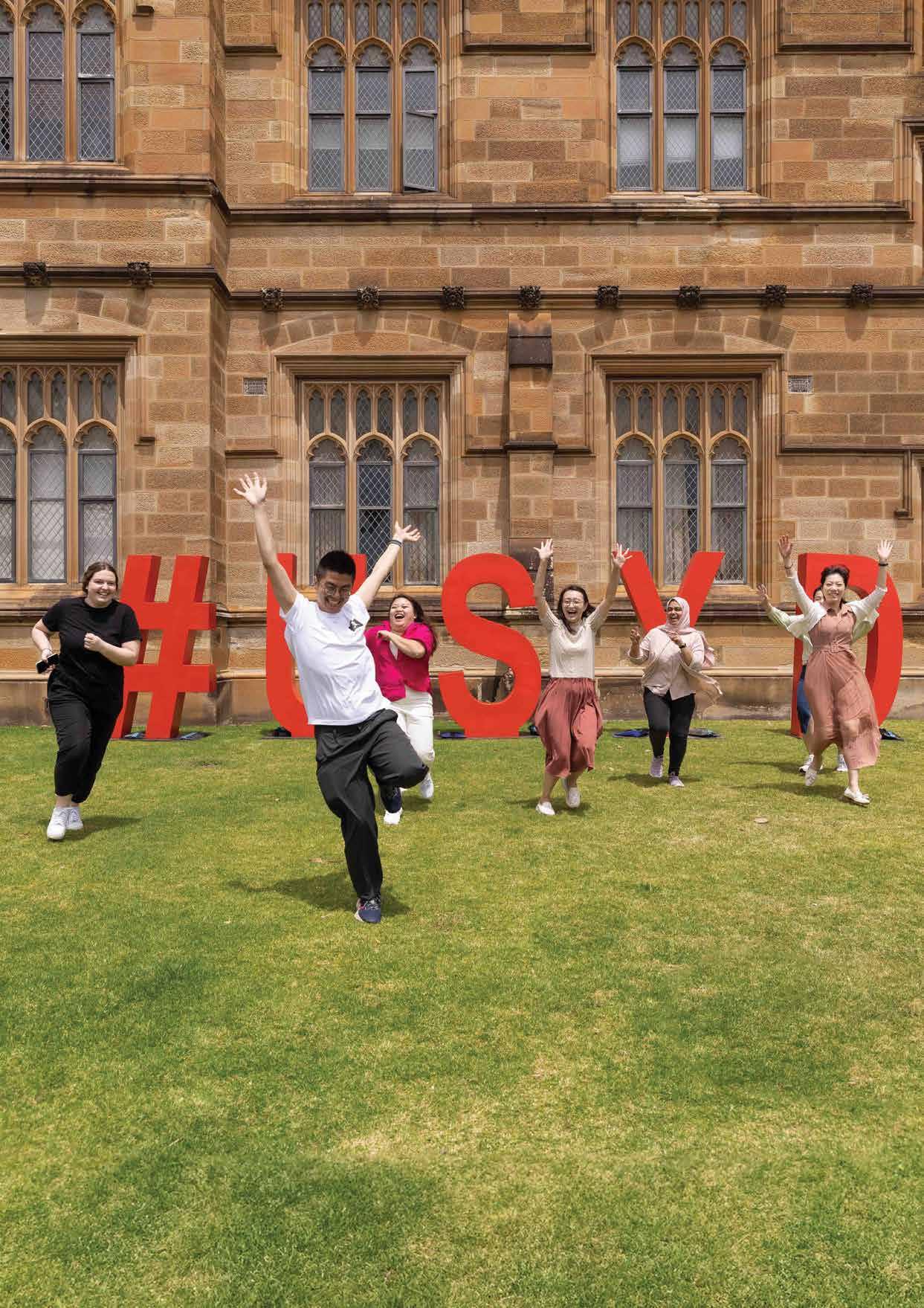

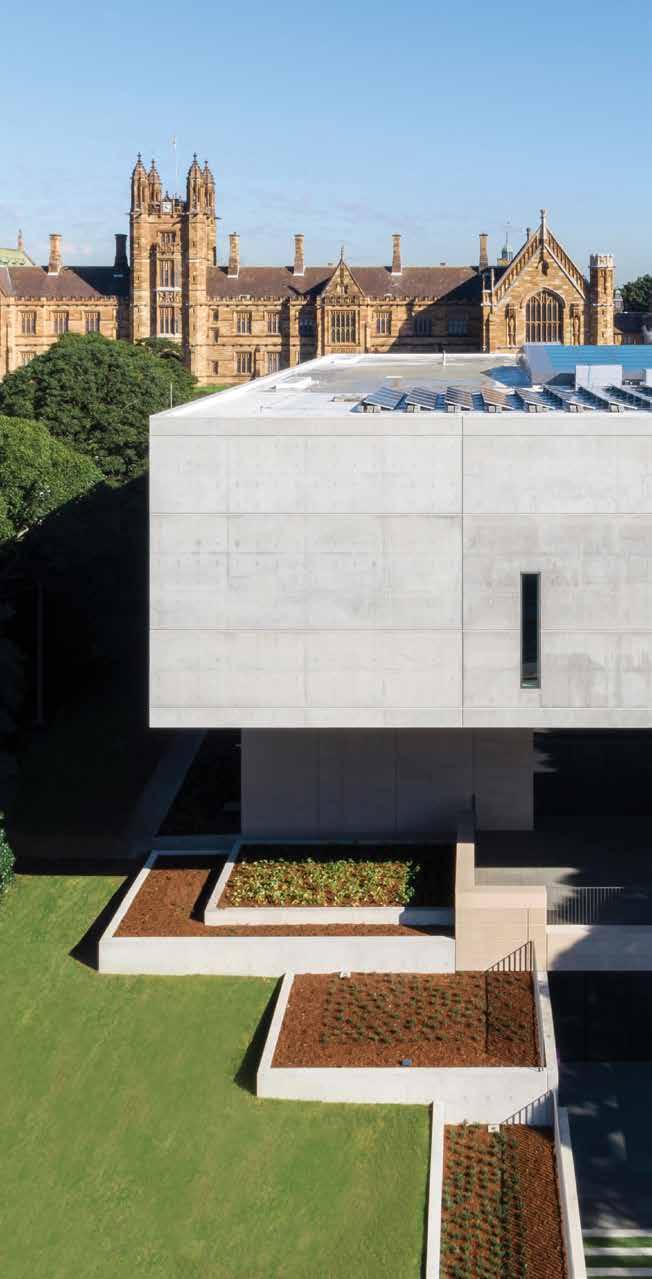
sydney.edu.au/contact-us
1800 SYD UNI (1800 793 864) (within Australia)
+61 2 8627 0010 (outside Australia)
international.recruitment@sydney.edu.au
Explore our wide range of courses and find out about admission criteria at sydney.edu.au/course
Share the excitement #USYD @Sydney_Uni
WeChat:
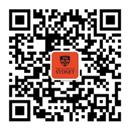
sydney.edu.au
00026A TEQSA PRV12057 Produced by Marketing and Communications, the University of Sydney, June 2024. The information in this document is provided as a guide only, for 2025 entry and is subject to change. While the University has made reasonable efforts to ensure the information is accurate at the time of publication, the University reserves the right to make alterations without notice to accommodate changes to our programs and courses. Before you apply to the University, make sure you check our website for the most up-to-date information. 24/9569